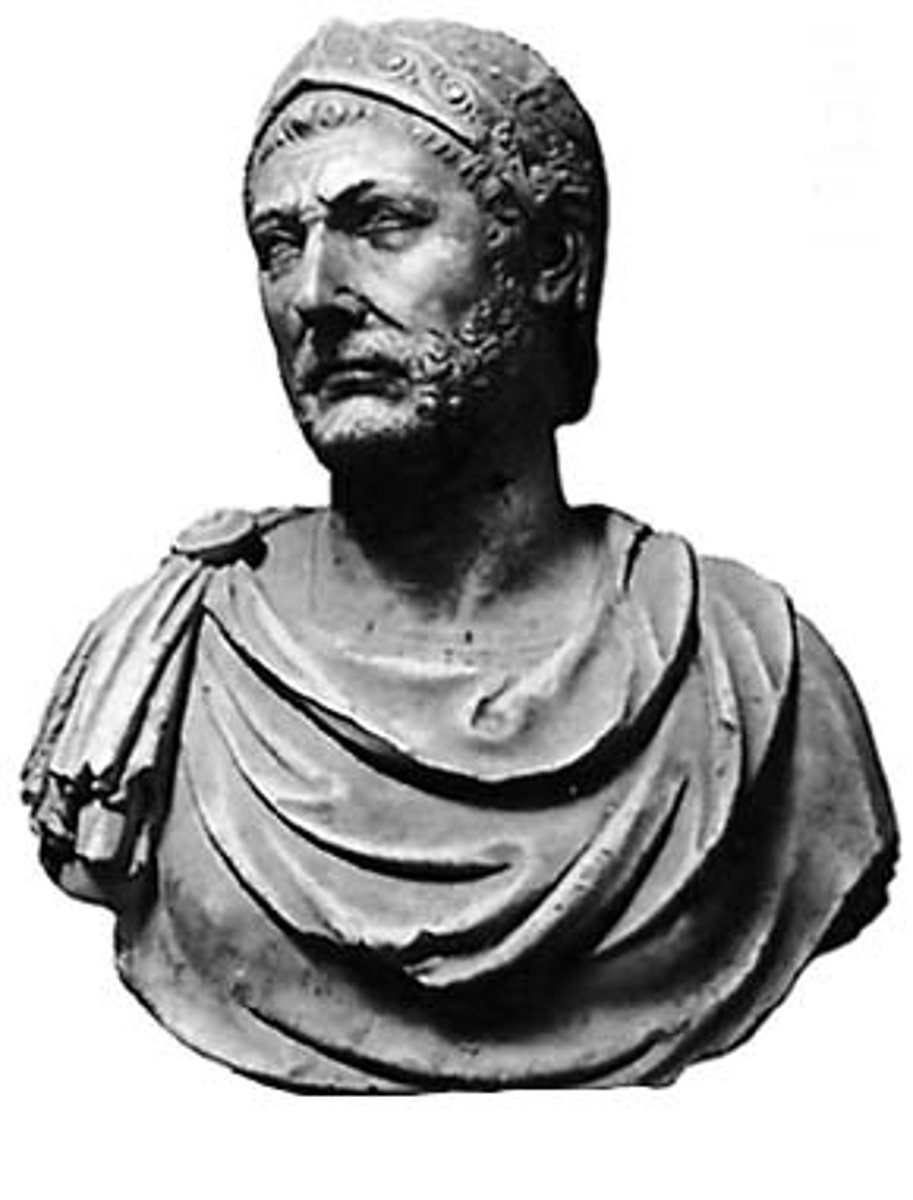Western Civilization I: Exam 1
1/73
There's no tags or description
Looks like no tags are added yet.
Name | Mastery | Learn | Test | Matching | Spaced |
|---|
No study sessions yet.
74 Terms
Fertile Crescent
located in the modern day middle-east, this is where the first complex civilizations developed; good land for agriculture
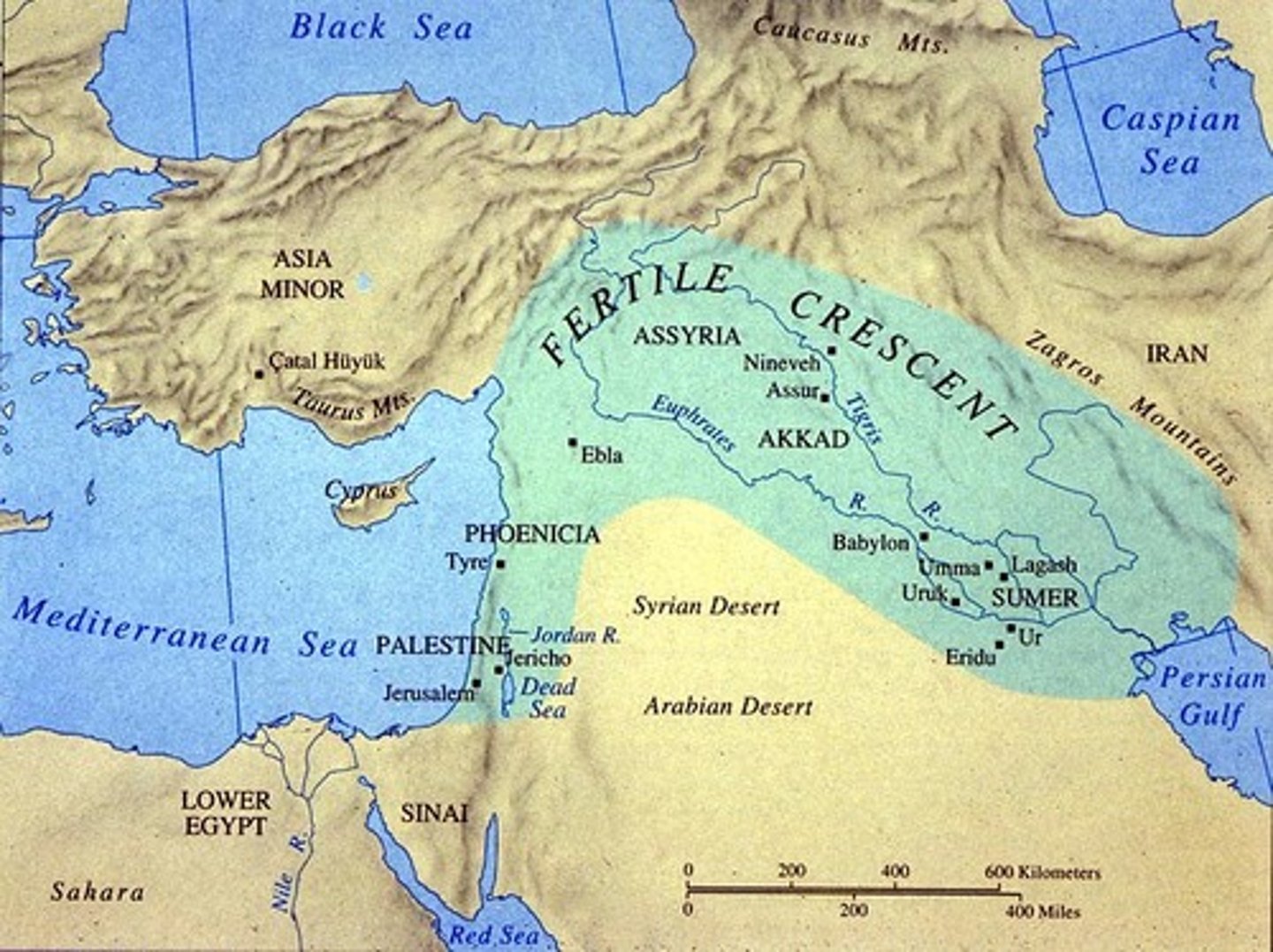
Mesopotamia
Greek word for "between the rivers," it was located between the Euphrates and Tigris rivers that flowed into the Persian Gulf. The Sumerians lived here.
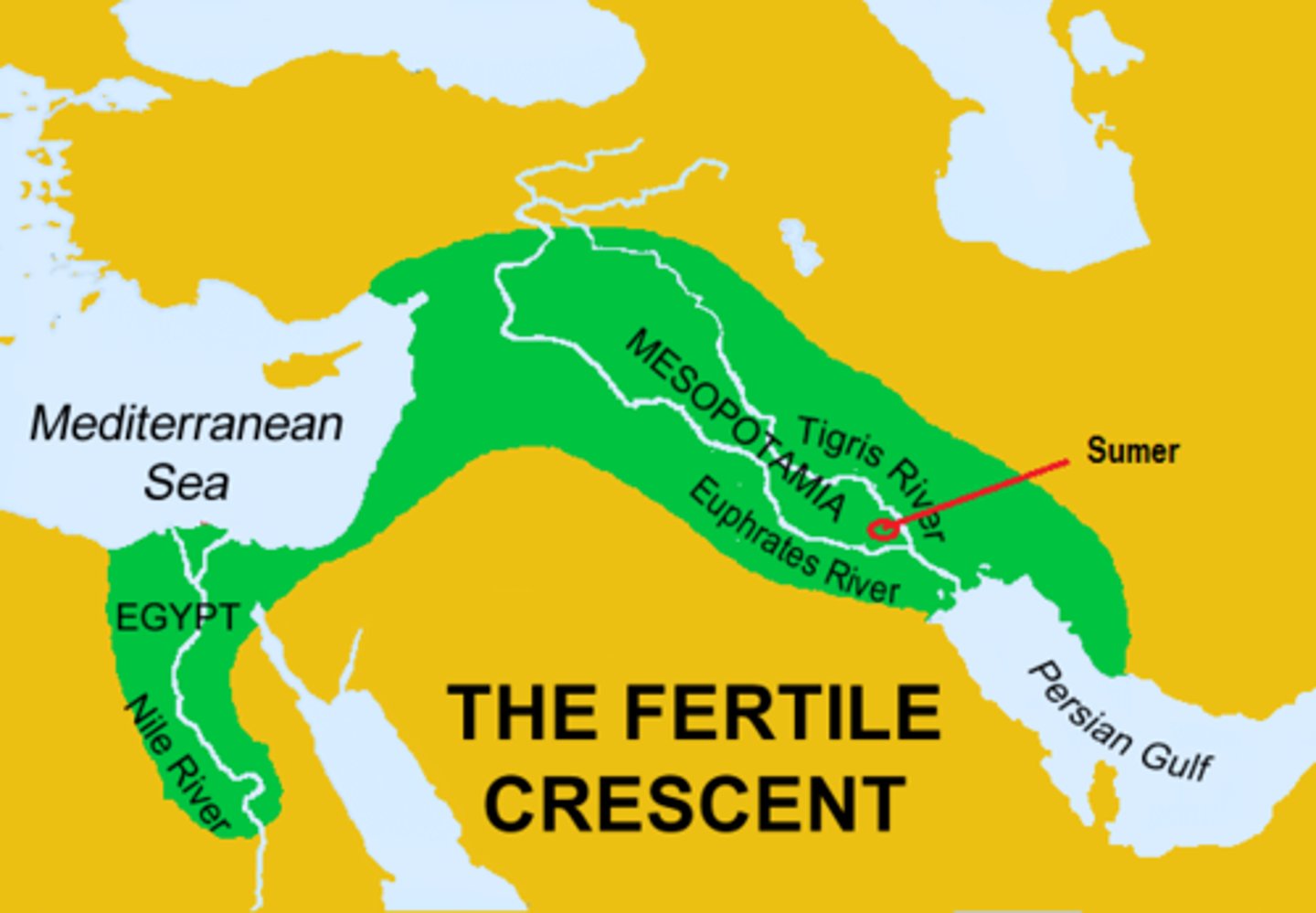
Irrigation
The controlled application of water for agricultural purposes through manmade systems to supply water. Egypt and Mesopotamia used these systems to bring water from the Nile, Euphrates, and Tigris rivers to their crops.
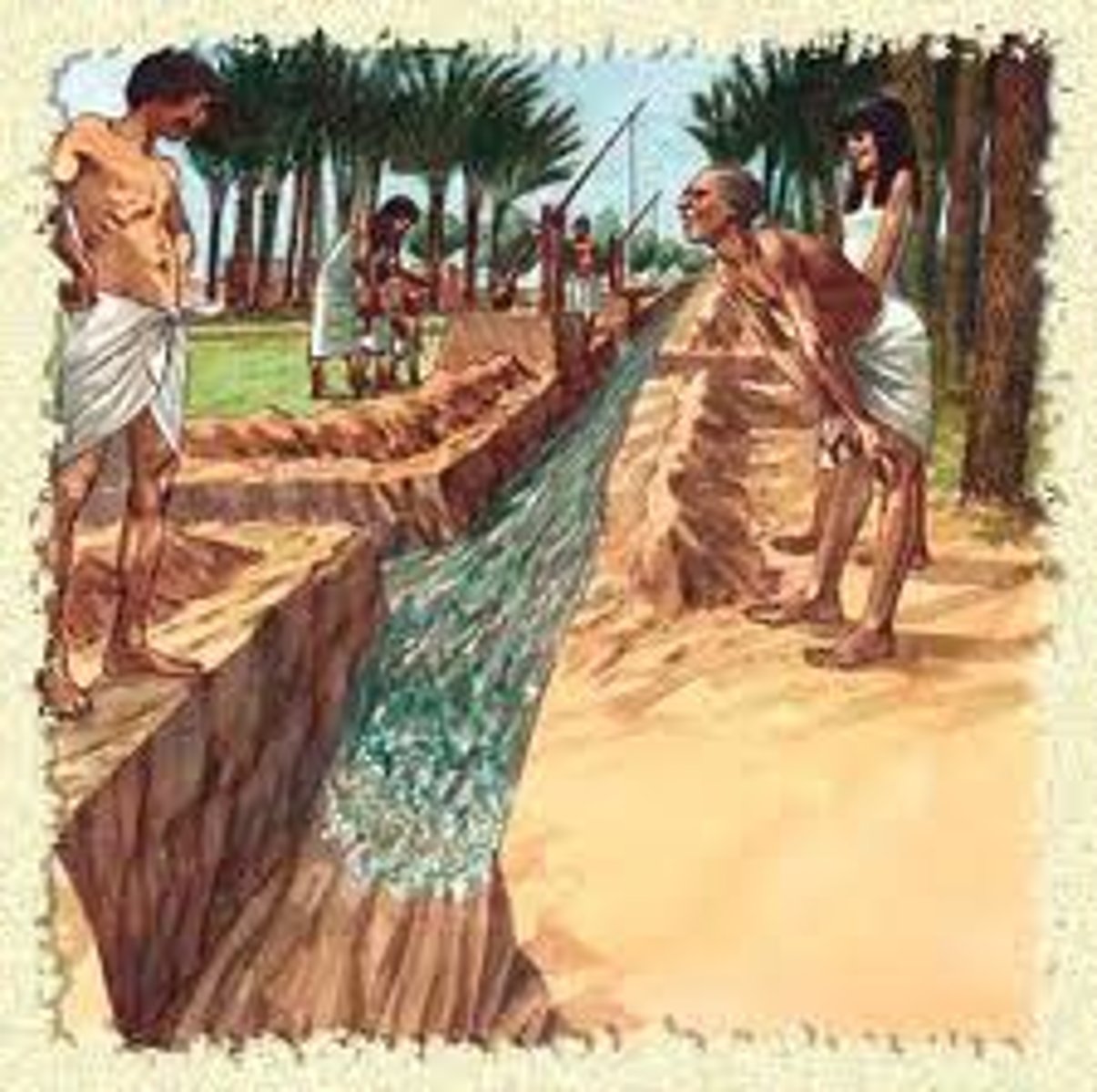
Sumerians
Sumer is the earliest known civilization, located in southern Mesopotamia.
The Sumerians were known for inventing cuneiform, farming, raising cattle, weaving textiles, working with carpentry, and pottery.
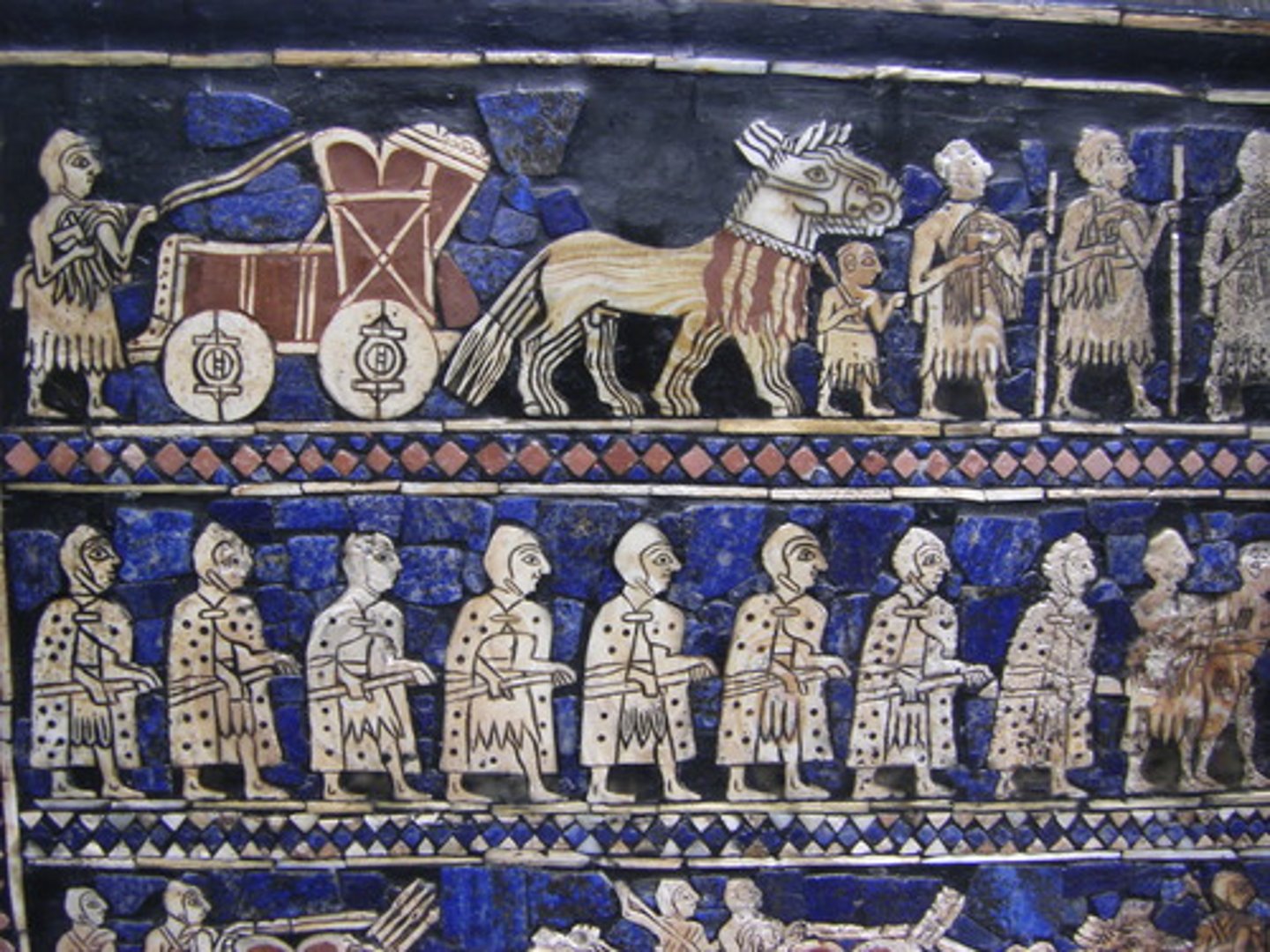
Cuneiform
Invented by the Sumerians, this writing system was originally used by Mesopotamian priests for accounting purposes.
Imprinted onto clay using a stylus, the different characters represented words, ideas, and syllables.
Cuneiform was later used to write poetry, epics, and political pieces.
The Akkadians, Babylonians, and Assyrians, adapted and used the cuneiform system for their own languages.
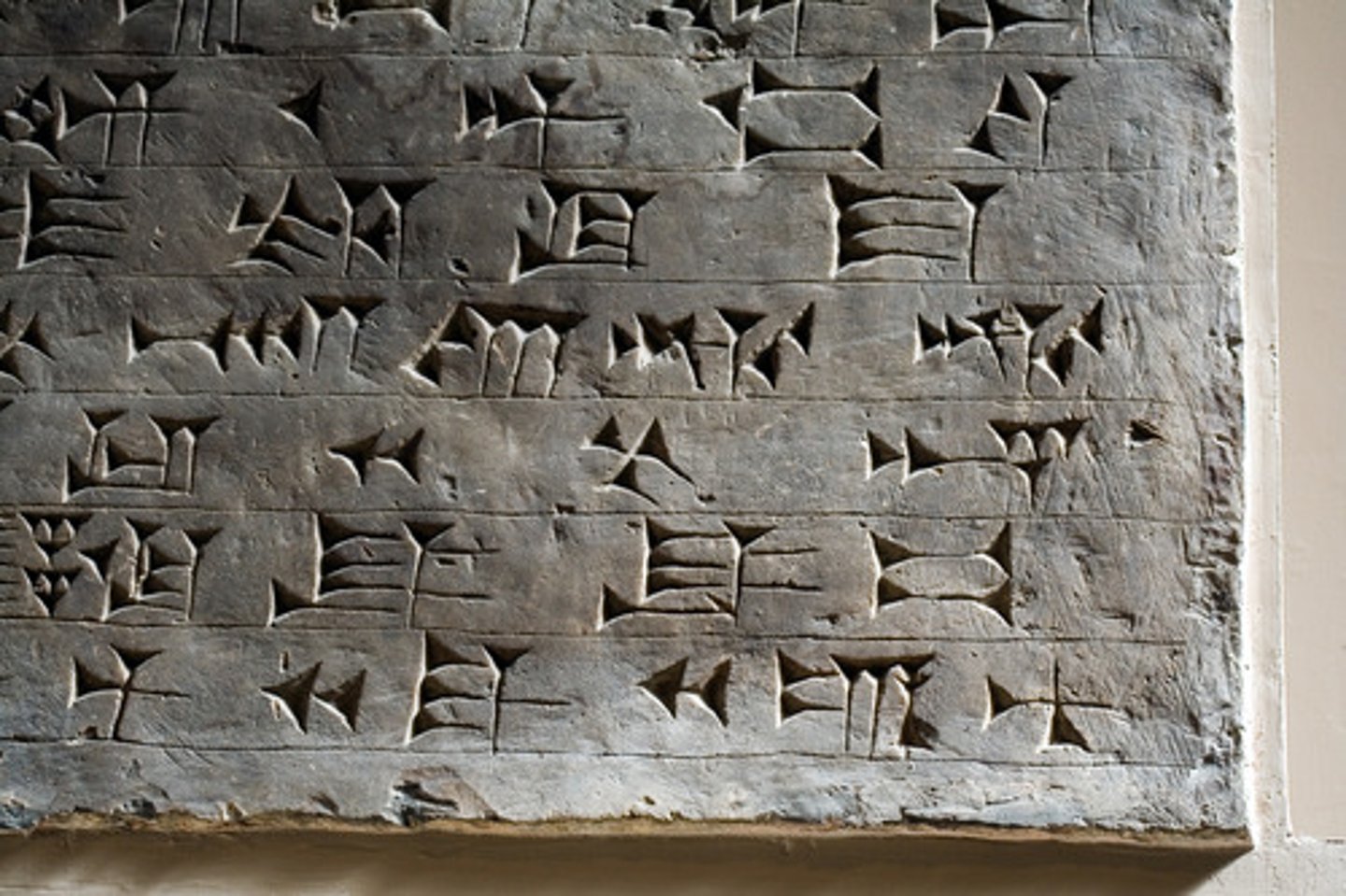
Epic of Gilgamesh
Originating from Sumer, this is one of the earliest known works of literature, offering insights into ancient Mesopotamian society. It is known for its profound exploration of universal human themes like friendship, mortality, and the search for meaning, and its significant influence on subsequent literature and cultural traditions, including biblical narratives and the archetypal hero's journey.
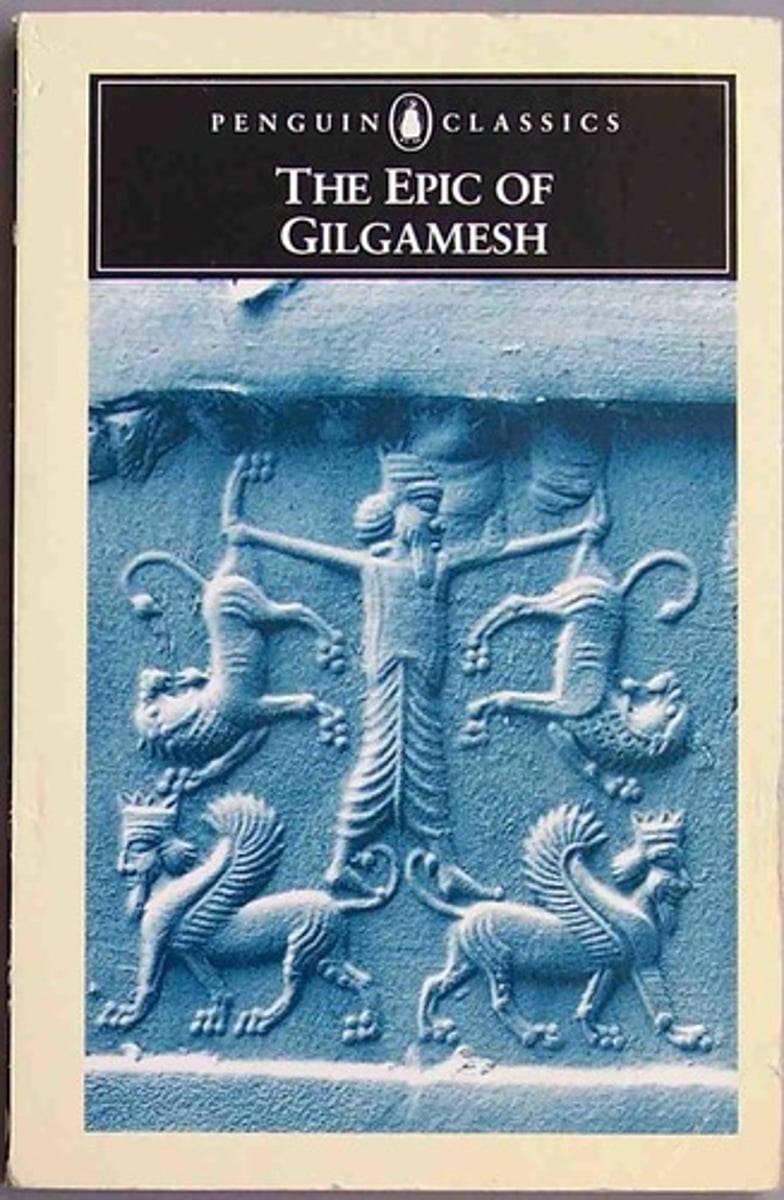
Sargon of Akkad
the first ruler of the Akkadian Empire, known for his conquests of the Sumerian city-states in the 24th to 23rd centuries BC. He is sometimes identified as the first person in recorded history to rule over an empire. His empire didn't last long, only a generation or two.
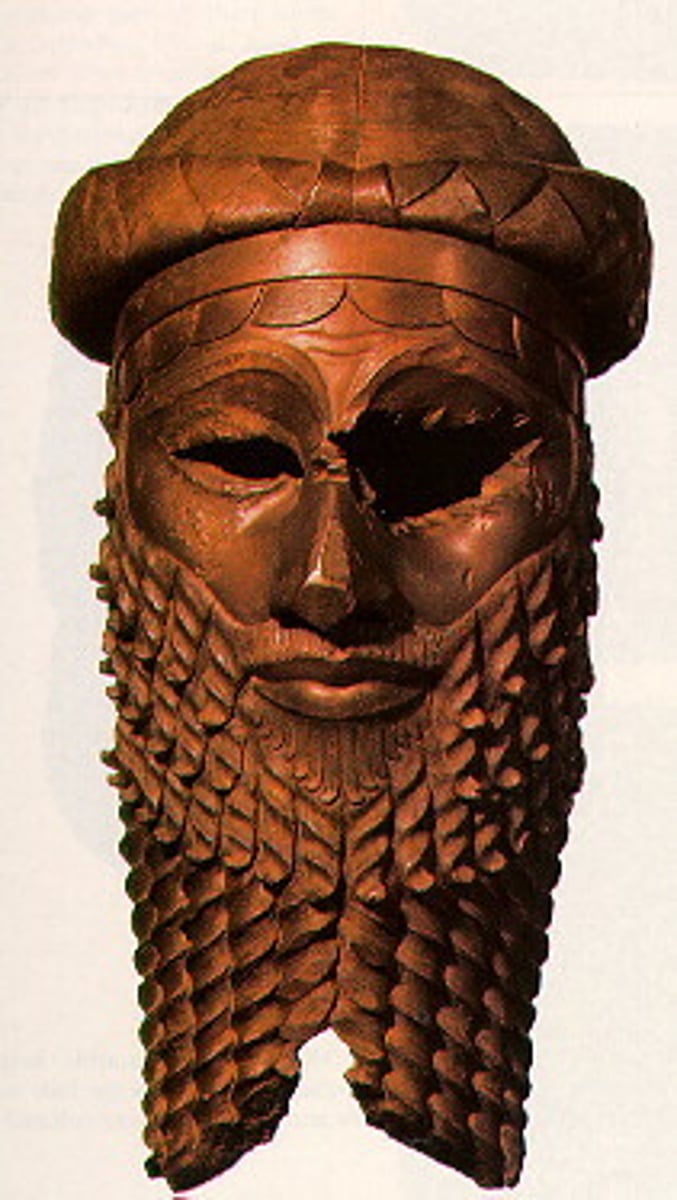
Babylonians
an ancient people from Mesopotamia who built the city of Babylon and established a powerful empire. They were an Akkadian-speaking people known for their advanced culture, including a sophisticated understanding of astronomy, mathematics, and chemistry, which significantly influenced later Middle Eastern cultures.
Hammurabi's Code
The first law code created to regulate society: focused on consequences pertaining to violence, medical malpractice, marriage, compensation, and property instead of laws regarding religion (very secular).
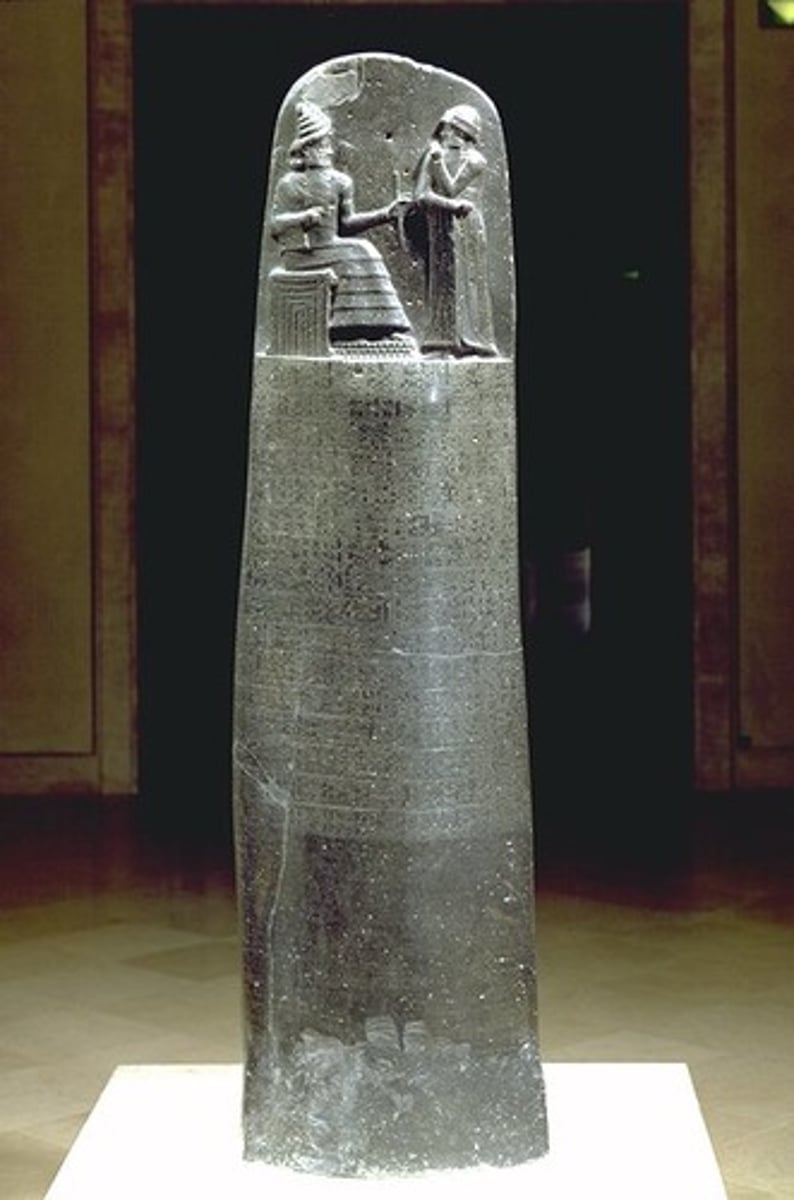
Pharaoh
A title of the monarch of ancient Egypt.
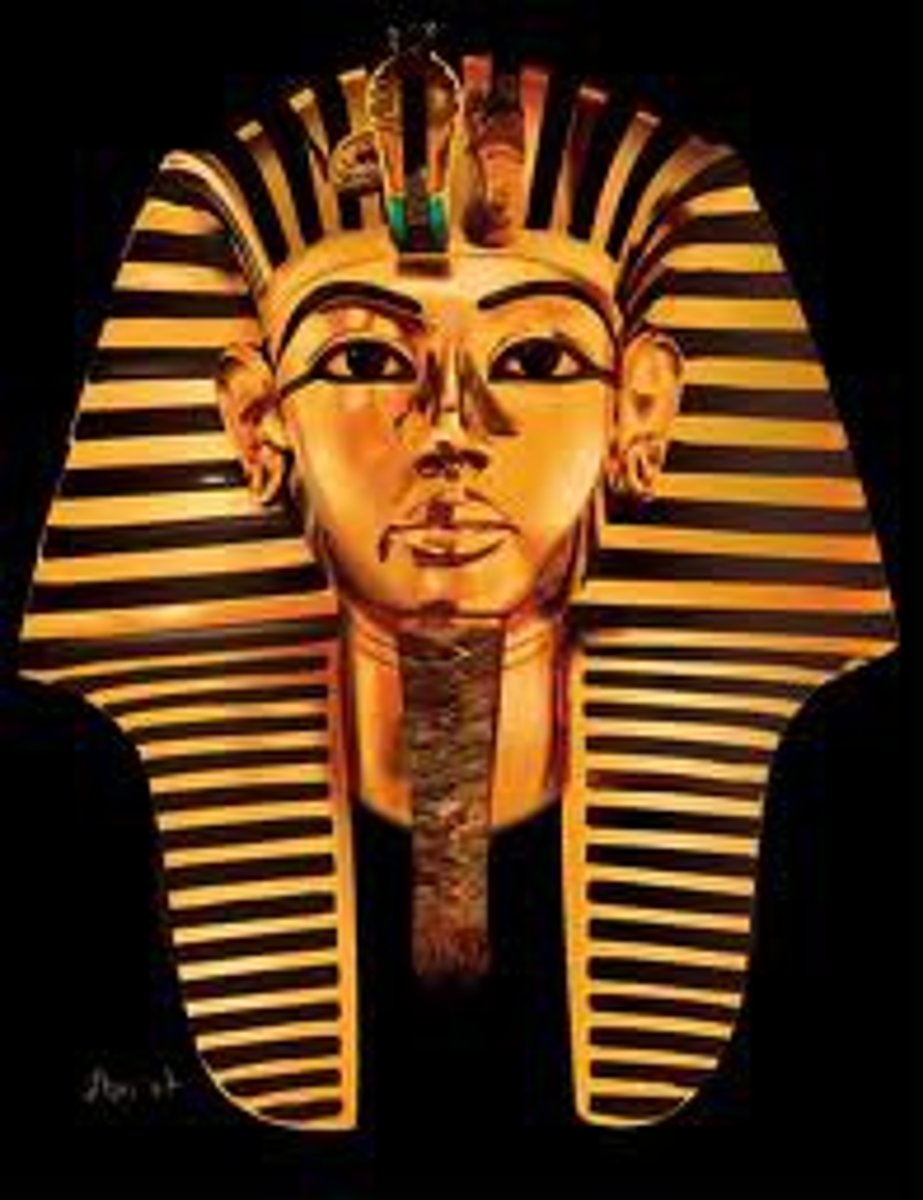
Menes
The first pharaoh of Egypt, he unified upper and lower Egypt. He was the founder of the First Dynasty, credited with establishing the city of Memphis around 3150 BCE.
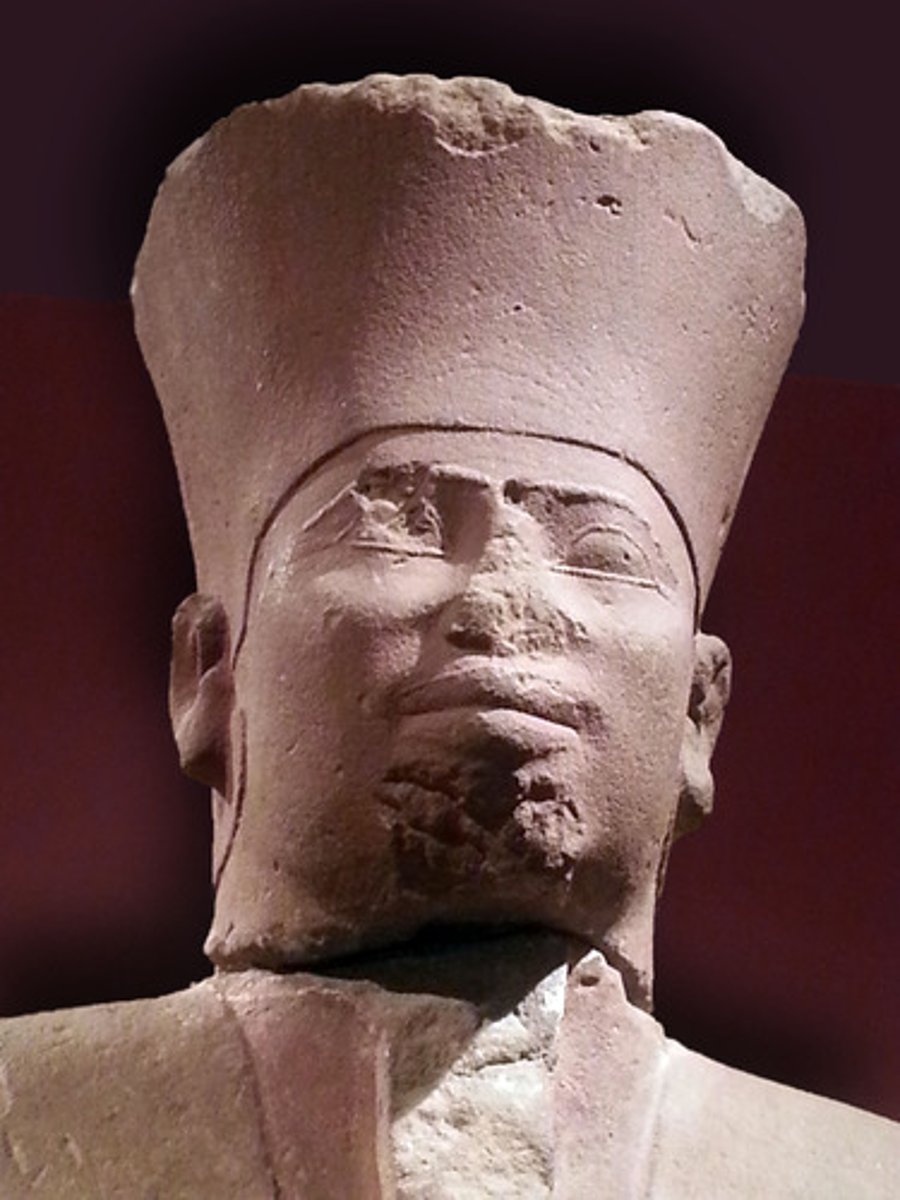
Ma'at
the Egyptian concept and the goddess of truth, justice, order, harmony, and balance. When you died, it was believed your heart would be weighed by the gods to see how much Ma'at you had.
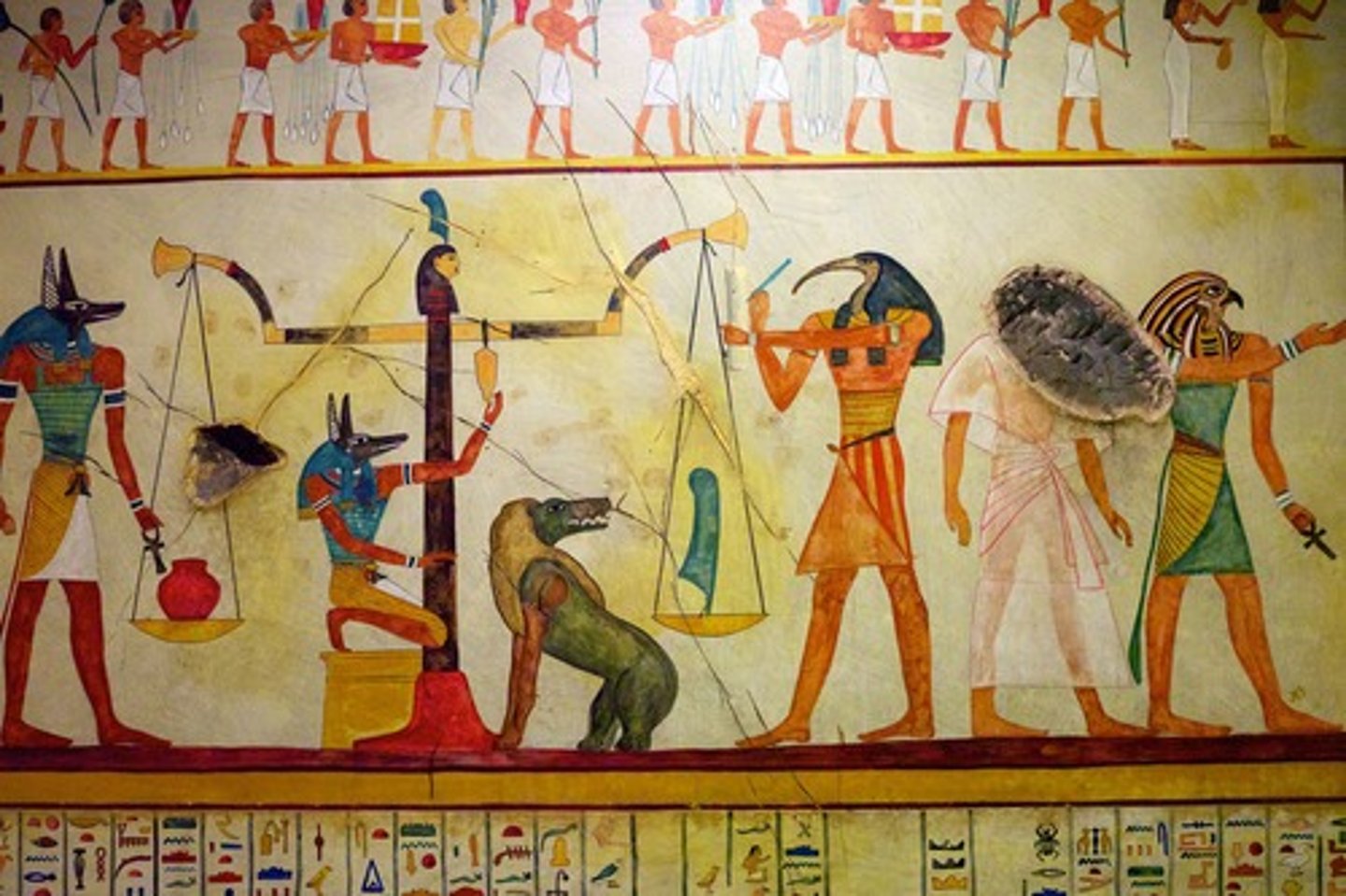
Book of the Dead
ancient Egyptian collection of mortuary texts made up of spells or magic formulas, placed in tombs and believed to protect and aid the deceased in the afterlife.
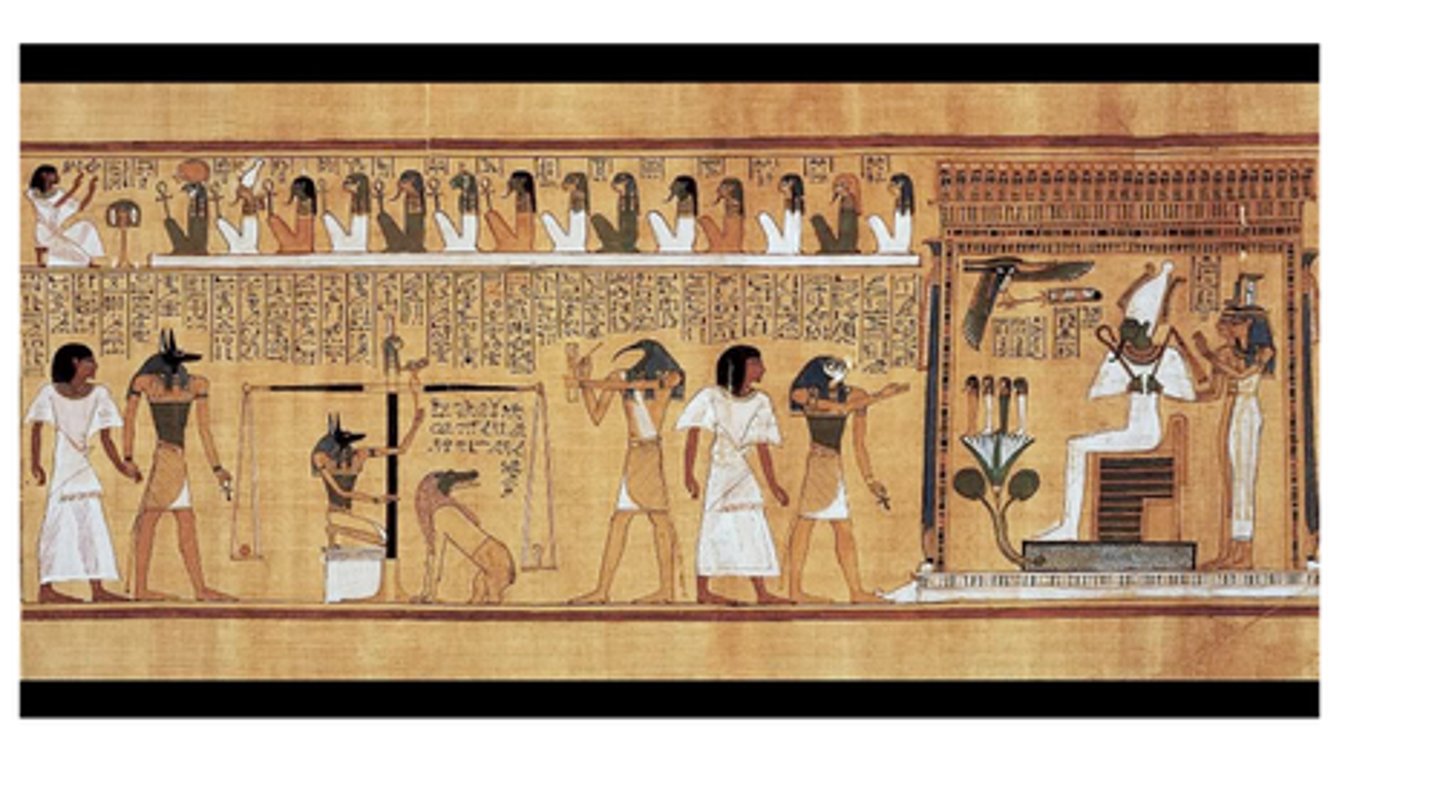
Hieroglyphics
the formal writing system used in Ancient Egypt for writing the Egyptian language. Hieroglyphs combined ideographic, logographic, syllabic and alphabetic elements, with more than 1,000 distinct characters.
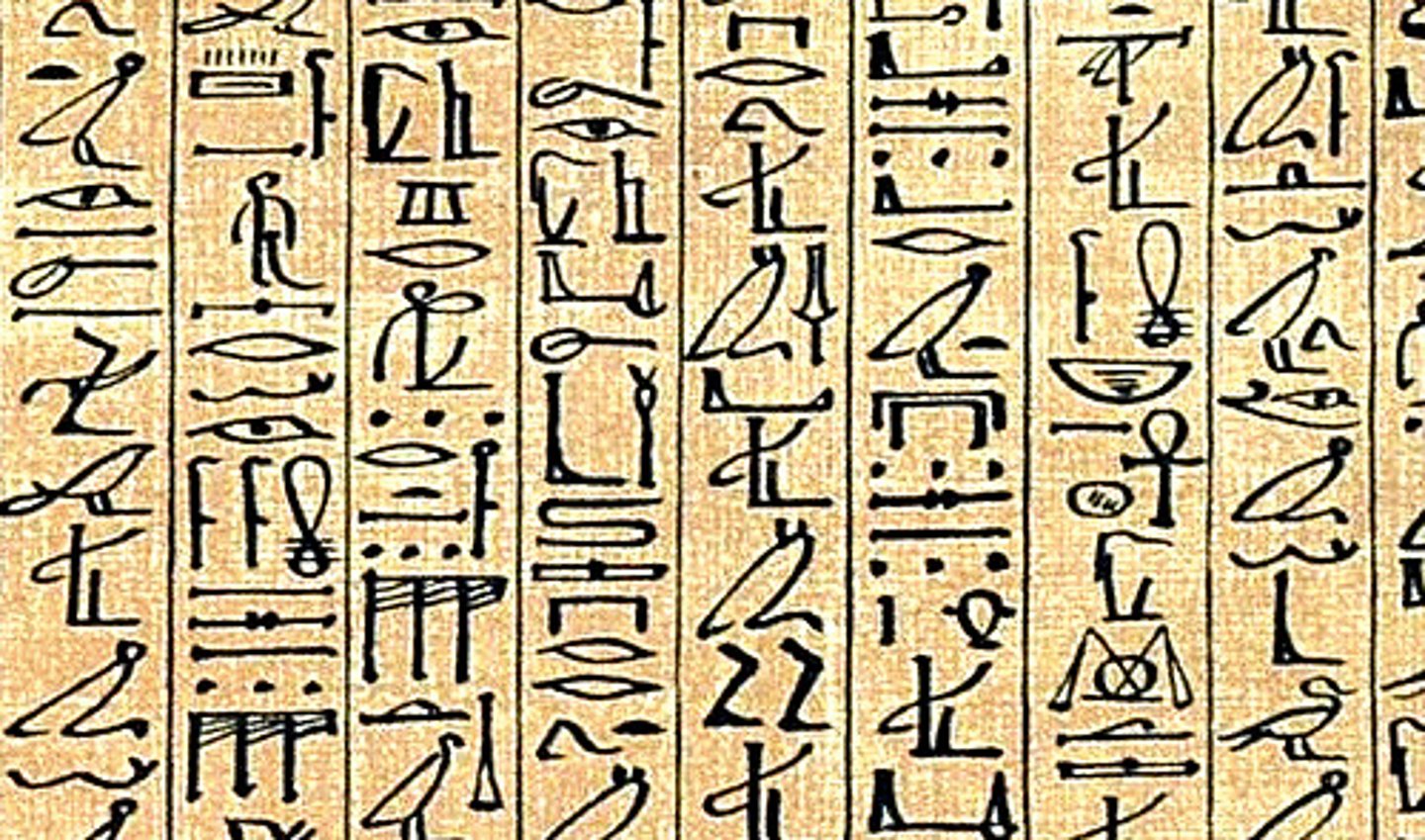
Great Pyramids
Tombs made for pharaohs to make their transition to the afterlife easier.
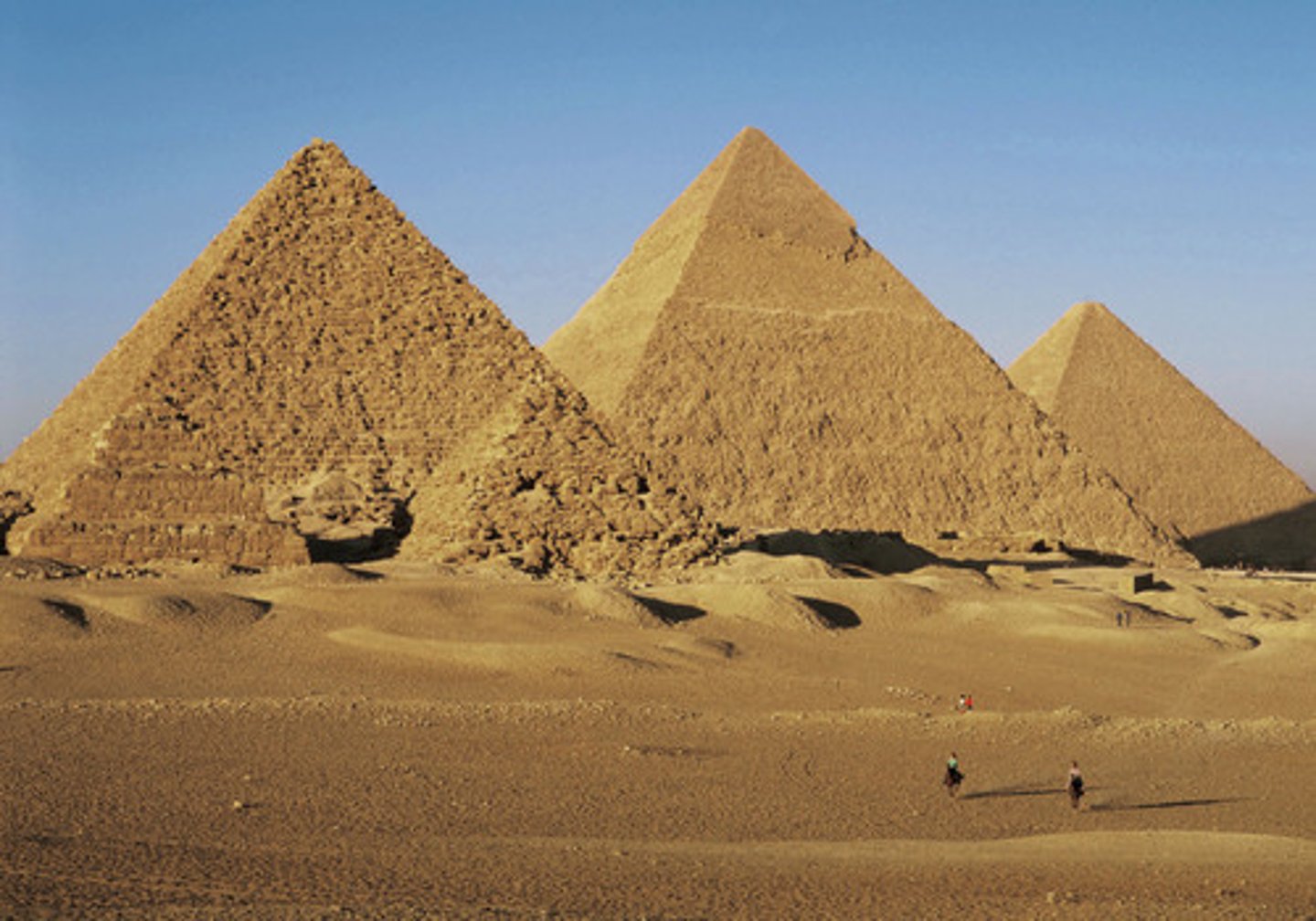
Hyksos
a small group of West Asian individuals who ruled Northern Egypt, especially the Delta, during the Second Intermediate Period. The Hyksos liked Egyptian culture, so they assimilated and helped Egypt become prosperous.
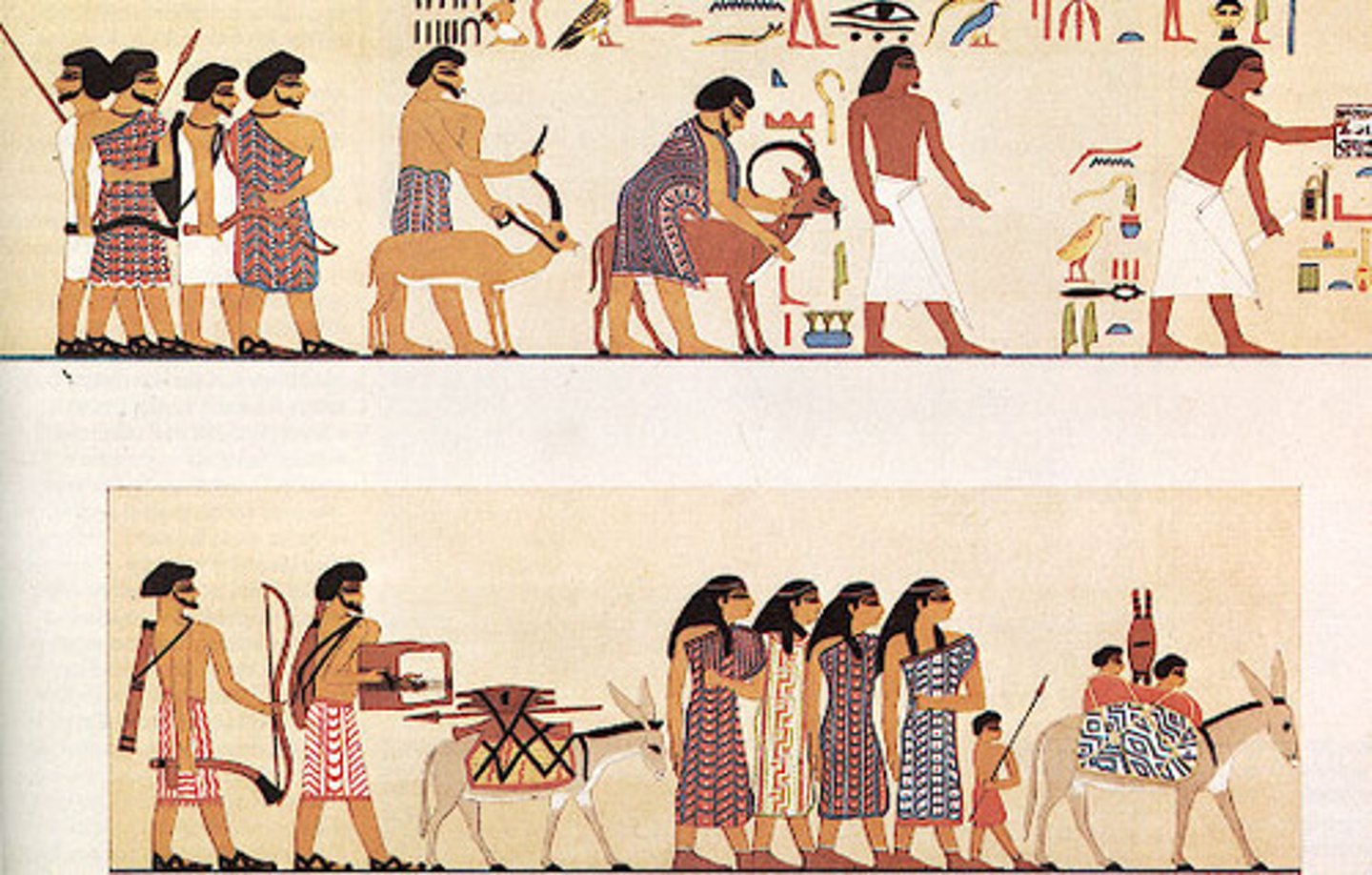
Amenhotep IV
A ruler during the New Kingdom era of Egypt, Amenhotep reformed the religious system to focus on one god: Aton, the sun god.
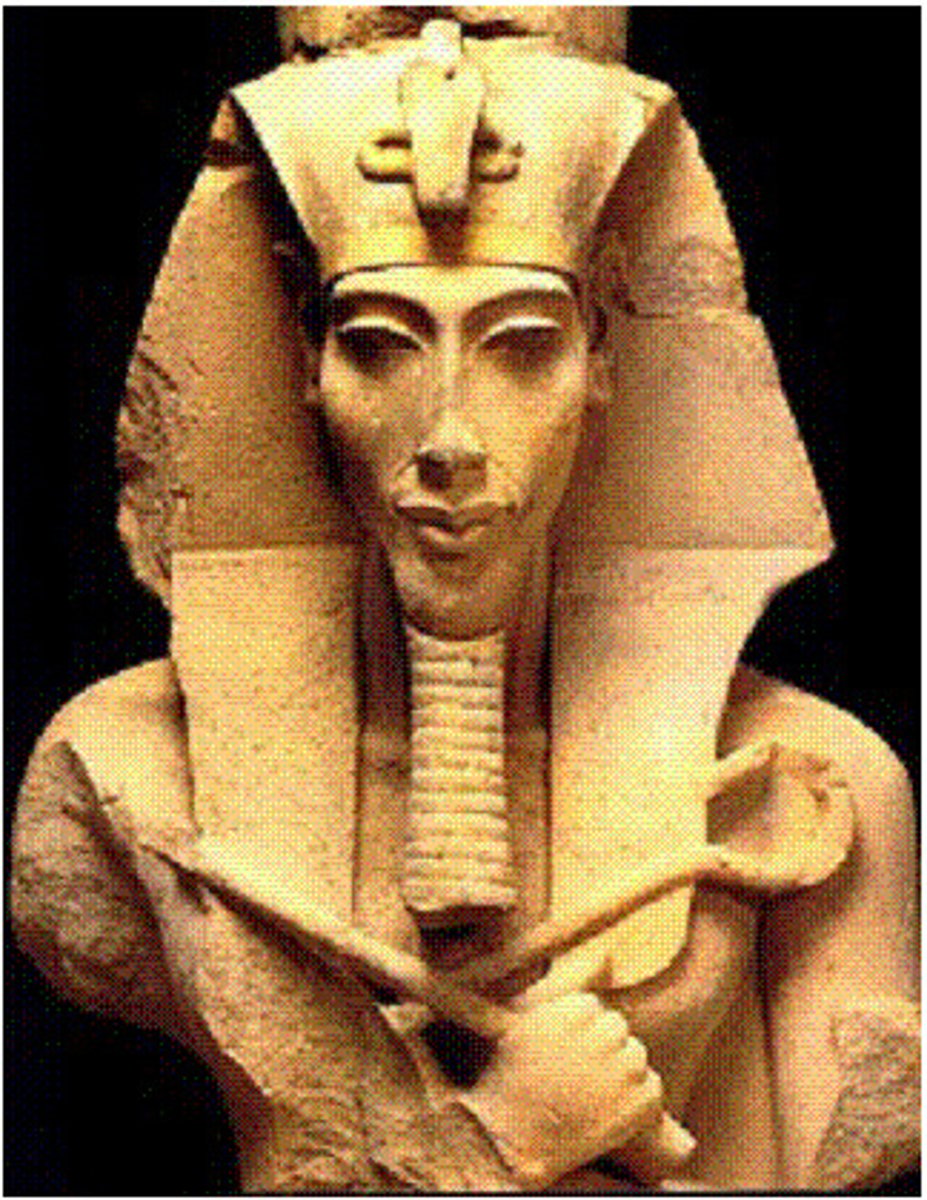
Ramesses II
a more traditional pharaoh and is widely celebrated as the greatest pharaoh of the New Kingdom era; he conquered territories and commissioned a lot of buildings, including statues of himself.
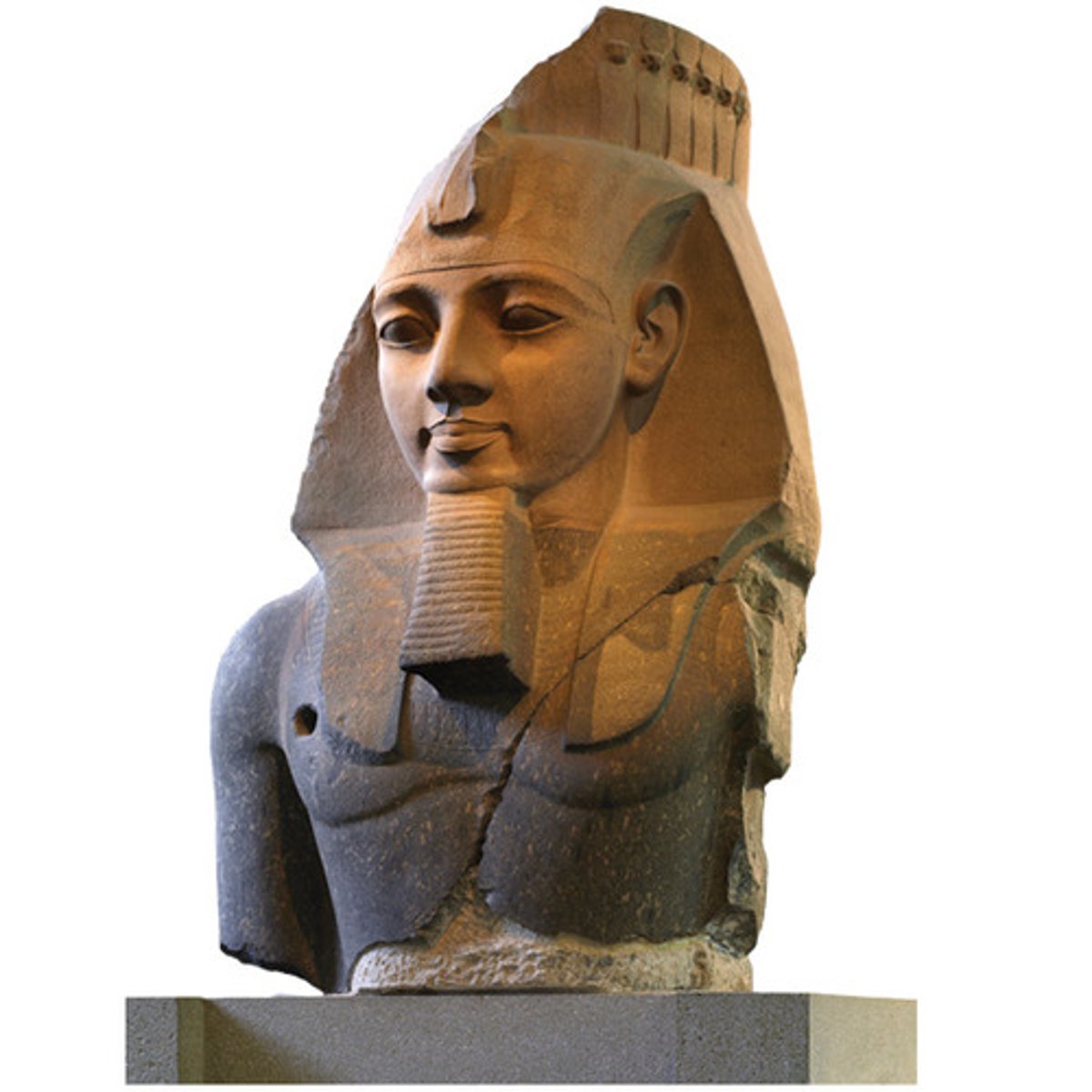
Hittites
The Egyptians fought the Hitties in the Battle of Kadesh, a battle fought during the rule of Ramesses II. It was between the two chariot armies to determine control over Kadesh and Syria. The battle ended in a draw and a peace treaty between the two empires.
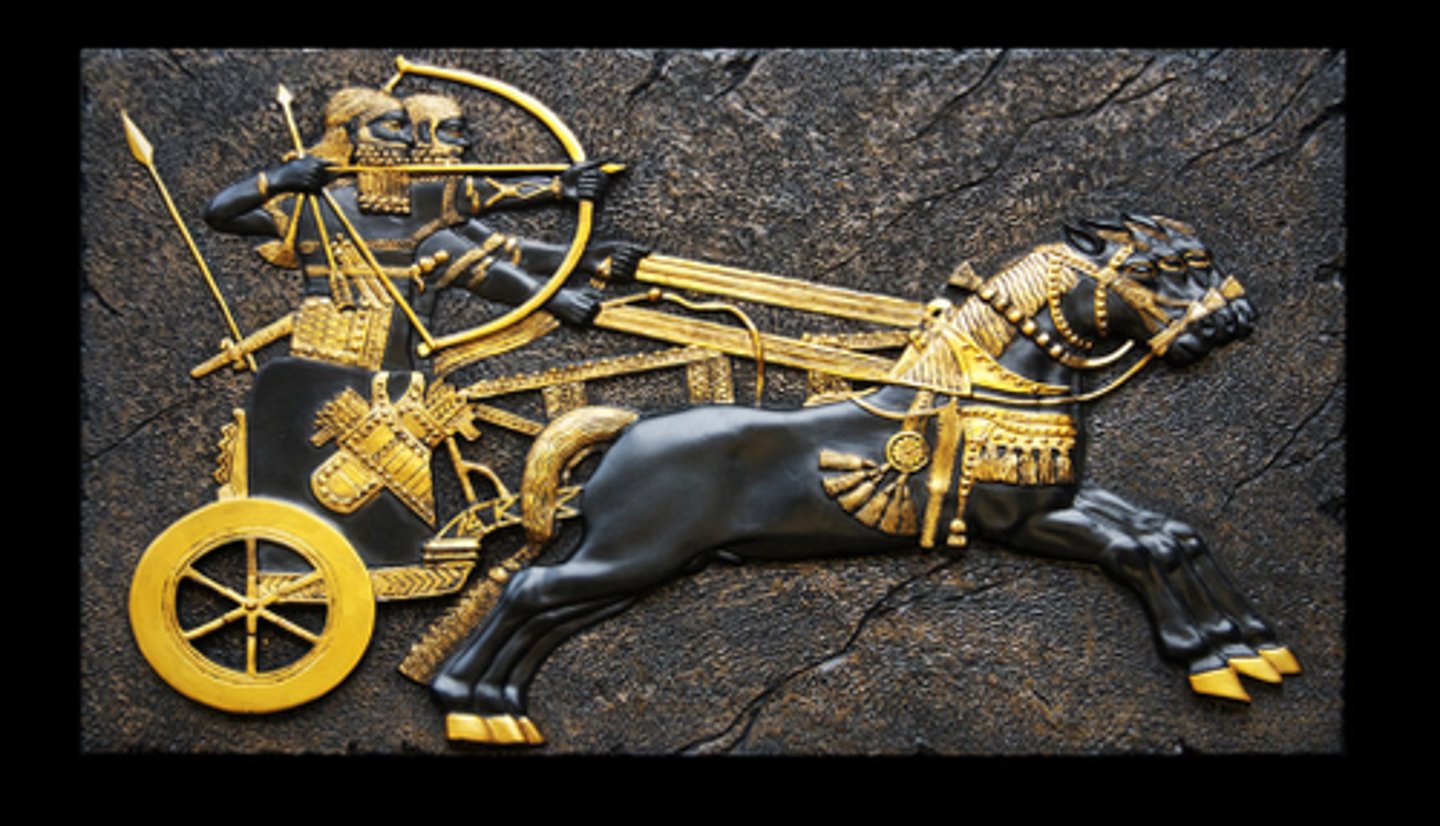
Phoenicians
The Phoenicians established extensive trading networks across the Mediterranean, known for producing Tyrian purple dye and creating the first known alphabet. They founded the city of Carthage.
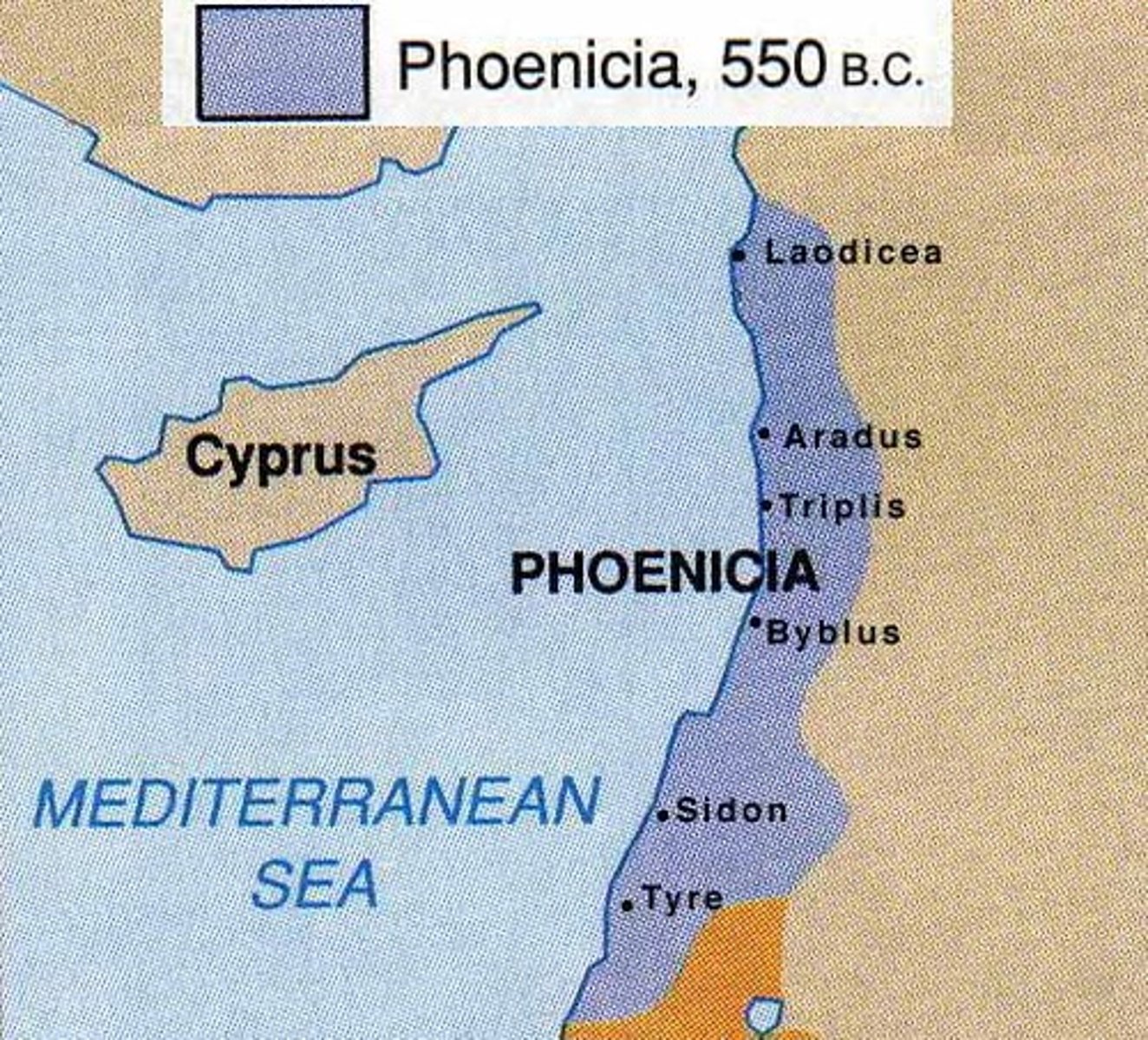
Yahweh
the personal name of the God of Israel in the Hebrew Bible, derived from the Hebrew verb "to be" and understood to mean "I AM" or "He who causes to be"
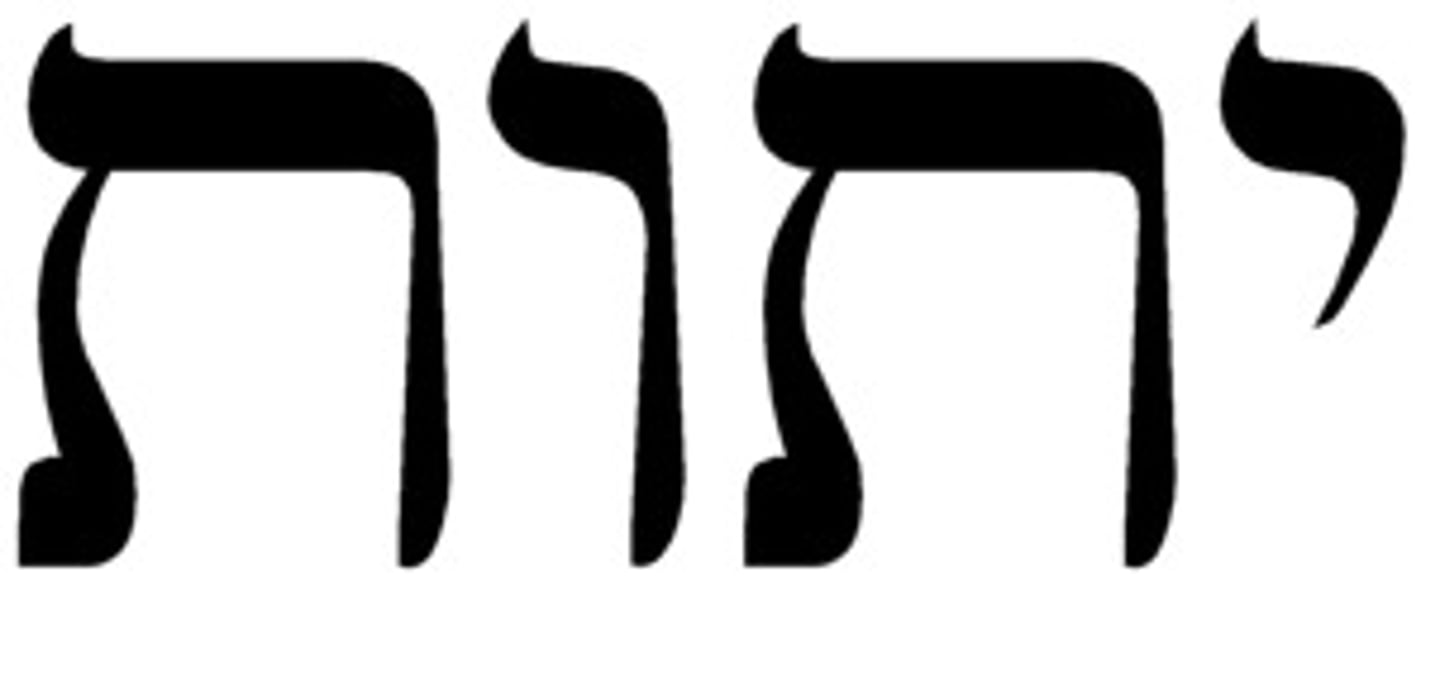
Carthage
Founded by the Phoenicians in c. 813 BC, it was one of the most important trading hubs of the Ancient Mediterranean and one of the most affluent cities of the classical world.
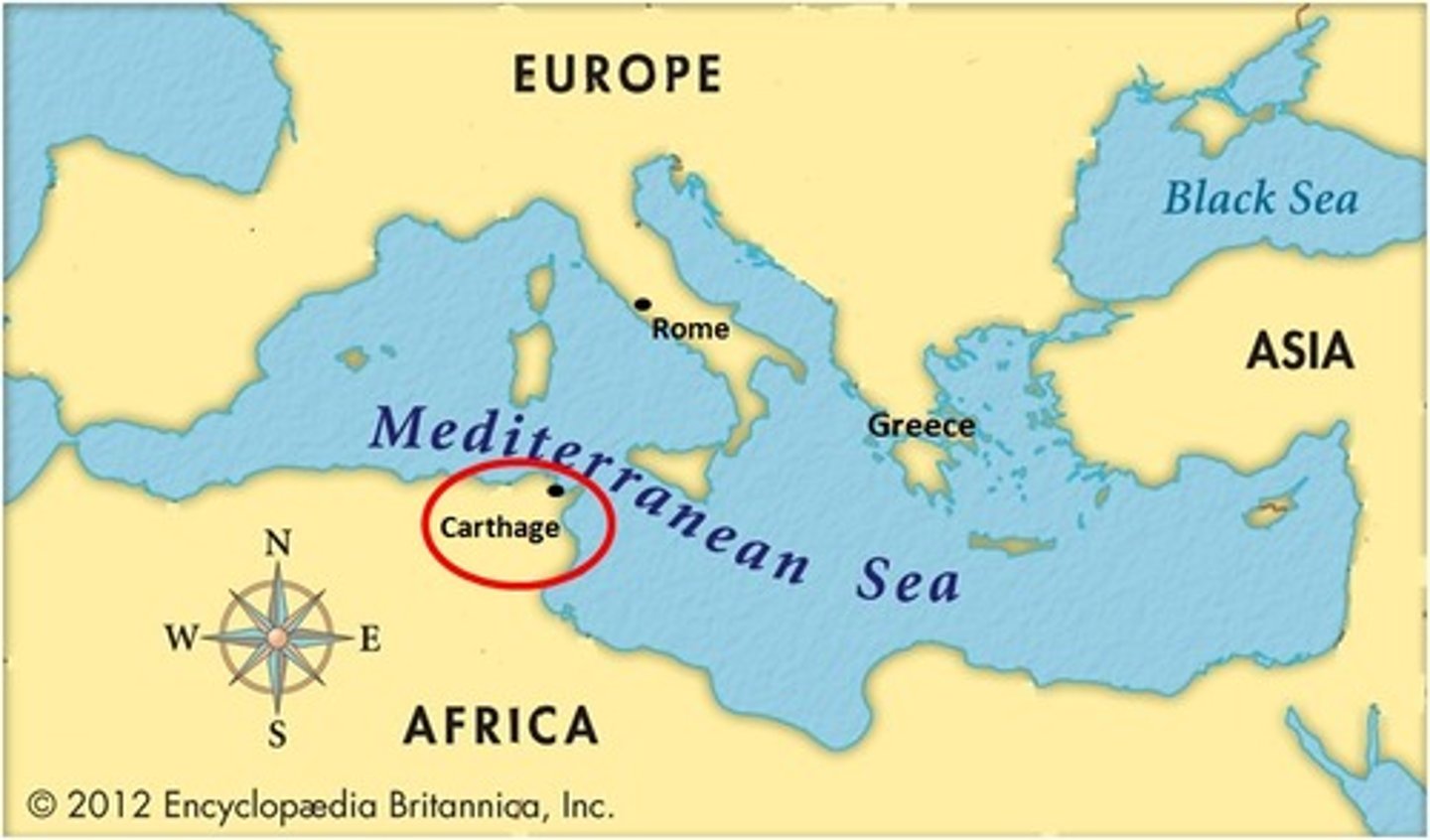
Practical Monotheism
a form of belief where only one God is worshipped, but it does not necessarily reject the existence of other divine beings, instead focusing on the pragmatic choice to ignore them (basically, it believes only one god is worthy of worship out of them all). This contrasts with pure monotheism, which explicitly denies the existence of other deities. Abraham is the father of monotheism.

Alphabet
The Phoenicians created the first consonantal alphabet around 1050 BCE. It influenced the Greek alphabet, which then inspired the Latin alphabet that is the basis for most modern European alphabets, including English. The term "alphabet" itself comes from the first two Greek letters: alpha and beta.

Judah
The Kingdom of Judah was the Southern Kingdom of ancient Israel, formed after the northern Kingdom of Israel broke away from the united monarchy in 922 BC. Named after the tribe of Judah, it was centered in Jerusalem and existed as an independent state until it was conquered by the Babylonians in 587–586 BC.
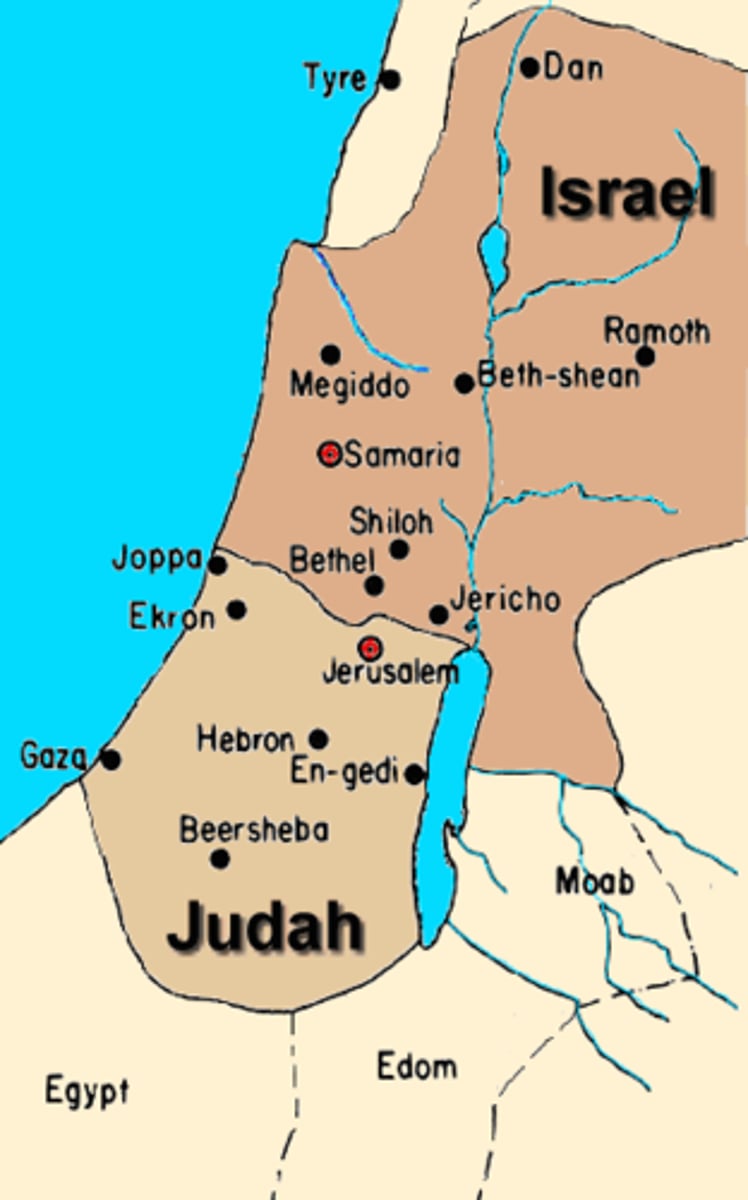
Hebrews
Known as the Jews until the Babylonian captivity, the Hebrews were the ancient people living in Israel and descended from Abraham. After the Exodus (c.1300 BC) they established the kingdoms of Israel and Judah, and their scriptures and traditions form the basis of the Jewish religion.
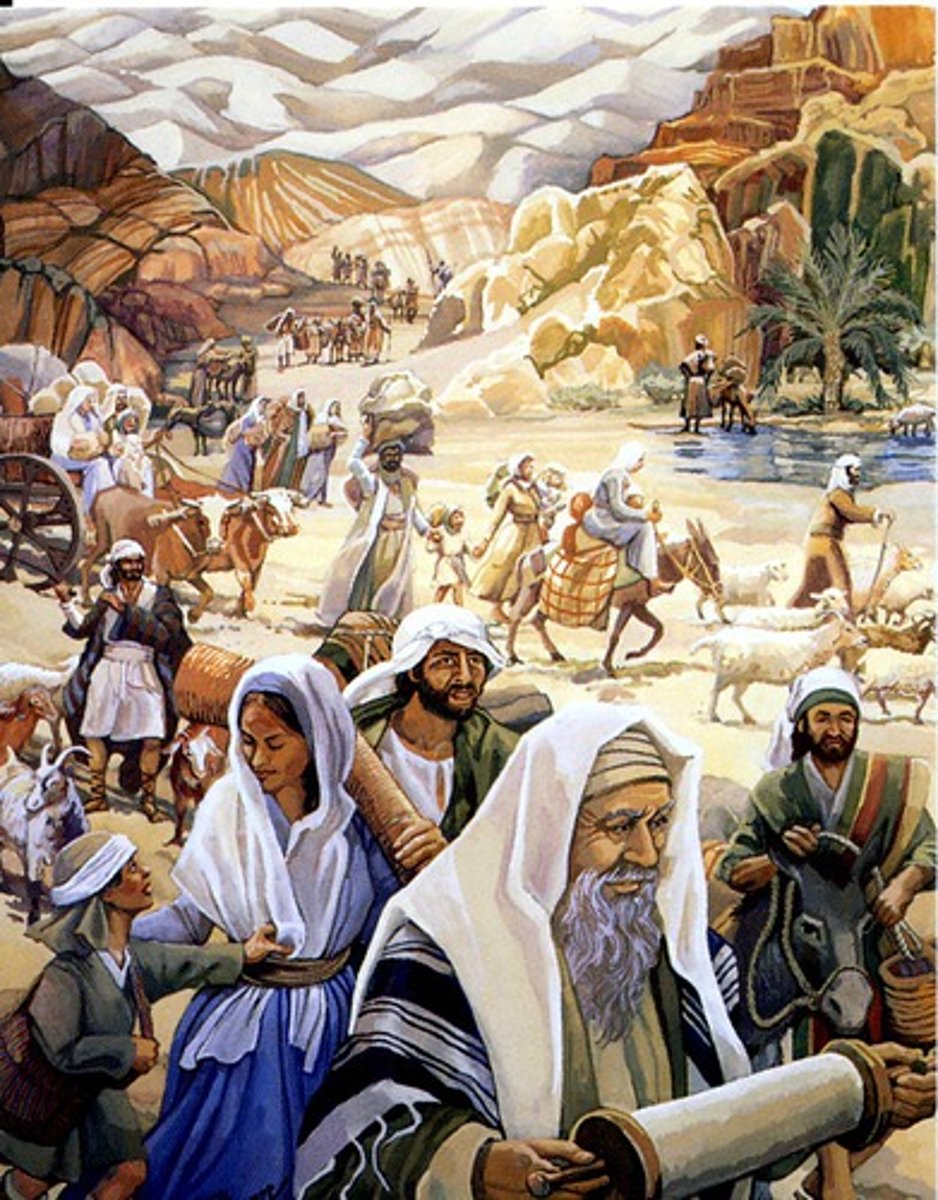
Israel
One of the two ancient kingdoms that resulted from the split of the united Hebrew kingdom after the death of King Solomon. The Northern Kingdom of Israel retained the name Israel and consisted of ten tribes. It was destroyed by the Assyrians in 722 BC.
Babylonian Captivity
The Israelites of Judah were forced to move to Mesopotamia by the Neo-Babylonian Empire after Jerusalem and Solomon's Temple were destroyed in 586 BC.
This period of captivity ended in 538 BC when Cyrus the Great (Persian king) allowed them to return to Jerusalem after the Persians conquered the Babylonians.
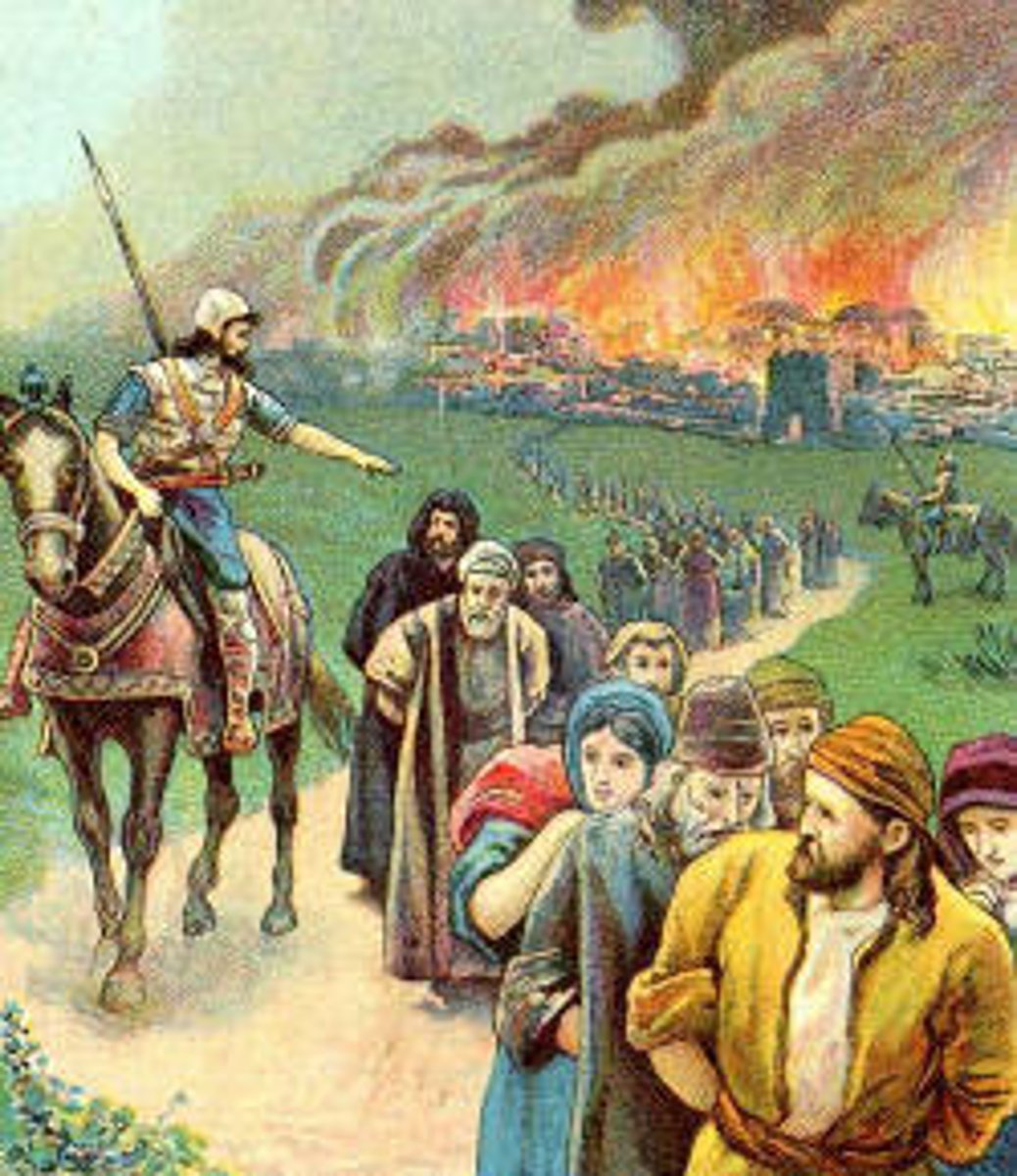
Assyrian Empire
The largest empire to date, the Assyrians did not have a lot of culture and were preoccupied with violence and conquering other nations. They still wrote in cuneiform 2000 years after it was invented. Their capital was Nineveh.
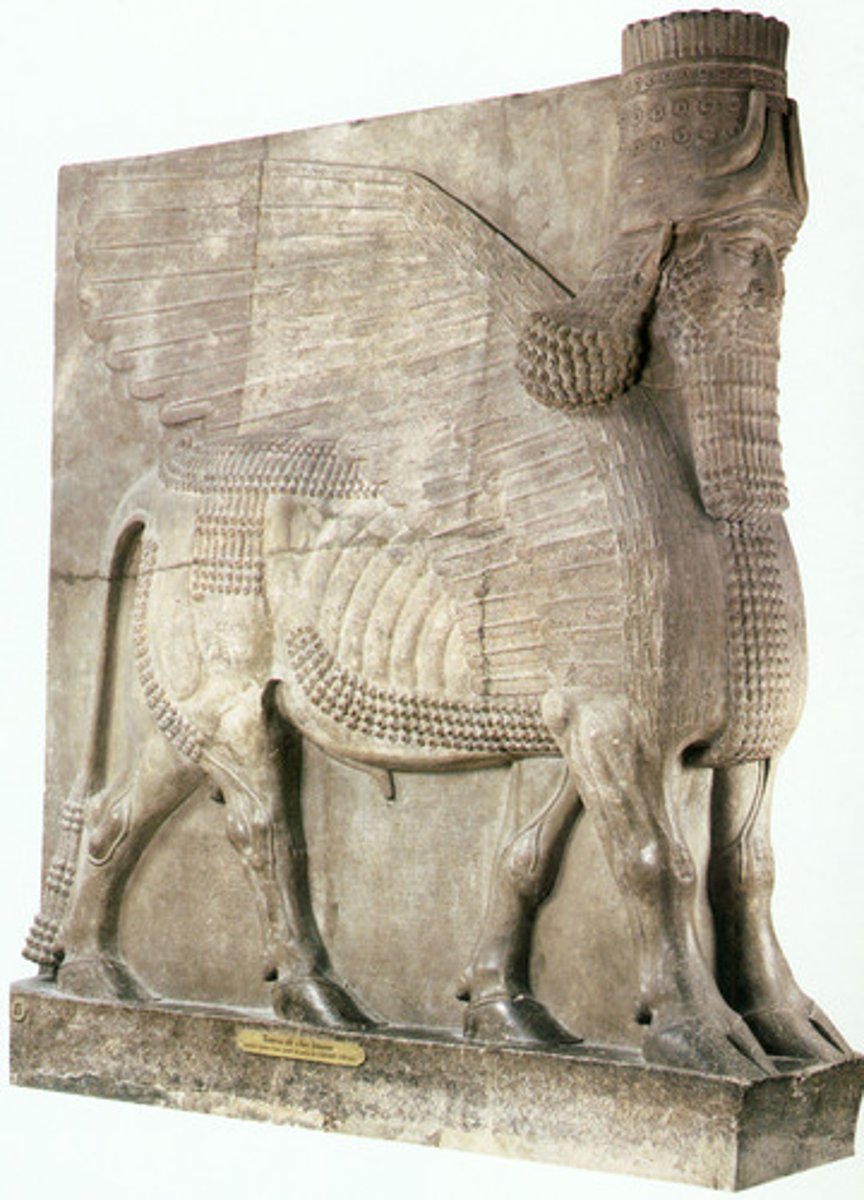
Nineveh
A major ancient city on the eastern bank of the Tigris River. It served as the final, greatest capital of the Neo-Assyrian Empire in the 7th century BCE, a period of great cultural and architectural development, before its destruction in 612 BCE by a coalition of Babylonian and Median forces.
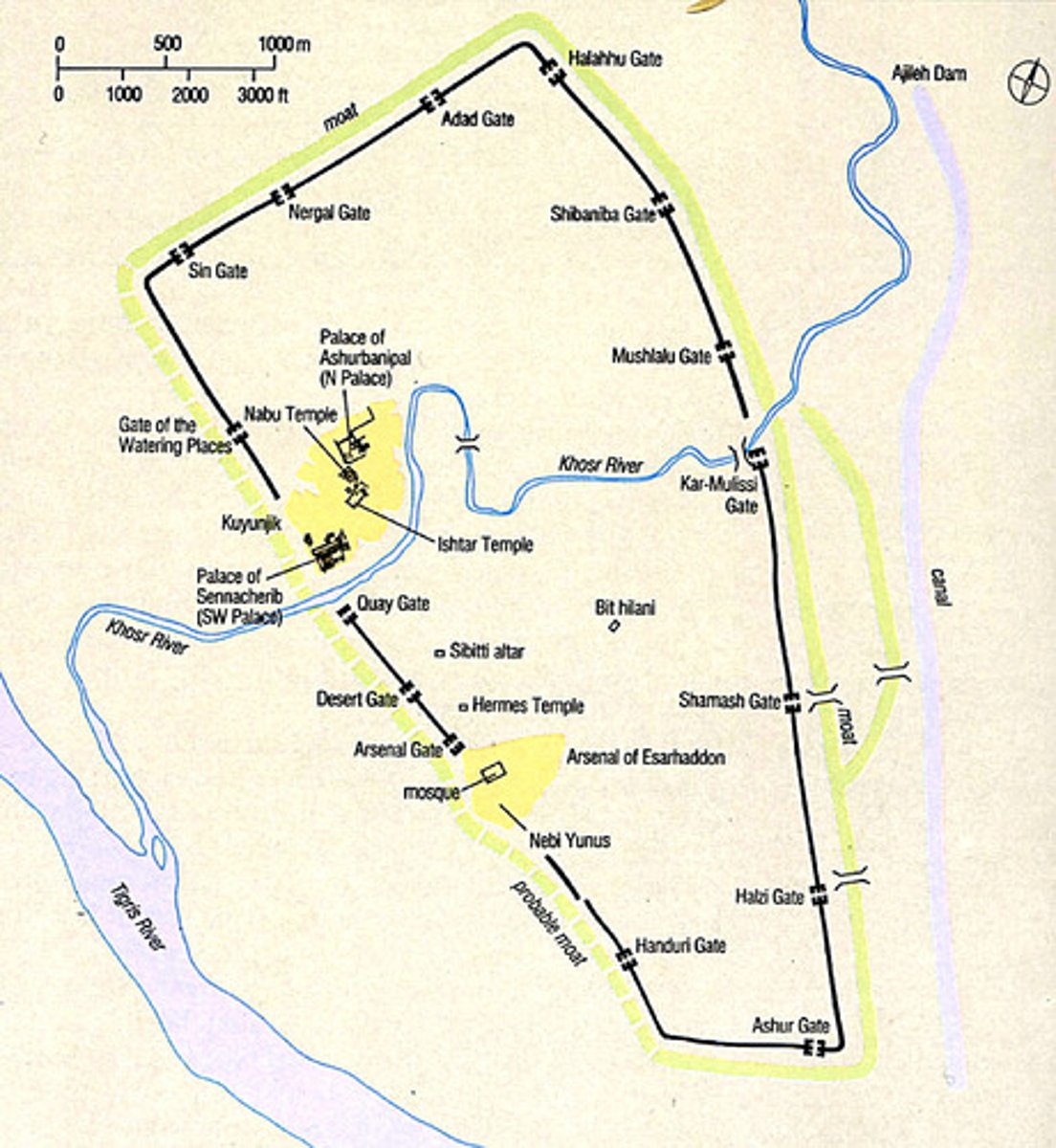
Neo-Babylonian Empire
Lasted from 626-539 BC. Known for its cultural and scientific renaissance, its monumental architecture like the Ishtar Gate, ziggurats, and the Hanging Gardens. Under rulers like Nebuchadnezzar II, Babylon became the most powerful state in the world, leading to significant advancements in astronomy and other fields, influencing subsequent civilizations.
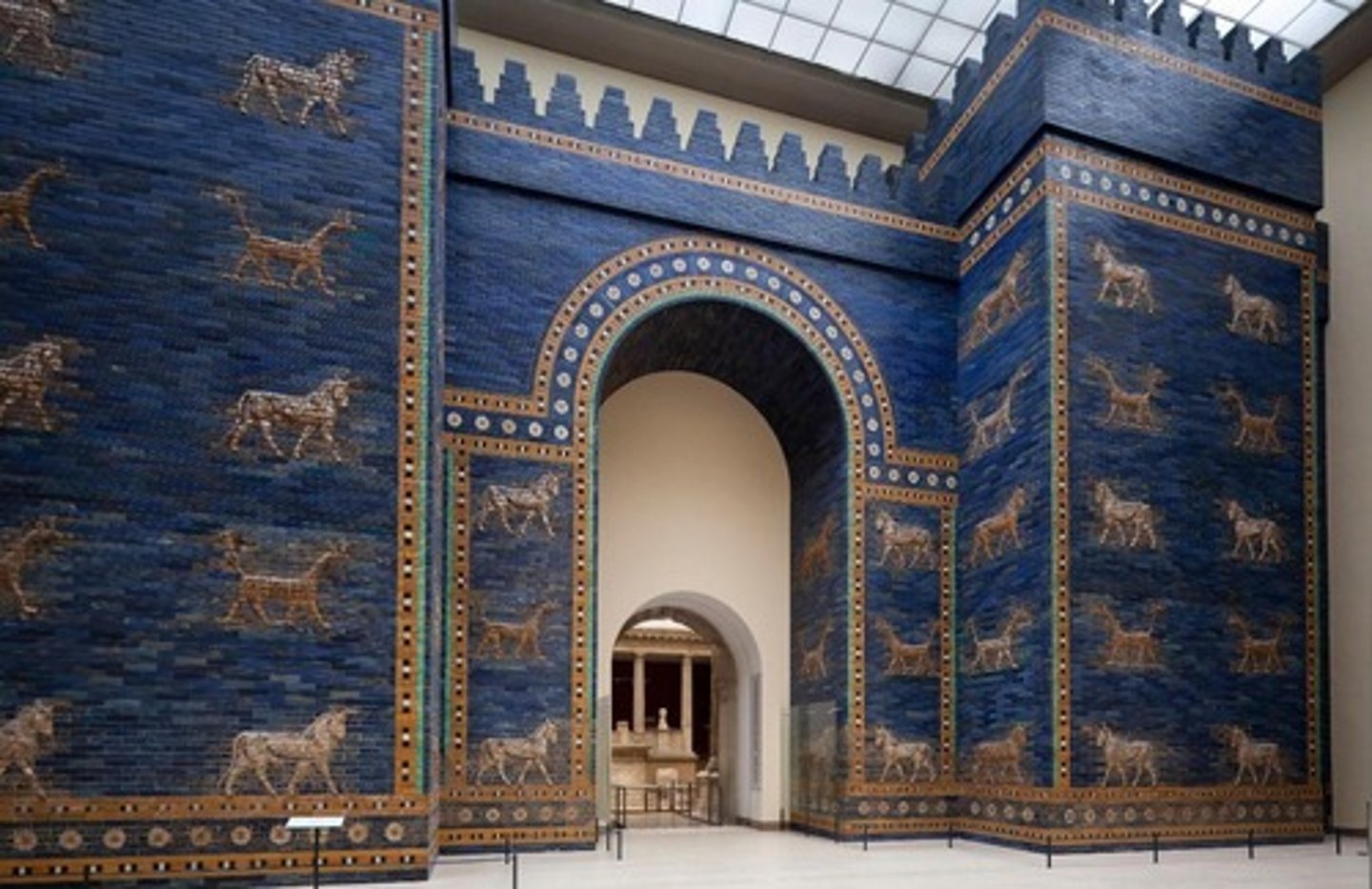
Nebuchadnezzar II
King Nebuchadnezzar II was the longest-reigning ruler of the Neo-Babylonian Empire. He was illiterate and stamped bricks with his name on them.
He was well known for his military conquests and construction projects, including Ziggurats (man-made mountain temples) and the Hanging Gardens.
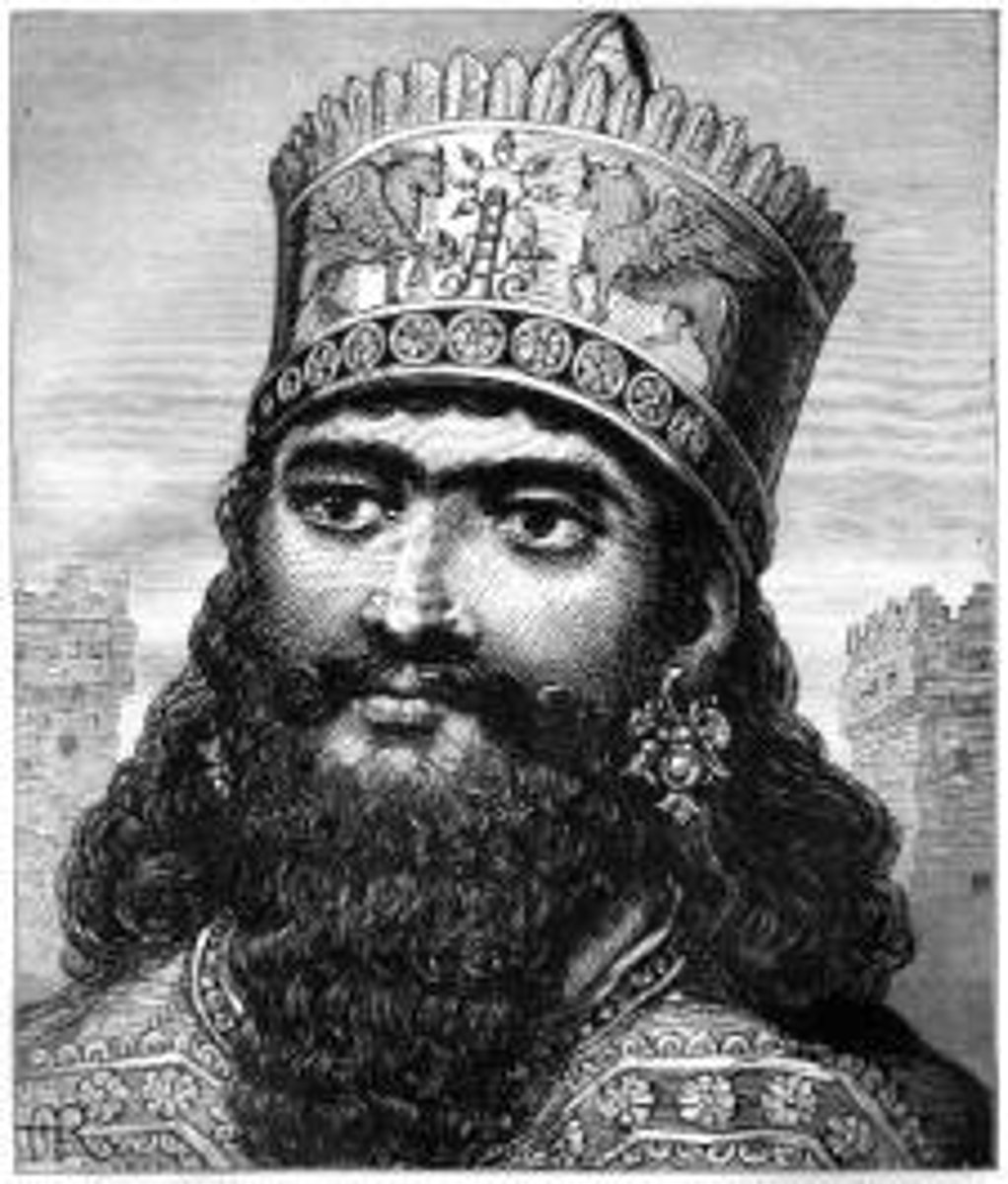
Persian Empire
founded by Cyrus the Great and known for its vast territory spanning three continents and its impressive infrastructure like the Royal Road, a postal road that ran from Susa to Sardis. The Persians had a more sophisticated governing system than others.
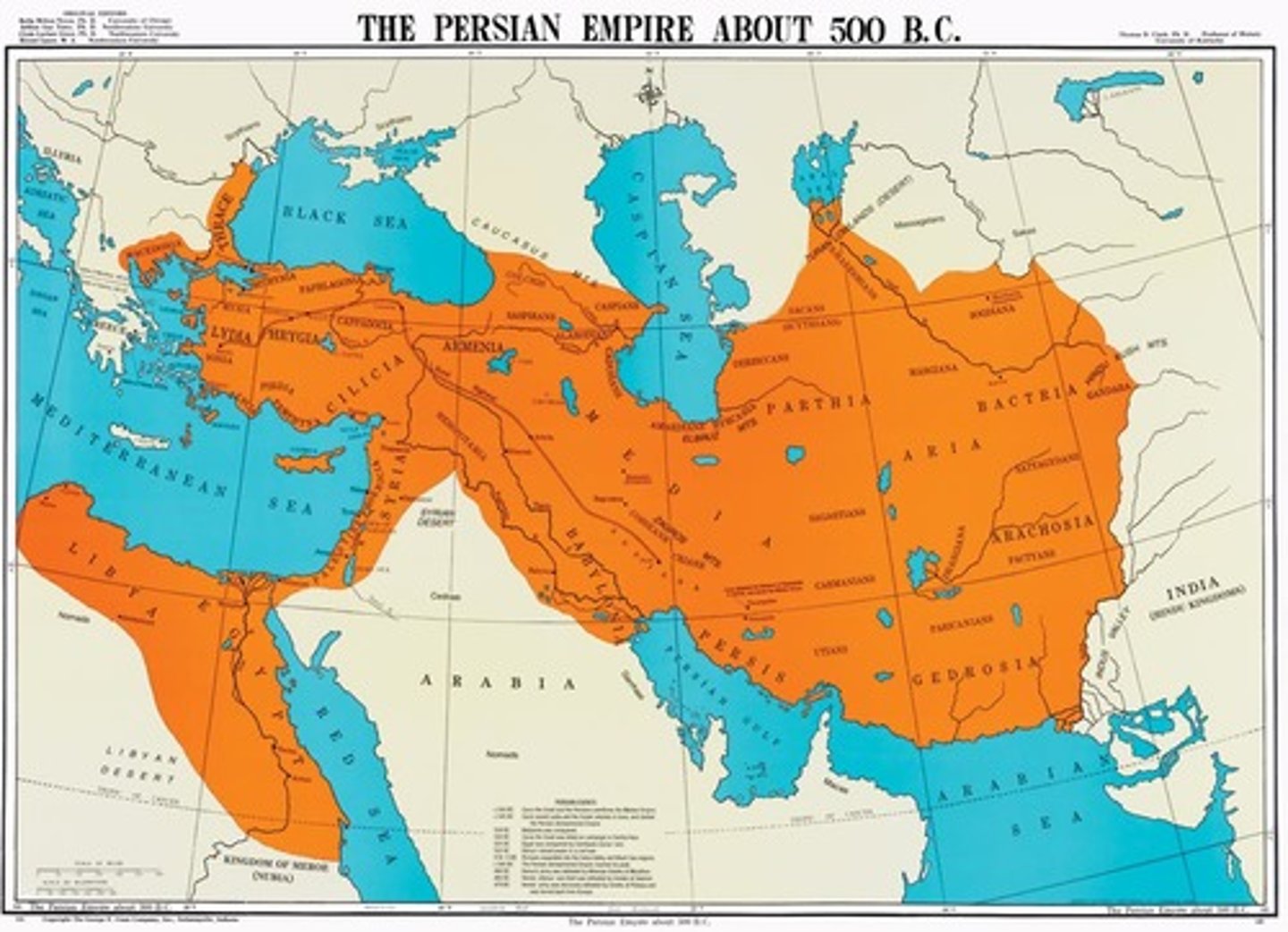
Cyrus the Great
Founder and ruler of the Persian Empire from 559-530 BC. He was the ruler of the Jews after conquering the Babylonian Empire. He allowed them to return to Judah after the Babylonian Captivity.
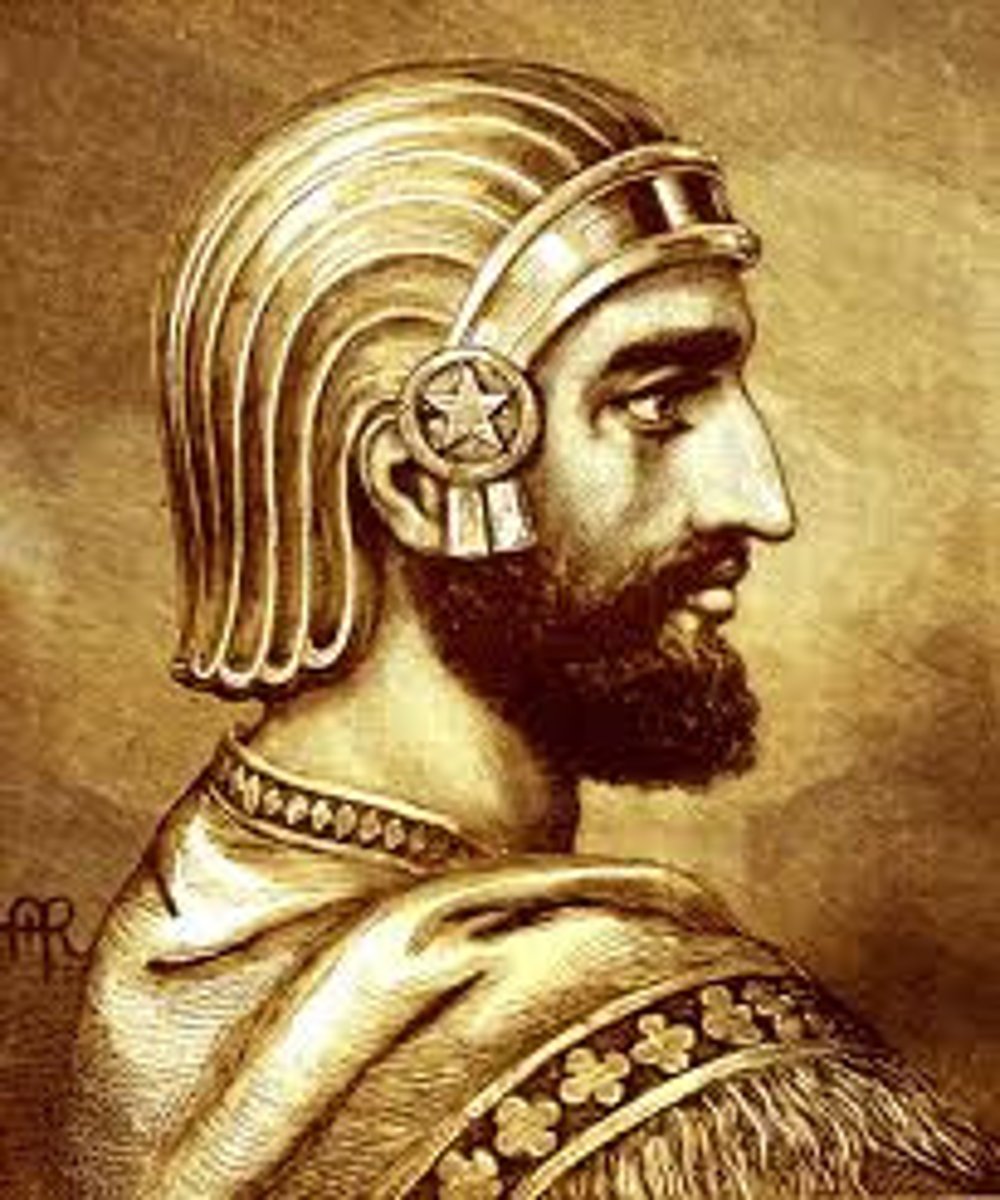
Zoroastrianism (Dualism)
An ancient Persian monotheistic religion that good (Ahura Mazda) and evil (Ahriman) are the two forces in the world that are always in a cosmic battle with each other. They worshipped the deity Ahura Mazda.

Minoan Crete
The earliest center of civilization in the Greek region. The sea was the basis of its economy and power. The Minoans' sophisticated culture was named for the legendary King Minos. They used Linear A for their language. Their culture included lots of bulls and the story of Theseus and the Minotaur in the labyrinth.
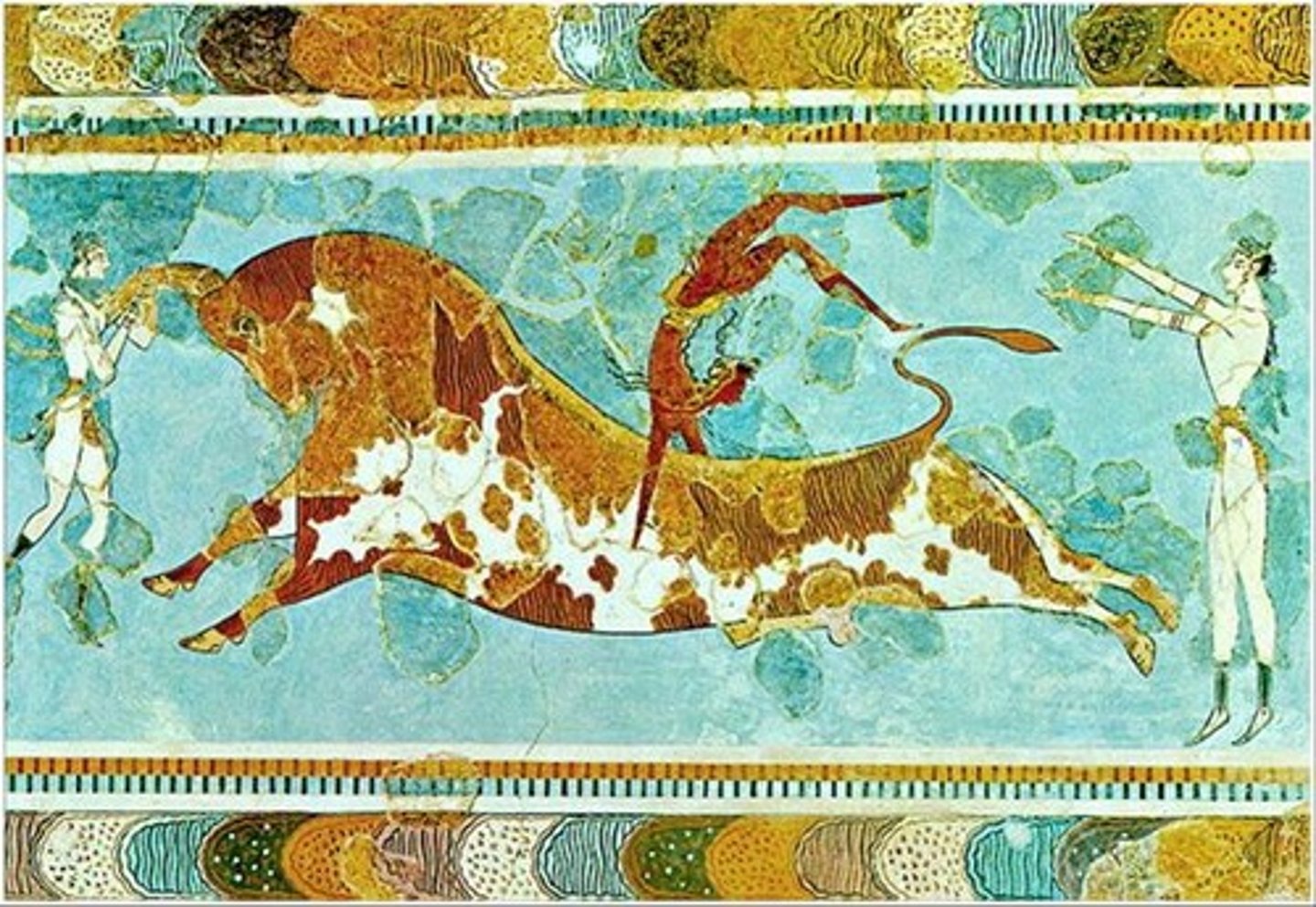
Knossos
A city in Crete that was the center of Minoan culture, it was the home for King Minos and the Minotaur's labyrinth.
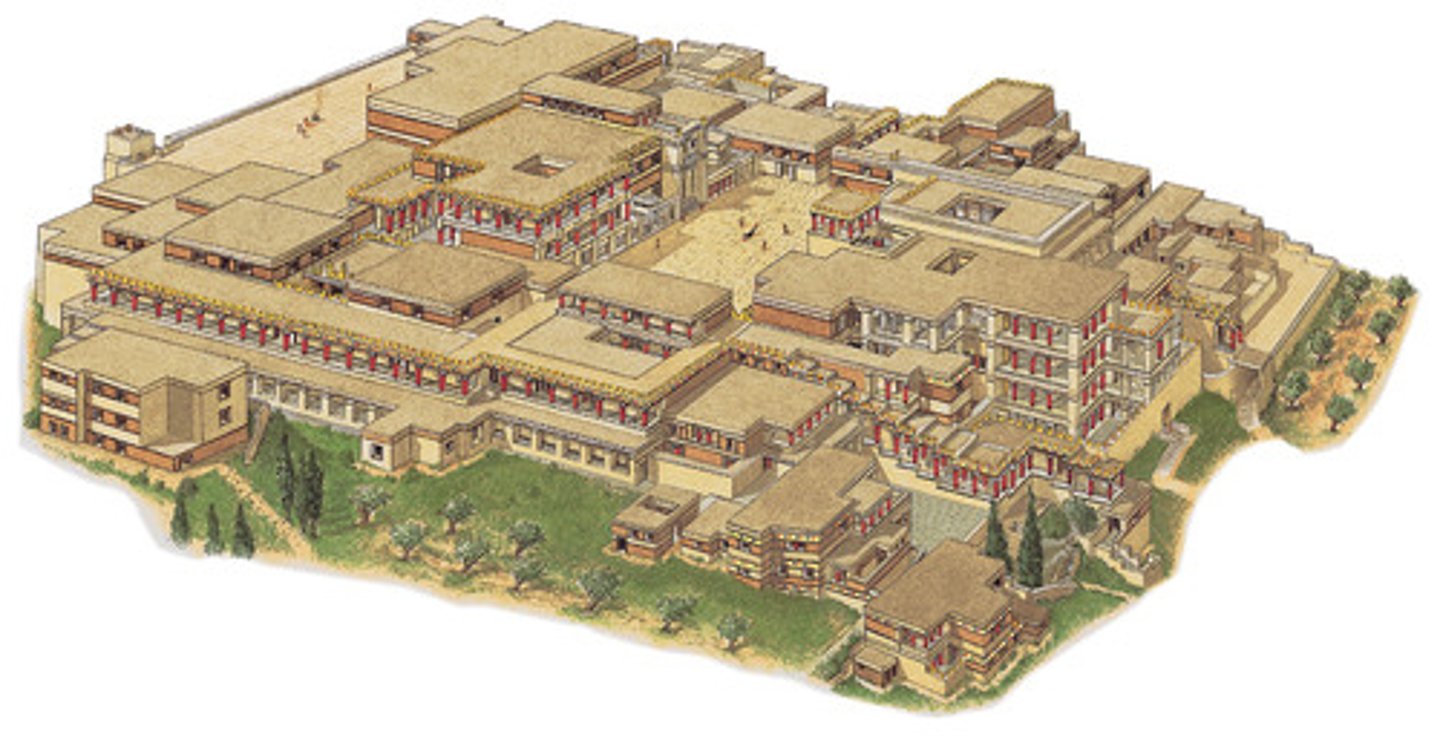
Myceneans
Conquerors of the Minoan Civilizations, the Myceneans loved war and hunting.
They were great warriors, but the wars they were apart of were so destructive that they brought about the Dark Age of Greece.
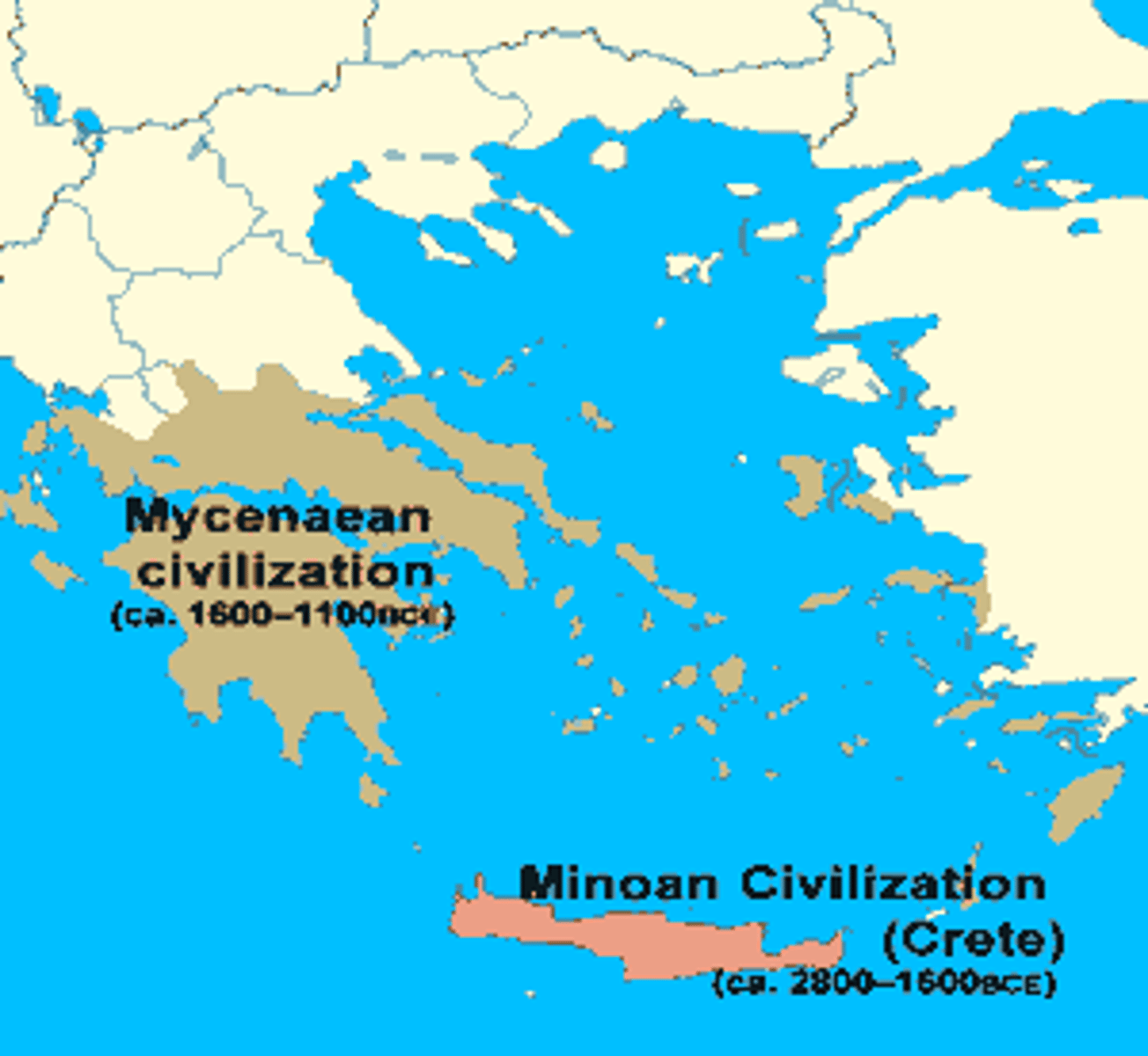
Homer
Homer was a Greek poet, and his famous works of the Iliad and the Odyssey were the earliest manifestation of Greek humanism.
Both works also stressed the Greek ideal of arete, which translates to “excellence,” or a fulfillment of potential.
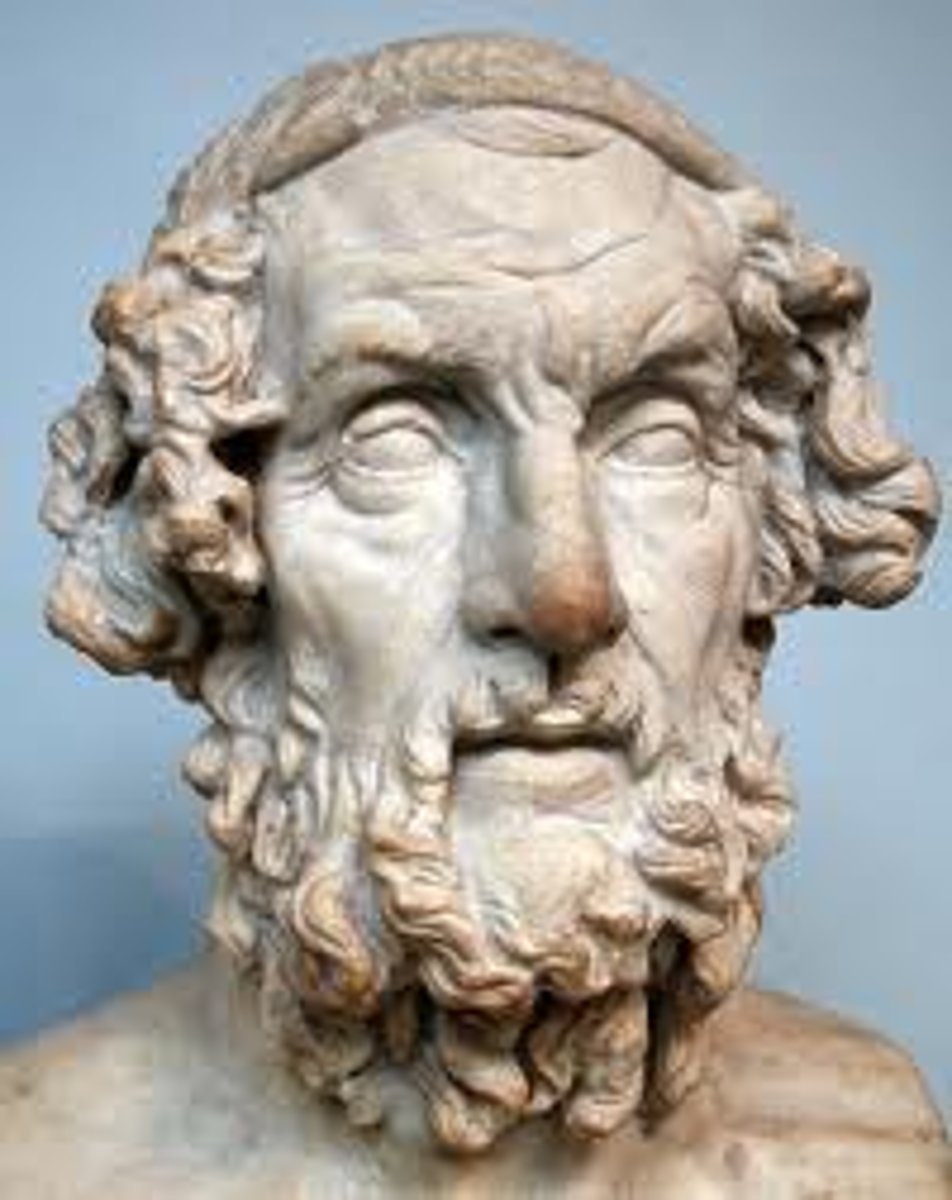
Polis
Translates to "city-state." A polis was a basic unit of Greek civilization.
Sparta
a Greek city-state that focused on warfare; they were worried about the Helots (a group of people they conquered) overtaking them, so they trained the men to be great warriors. Sparta was the leader of the Peloponnesian League alliance.
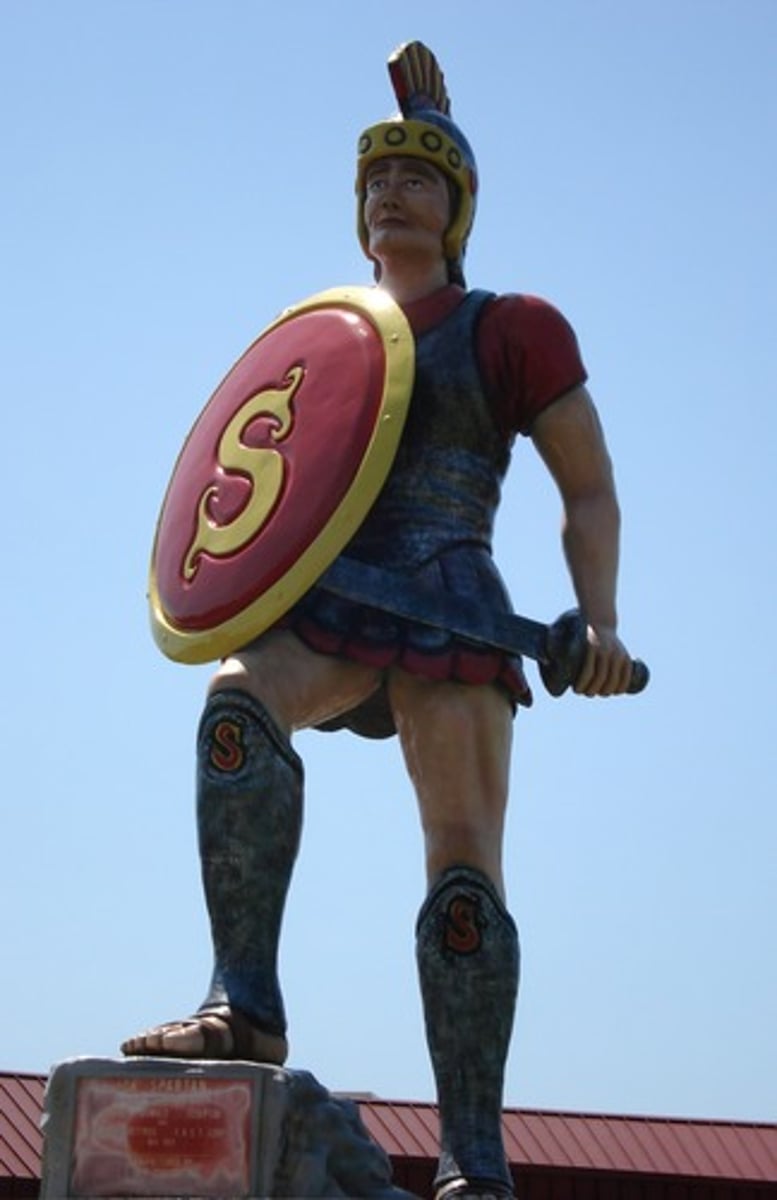
Athens
a Greek city-state that was heavily involved in trade and culture. Athens was the birthplace of democracy, and was the leader of the Delian League, an alliance created to pool Greece's resources in case the Persians attacked again after the Persian Wars.
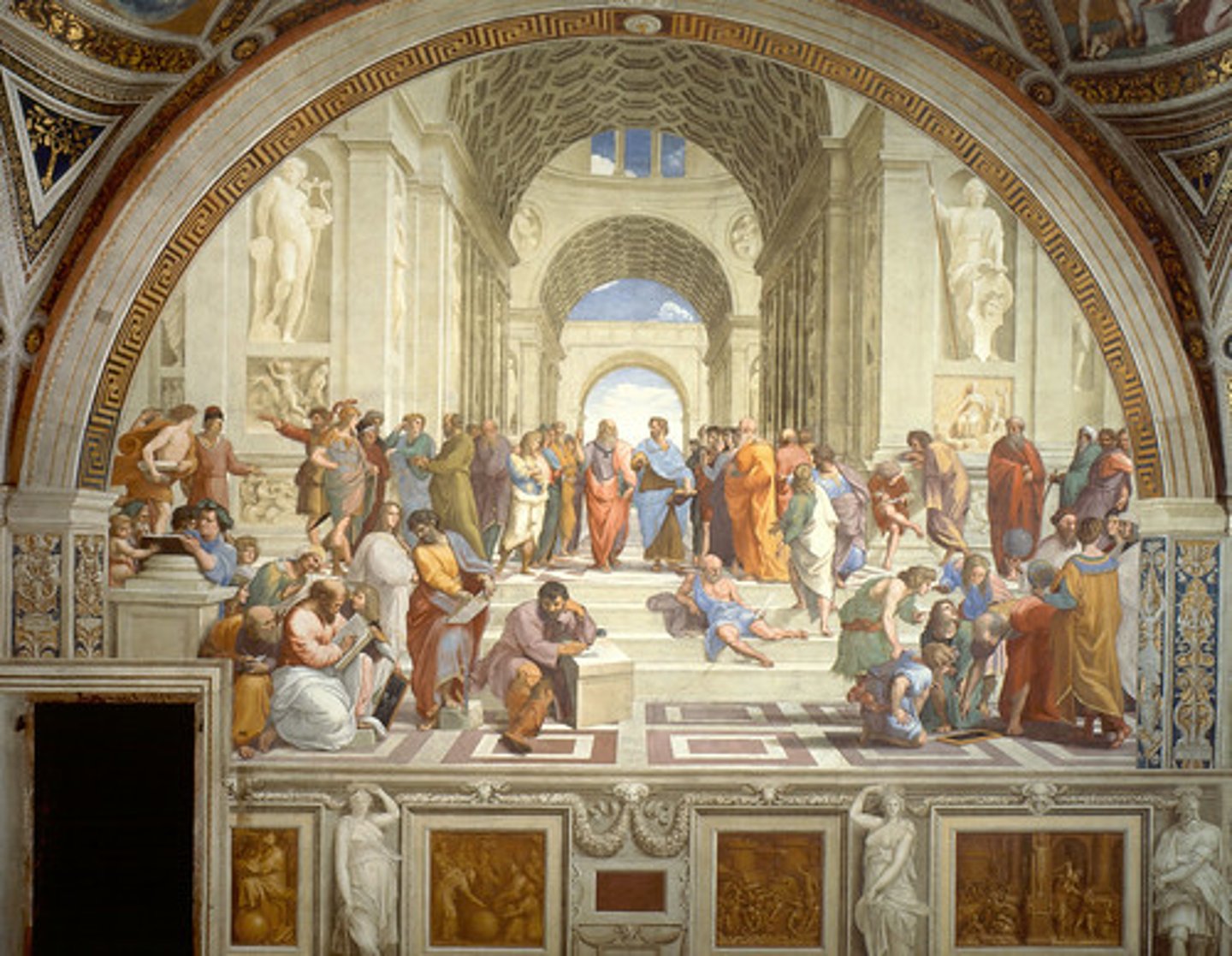
Cleisthenes
He gave the Athenian government its final form in 508 BC and is considered the founder of Athenian democracy. People's names were randomly drawn to participate in government. He also introduced ostracism.
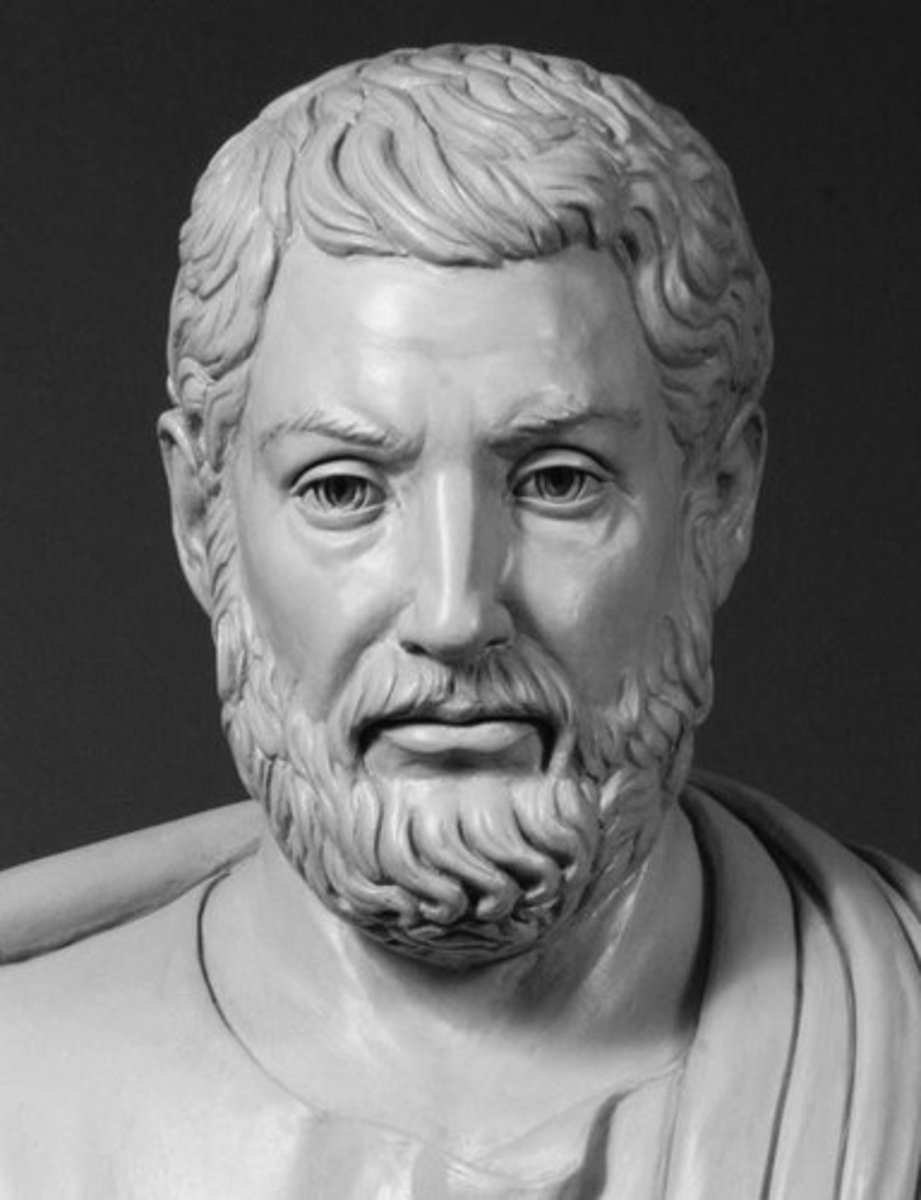
Persian Wars
490-479 BC: During the expansion of the Greek cities, the Greeks encountered the Persian Empire.
The Persians expected to easily overcome Greece, but the Greeks ultimately win at the Battles of Salamis and Plataea.
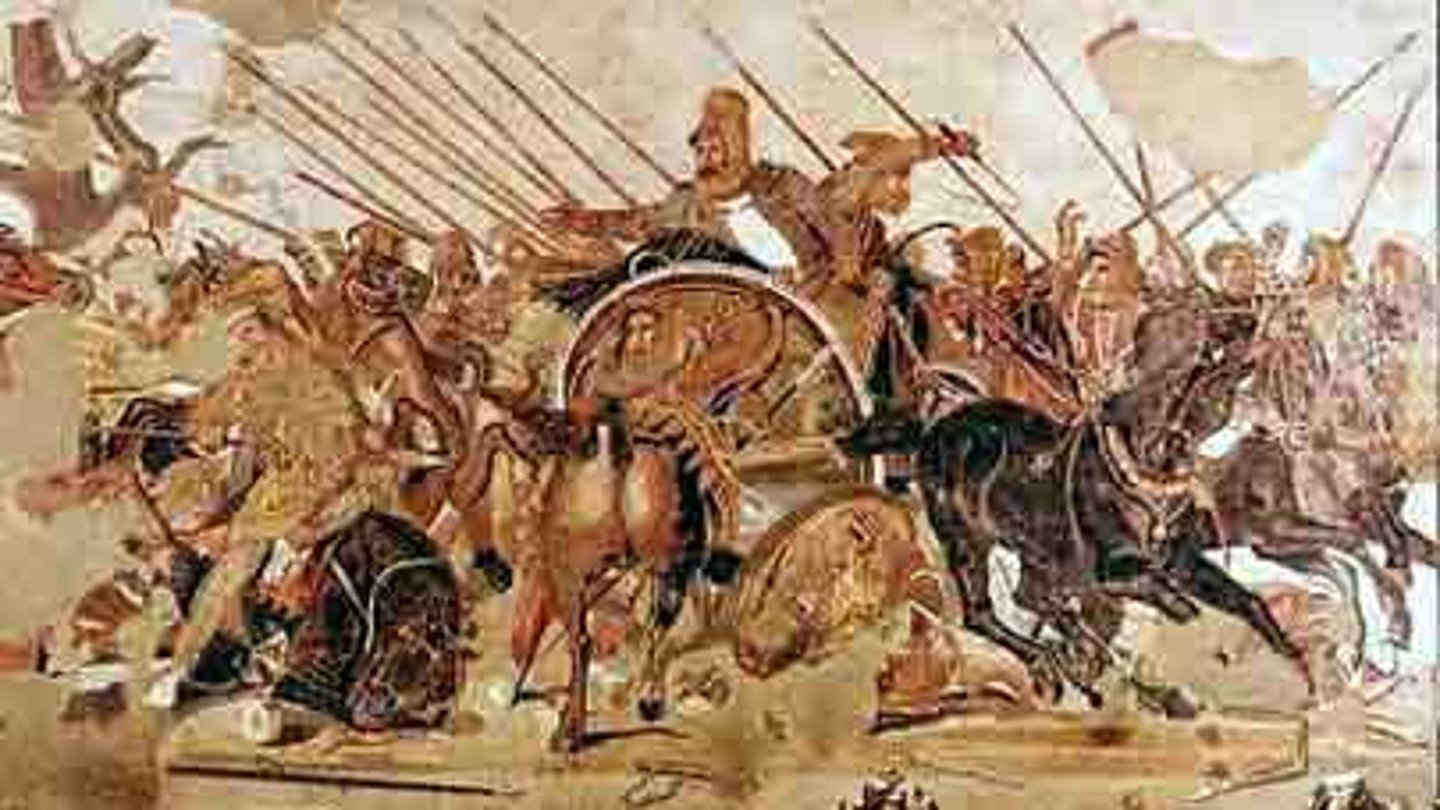
Marathon
a city-state in Greece; the Battle of Marathon was a battle during the Persian Wars, taking place in 490 BC. the Persians tried to take Athens but they lost and had to withdraw.
There is a Greek legend about a soldier named Pheidippides who ran from the battlefield at Marathon to Athens to announce victory over the Persians.
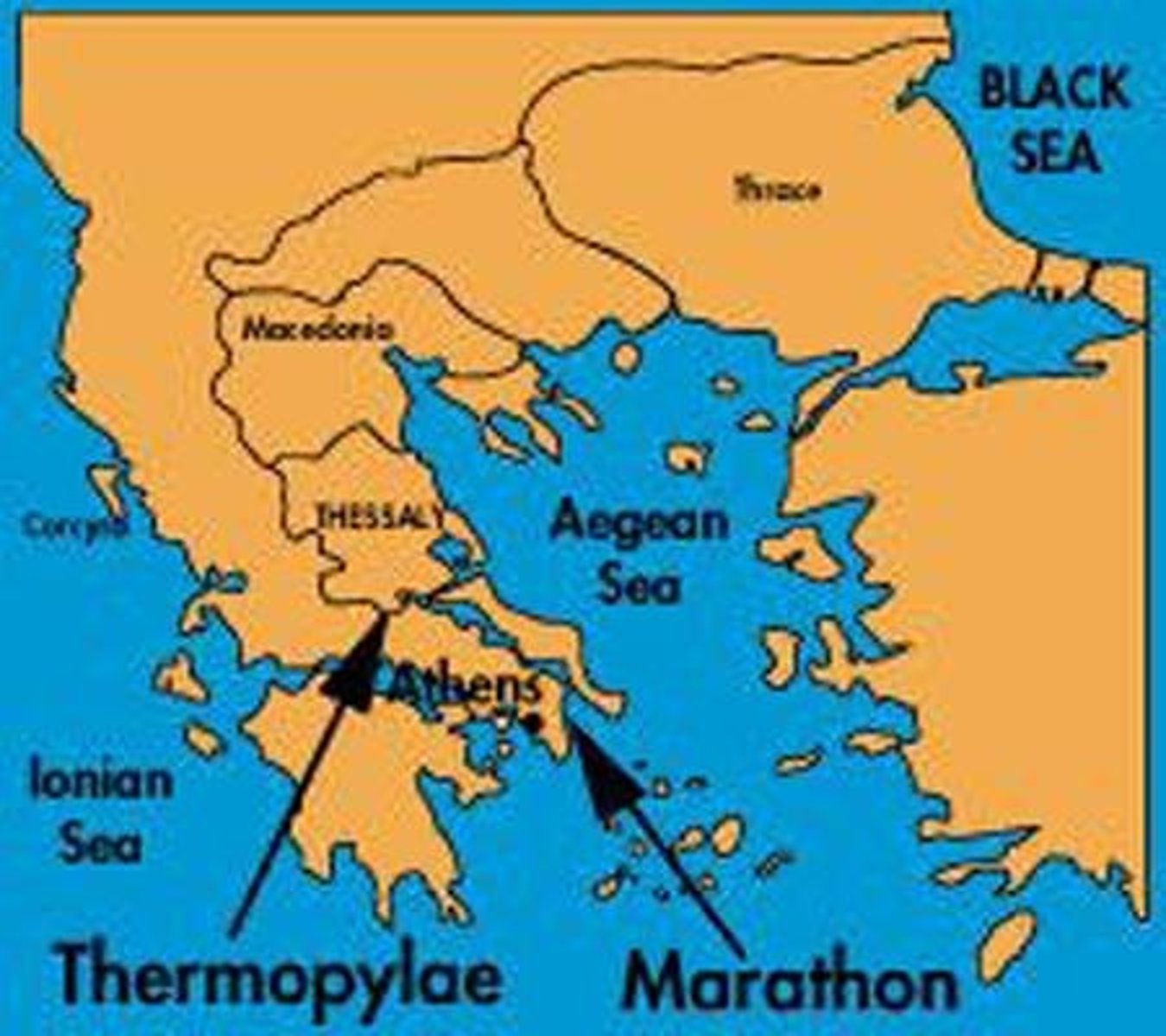
Peloponnesian War
Occurring between 431-404 BC, it was a civil war between Athens and Sparta, or the Delian League (Athens) and the Peloponnesian League (Sparta). Athens is the naval power (whale) and Sparta is the land power (elephant). Athens surrenders and its wall is torn down but the city survives. Greece is left vulnerable.
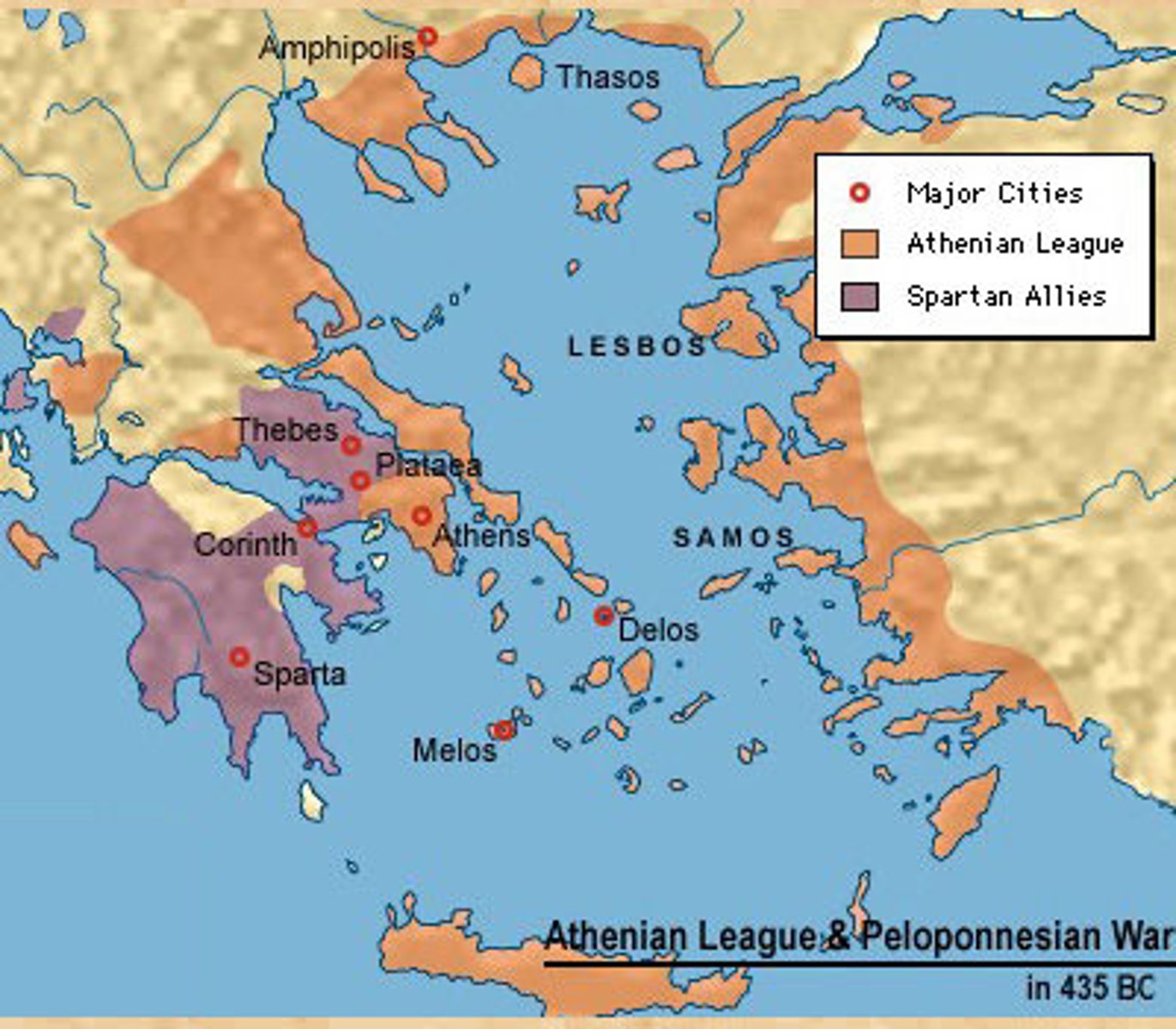
Parthenon
A temple to the Greek goddess Athena built on the highest point in Greece.
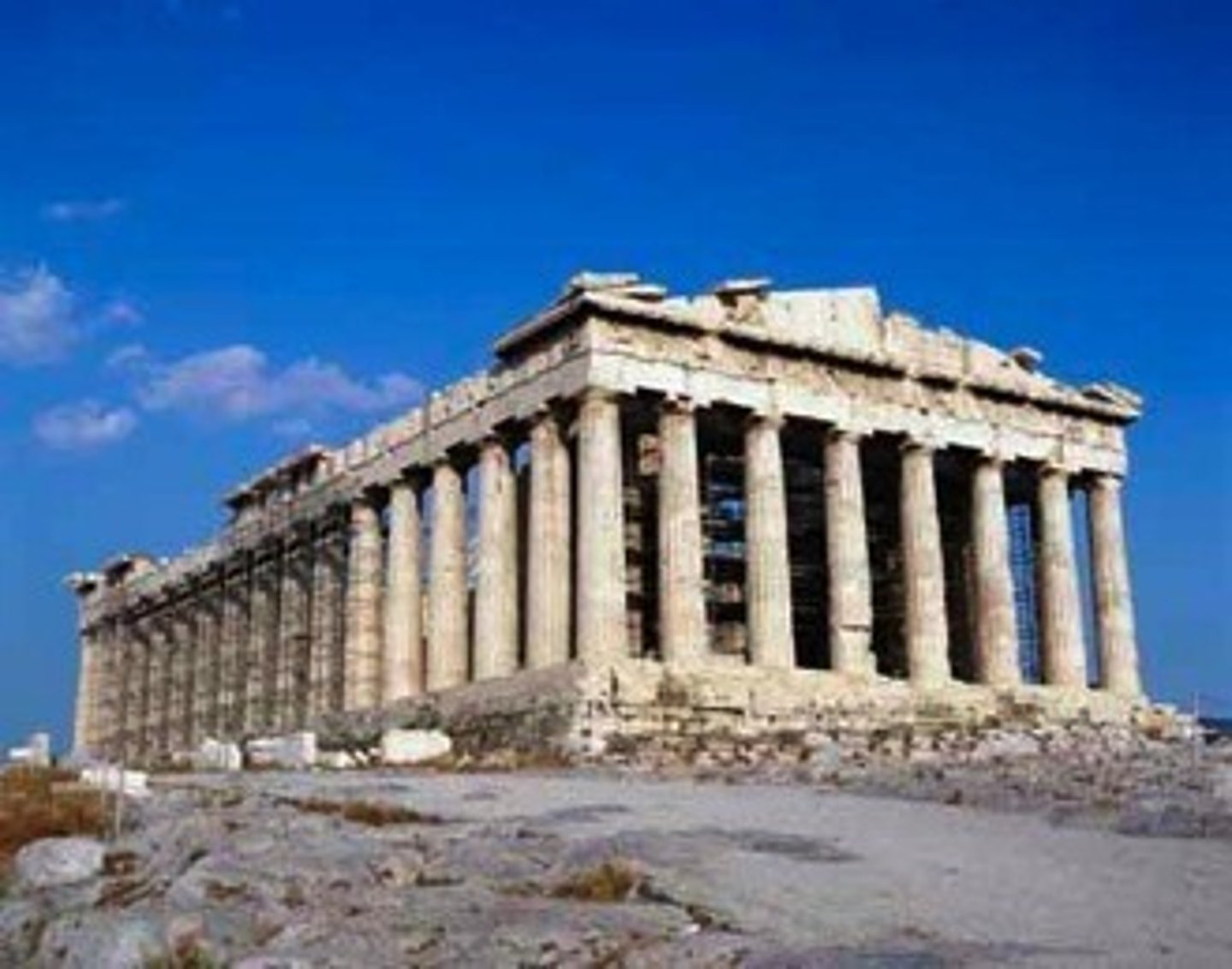
Thales
lived c. 624-548 BC: a Greek philosopher who was considered the Father of Science and the first Western philosopher. He was interested in nature, geometry, and predicted a solar eclipse. He suggested that water was the fundamental substance of the universe.
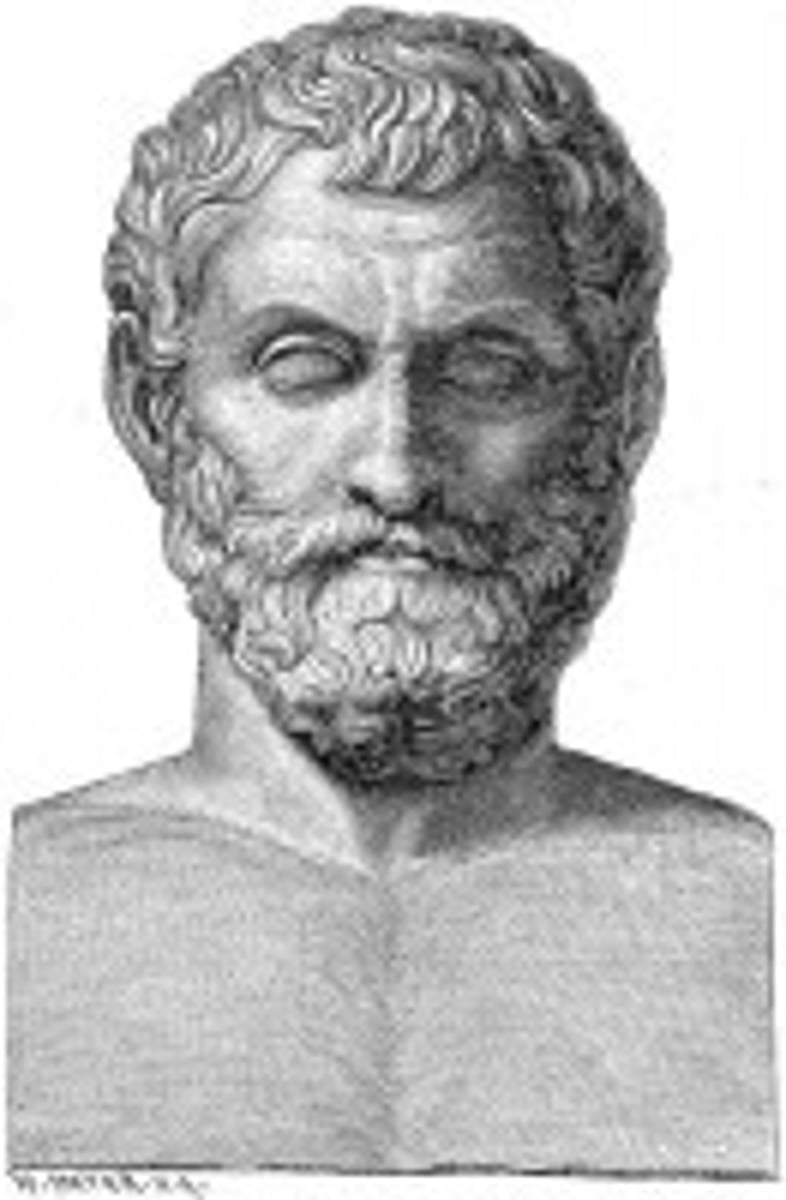
Democritus
a Greek philosopher primarily remembered for his formulation of an atomic theory of the universe. Also materialism.
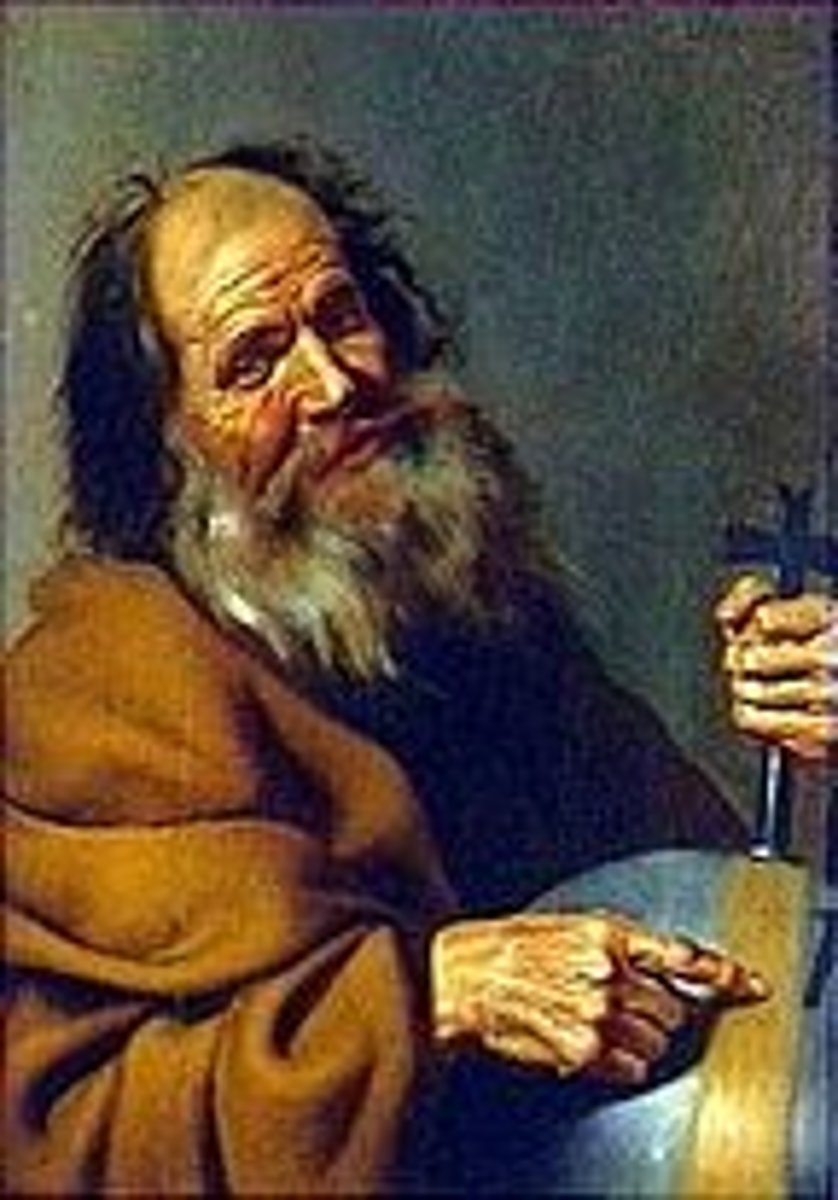
Herodotus
lived c. 484-424 BC: a Greek philosopher who was an anthropologist and known as the Father of History; he traveled a lot, visited Egypt, and gave an account of the Peloponnesian War, which he was alive for and witnessed.
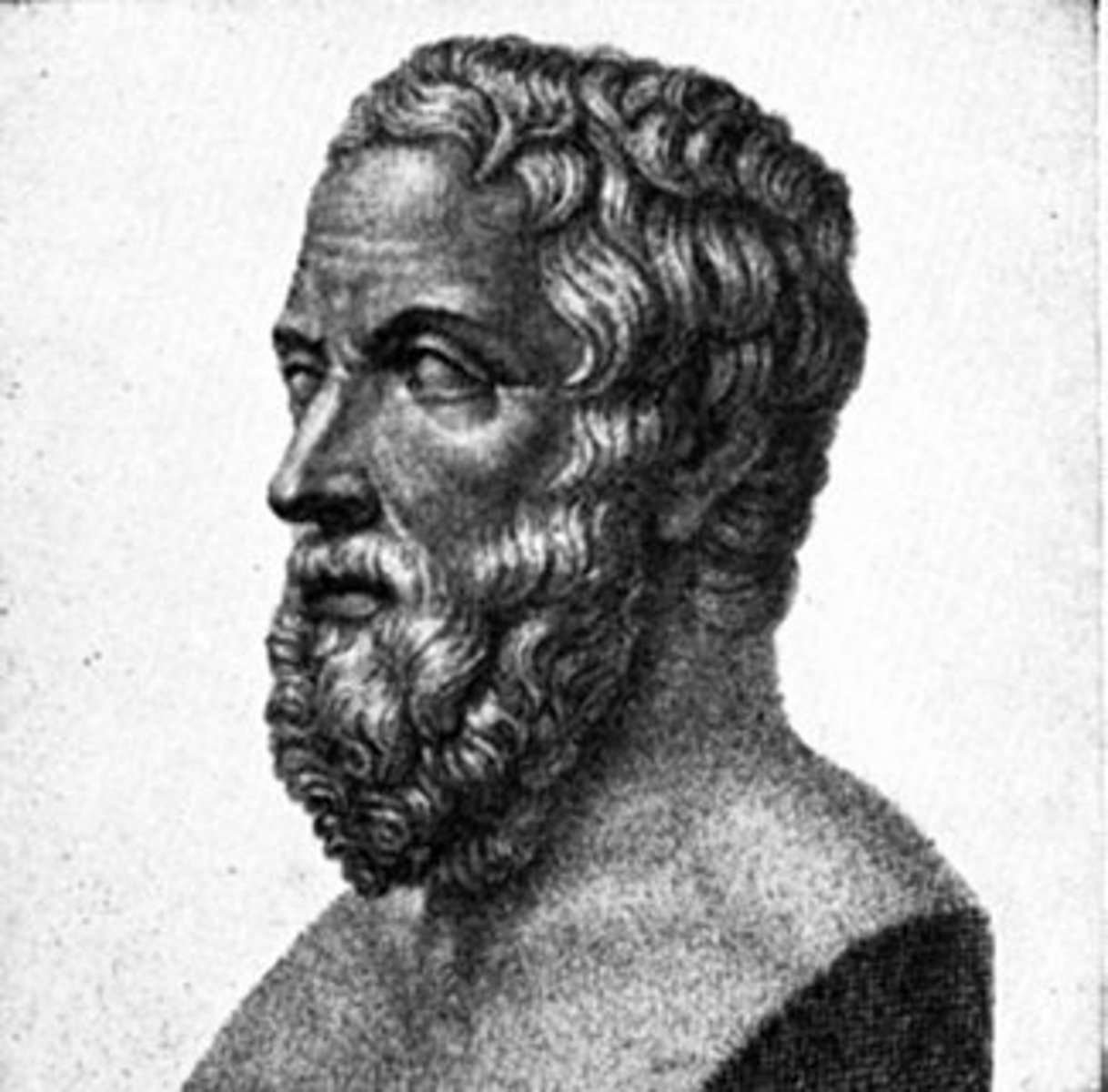
Socrates
lived 469-399 BC: a Greek philosopher that was considered the father of Western philosophy.
He was tried before a jury and ultimately put to death for being too inquisitive of others and negatively influencing the youth of Athens.
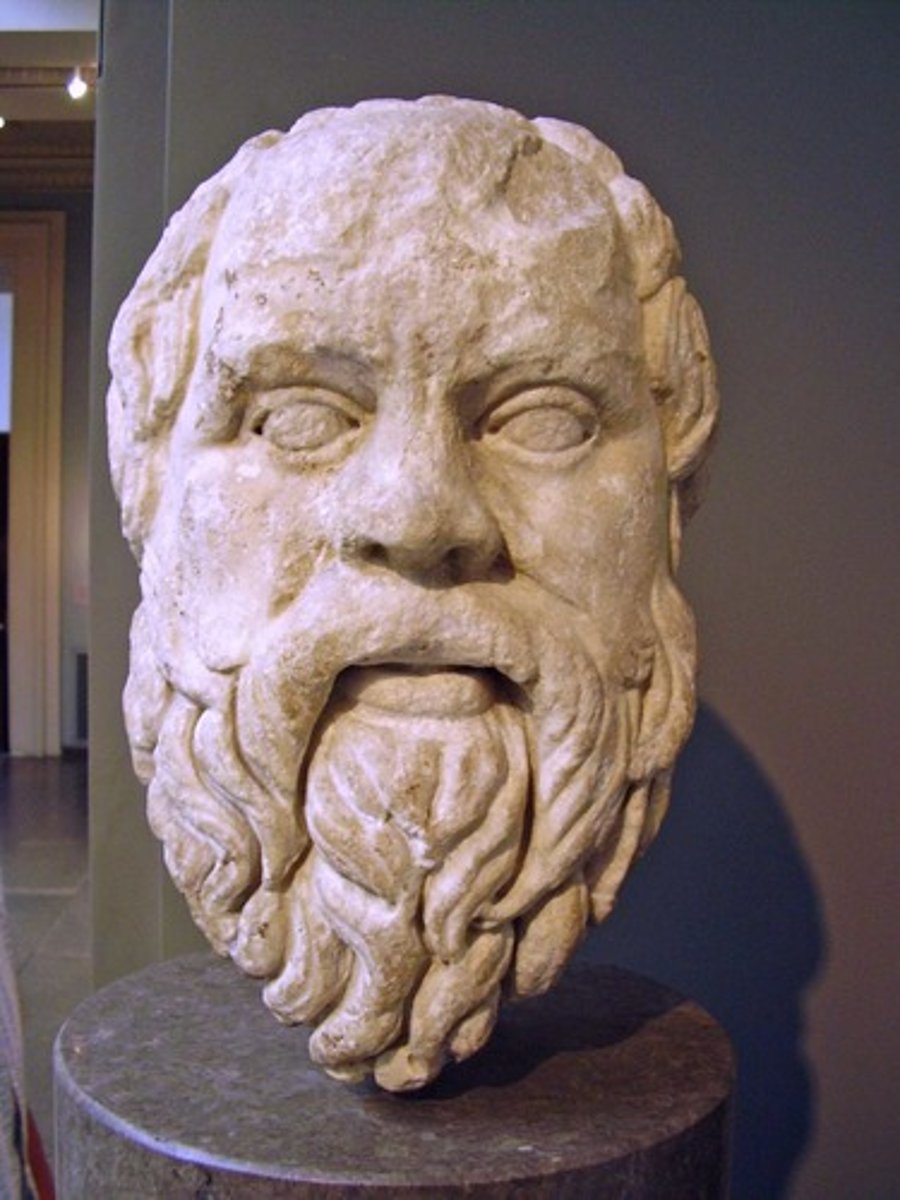
Plato
lived c. 429-399 BC: a student of Socrates and a founder of Western philosophy, he wrote the book The Republic, and founded the school called the Academy.
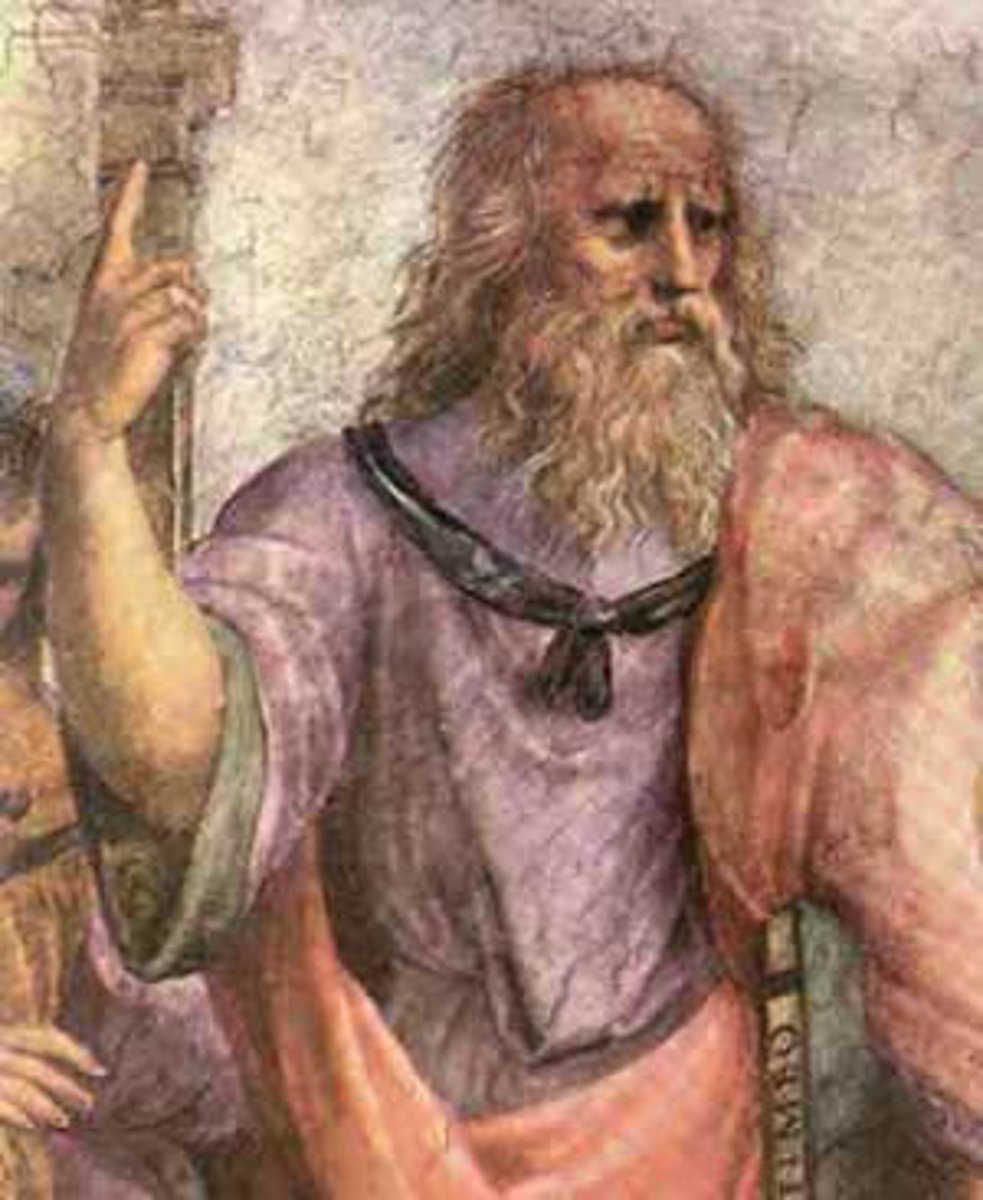
Republic
a Socratic dialogue authored by Plato around 375 BC, concerning justice, the order and character of the just city-state, and the just man.
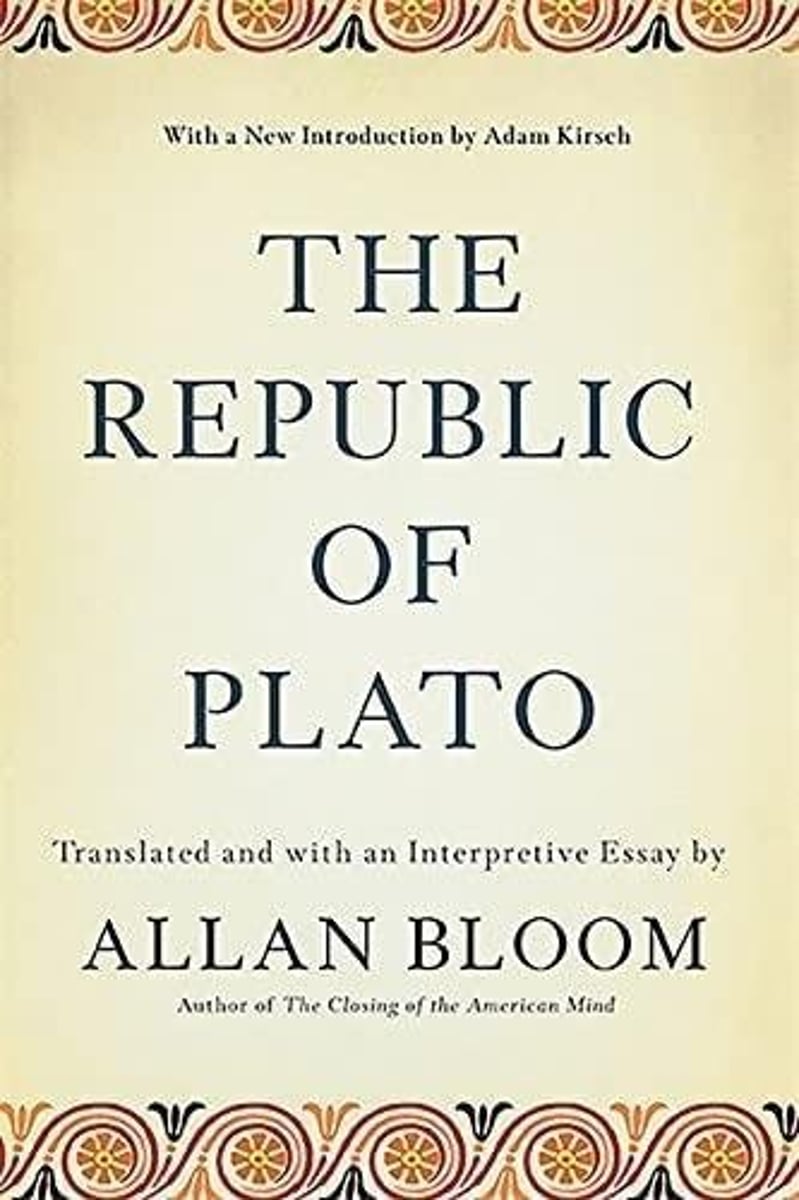
Aristotle
lived c. 384-322 BC: a student of Plato, he created the idea of Empiricism, the Golden Mean (the idea that moderation is key), and the Lyceum (a school).
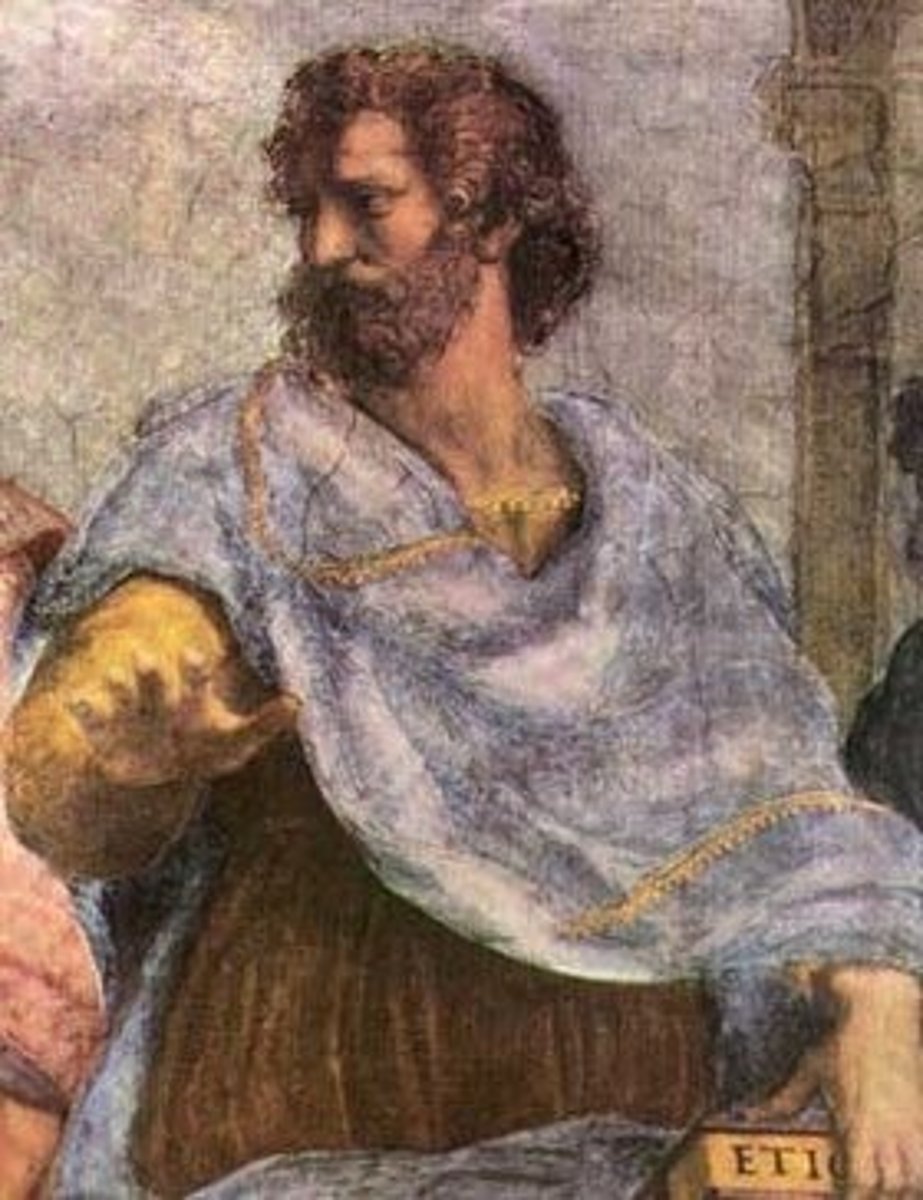
Empiricism
The idea created by Aristotle that all knowledge is derived from experience.
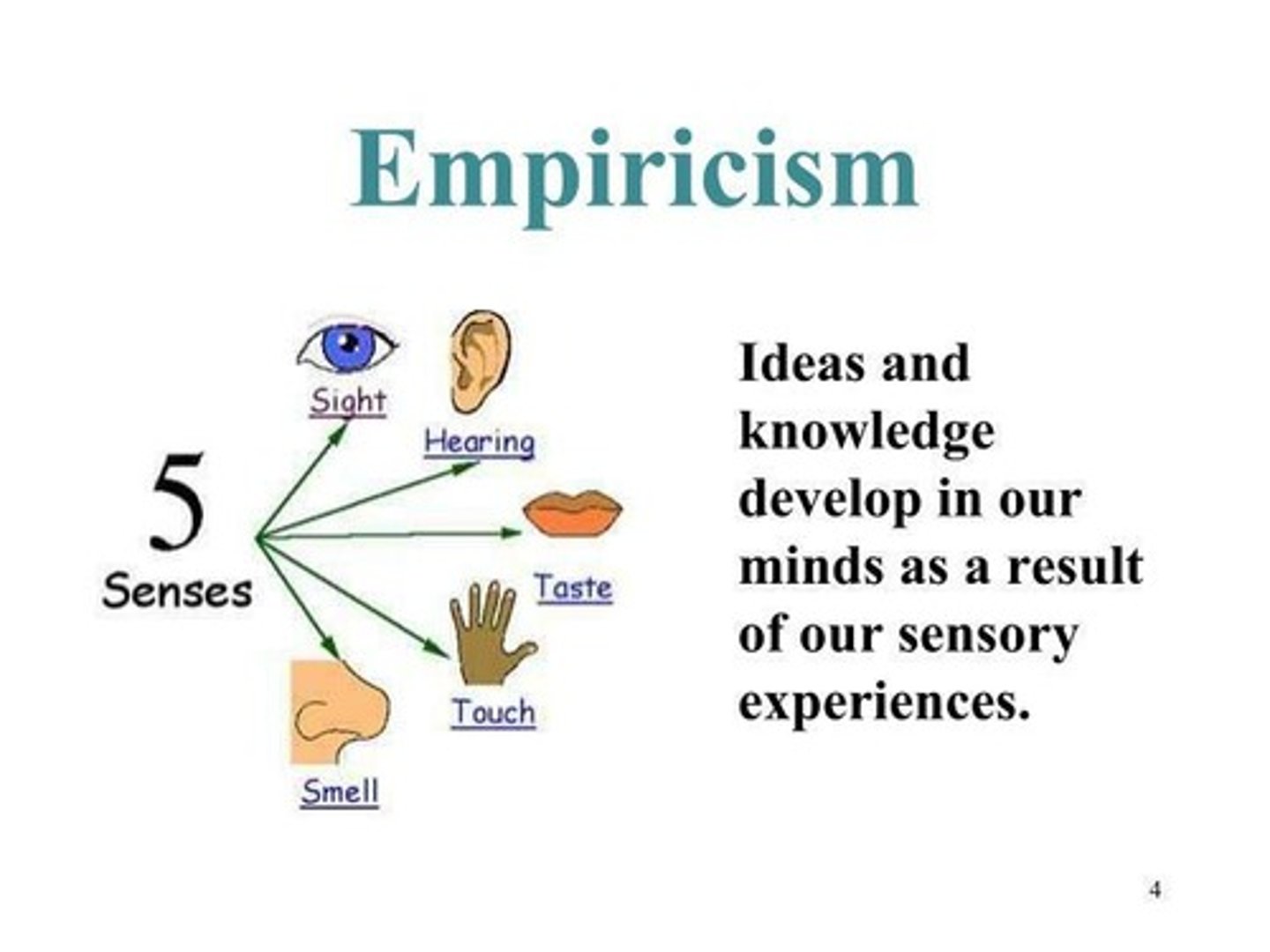
Philip of Macedon
King of Macedonia from 359-336 BC. The Greek civilizations were weakened from the Peloponnesian War, which allowed Philip of Macedon to conquer most of Greece, excluding Sparta.
Philip had visited Greece when he was younger and admired its culture and wealth. Also called Philip the one-eyed from losing an eye in battle.
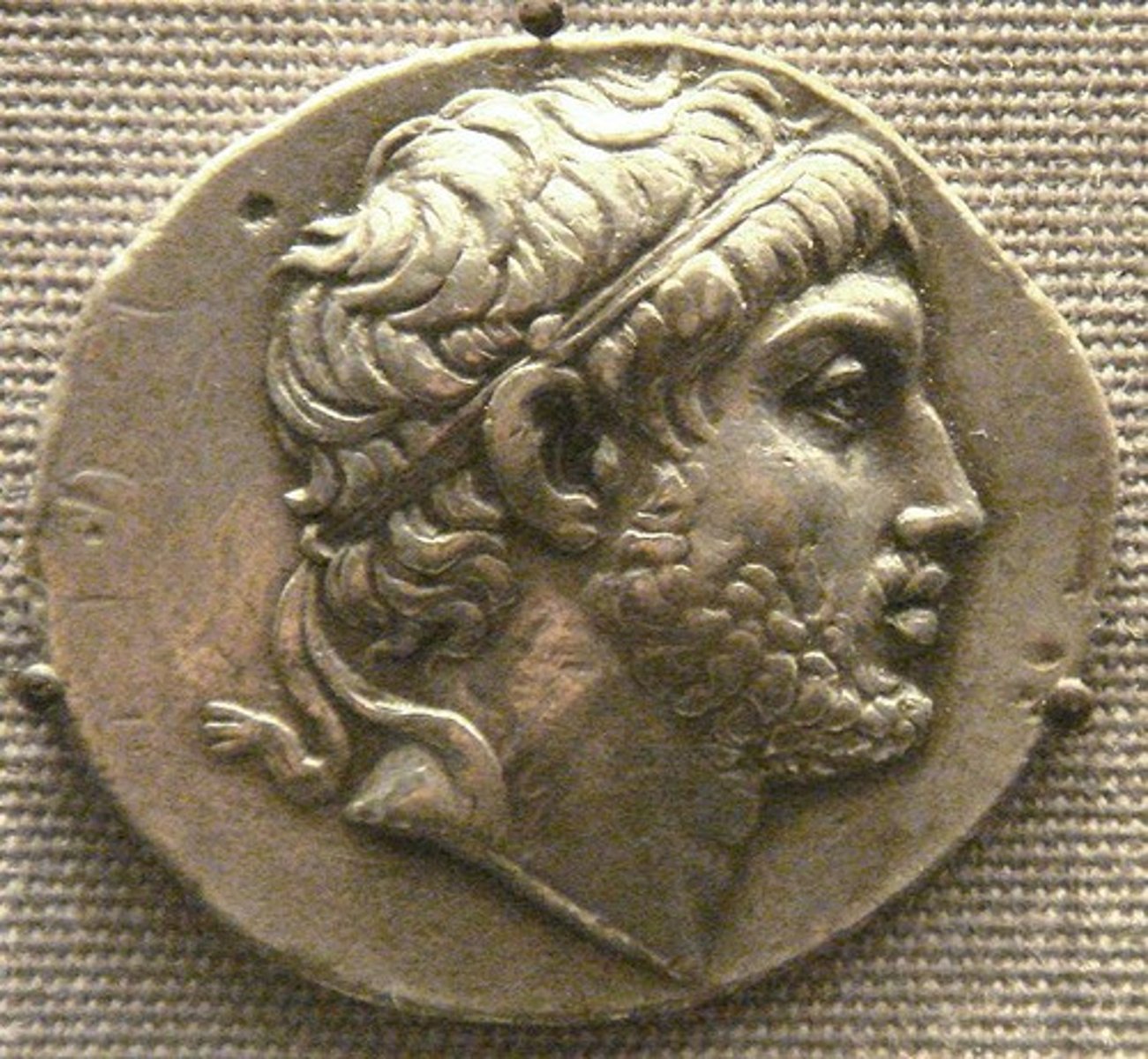
Alexander the Great
The son of Philip of Macedon, Alexander the Great became king of Macedonia at around 20 years old beginning 336 thru 323 BC.
Alexander began the Hellenistic Age as he became intent on conquering all the known world, including Persia, Egypt, India, and Mesopotamia.
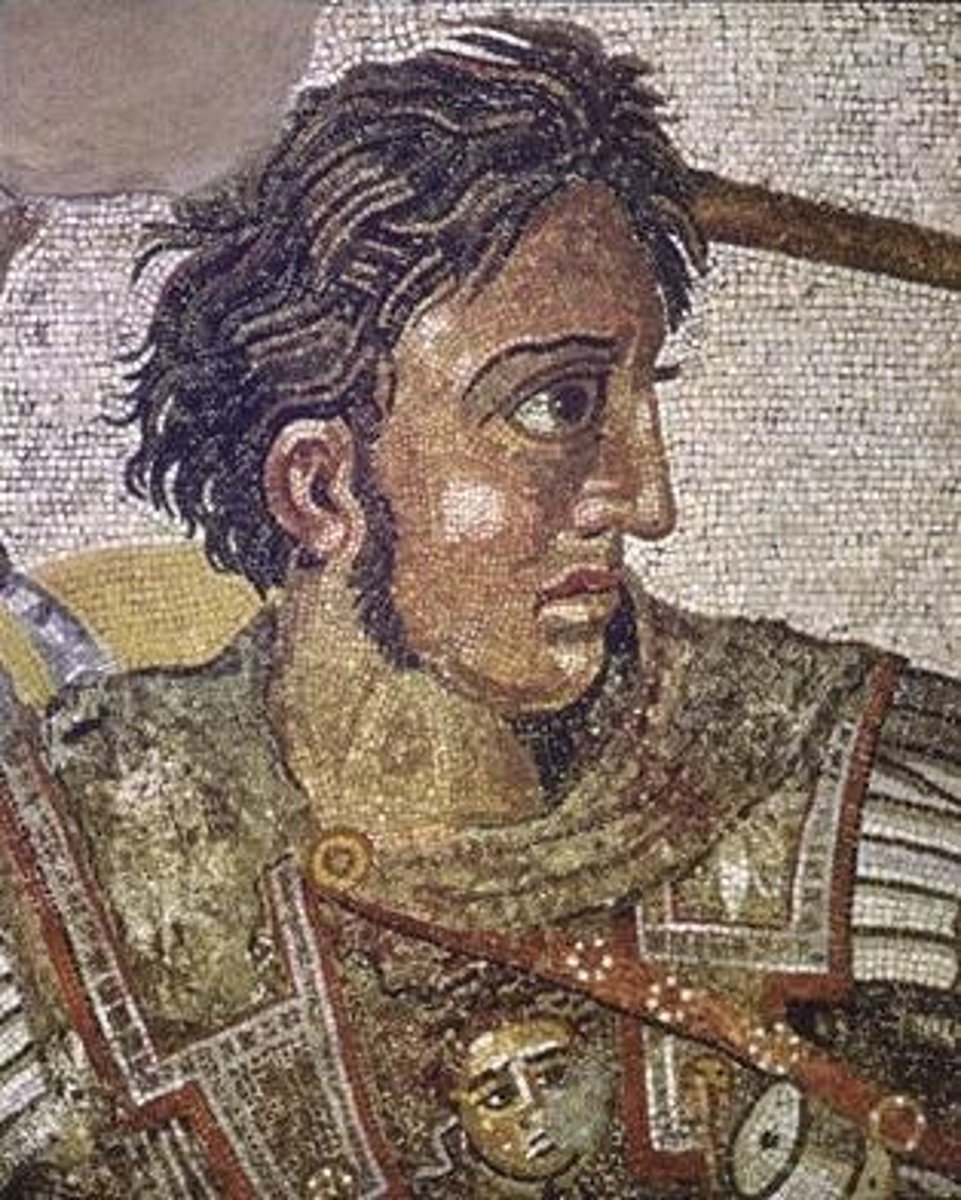
Seleucids
Members of the Greek dynasty that ruled the vast Seleucid Empire from 312 to 64 BC, a Hellenistic kingdom stretching from parts of Greece to Persia and India, founded by the general Seleucus I Nicator after the death of Alexander the Great (his empire was divided between his generals).
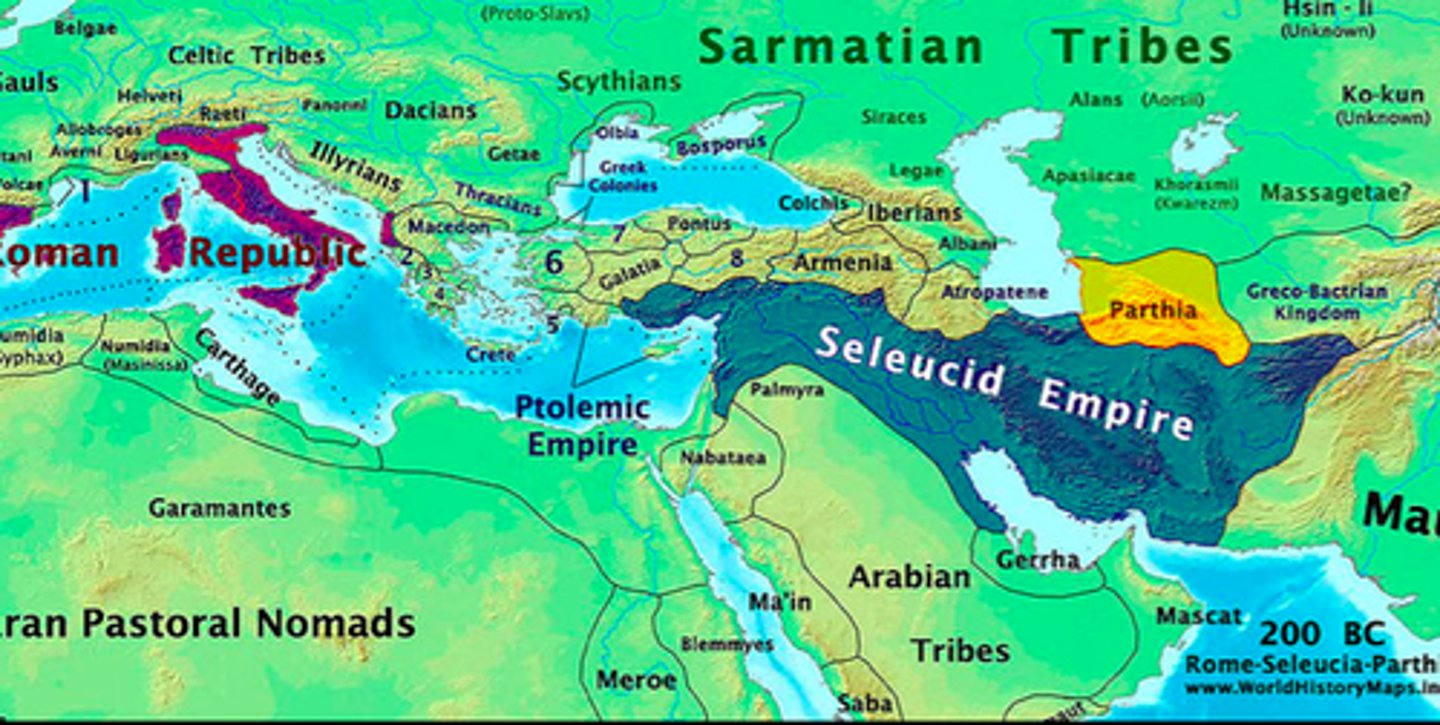
Ptolemies
a dynasty of Macedonian Greek origin who ruled ancient Egypt for nearly 300 years, starting from the death of Alexander the Great in 323 BC.
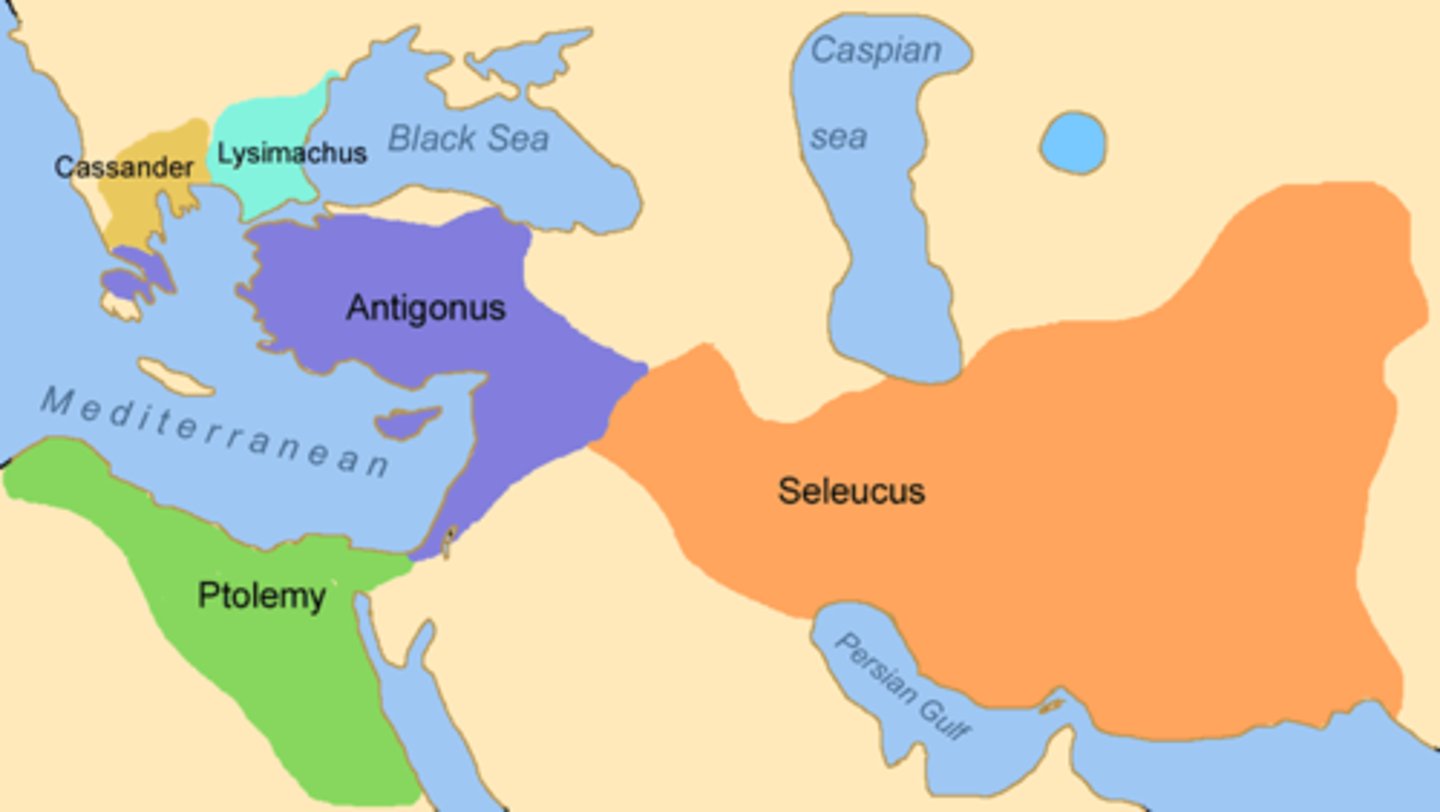
Alexandria
A coastal city on the Nile delta in Egypt, it was founded by Alexander the Great in 331 BC. It became the capital of the Ptolemaic Kingdom and was famous for its library, lighthouse, and museum. It was built on a grid of 90 degree angles.
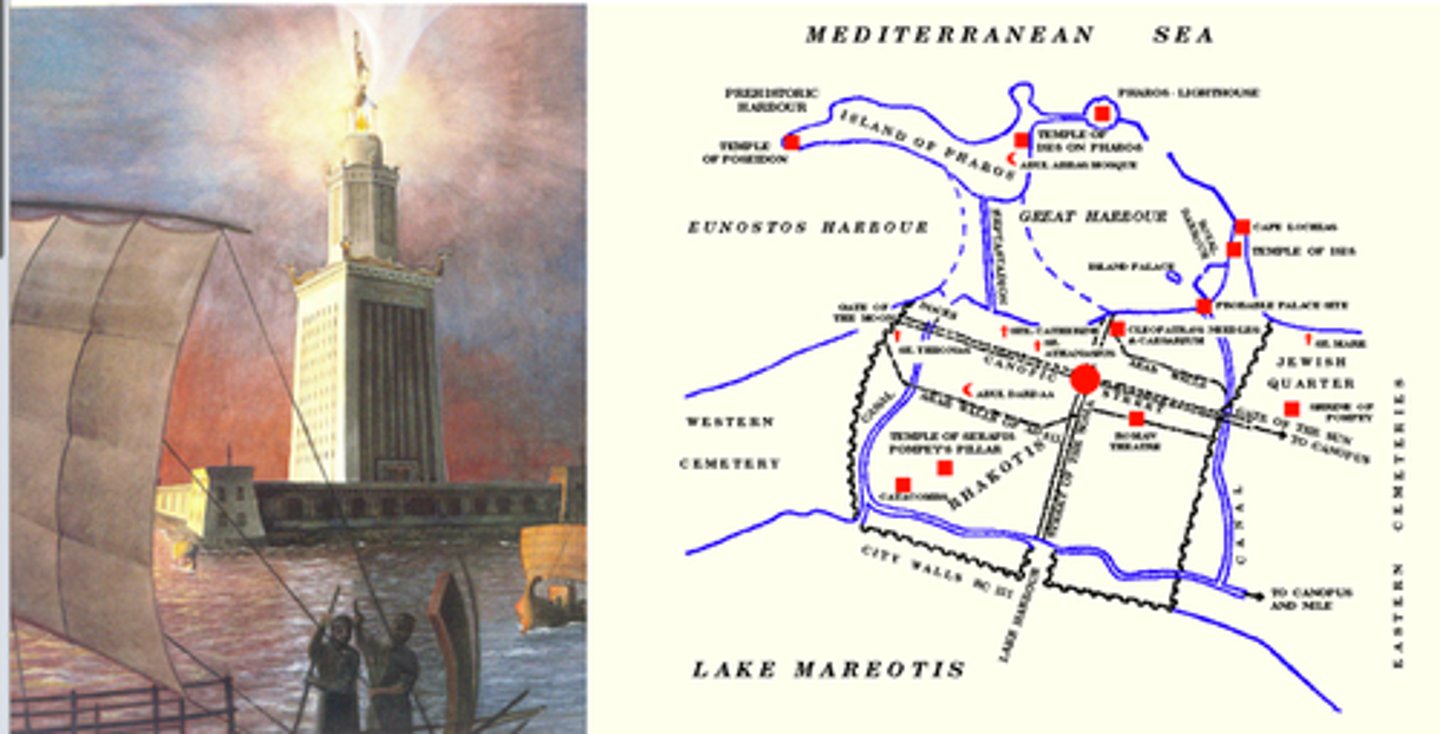
Antiochus IV Epiphanes
Antiochus IV Epiphanes was the Hellenistic king of the Seleucid Empire.
He forced Greek culture and religion on the Jews, causing the Maccabees to fight back and defeat his army, allowing the Jews to gain their independence.
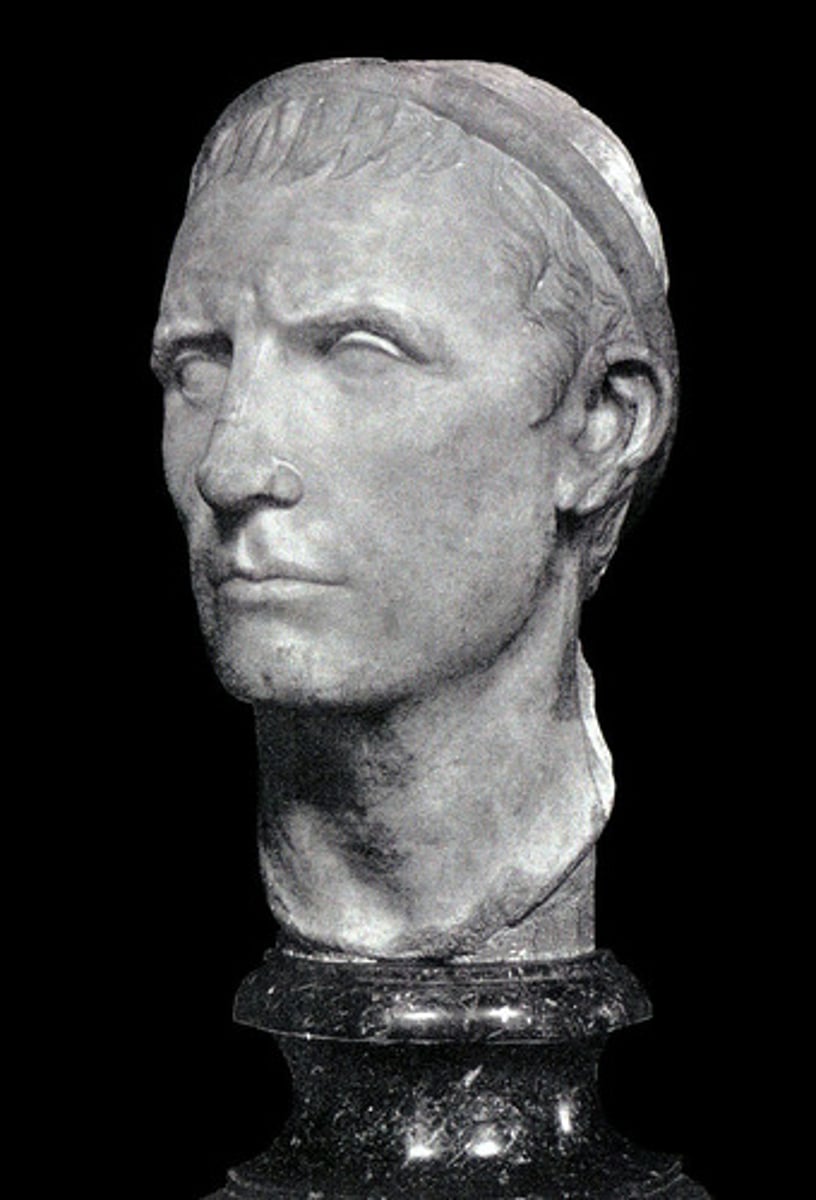
Epicureanism
started by the Greek philosopher Epicurus.
It is the belief that the goal of life is to pursue pleasure and avoid pain.
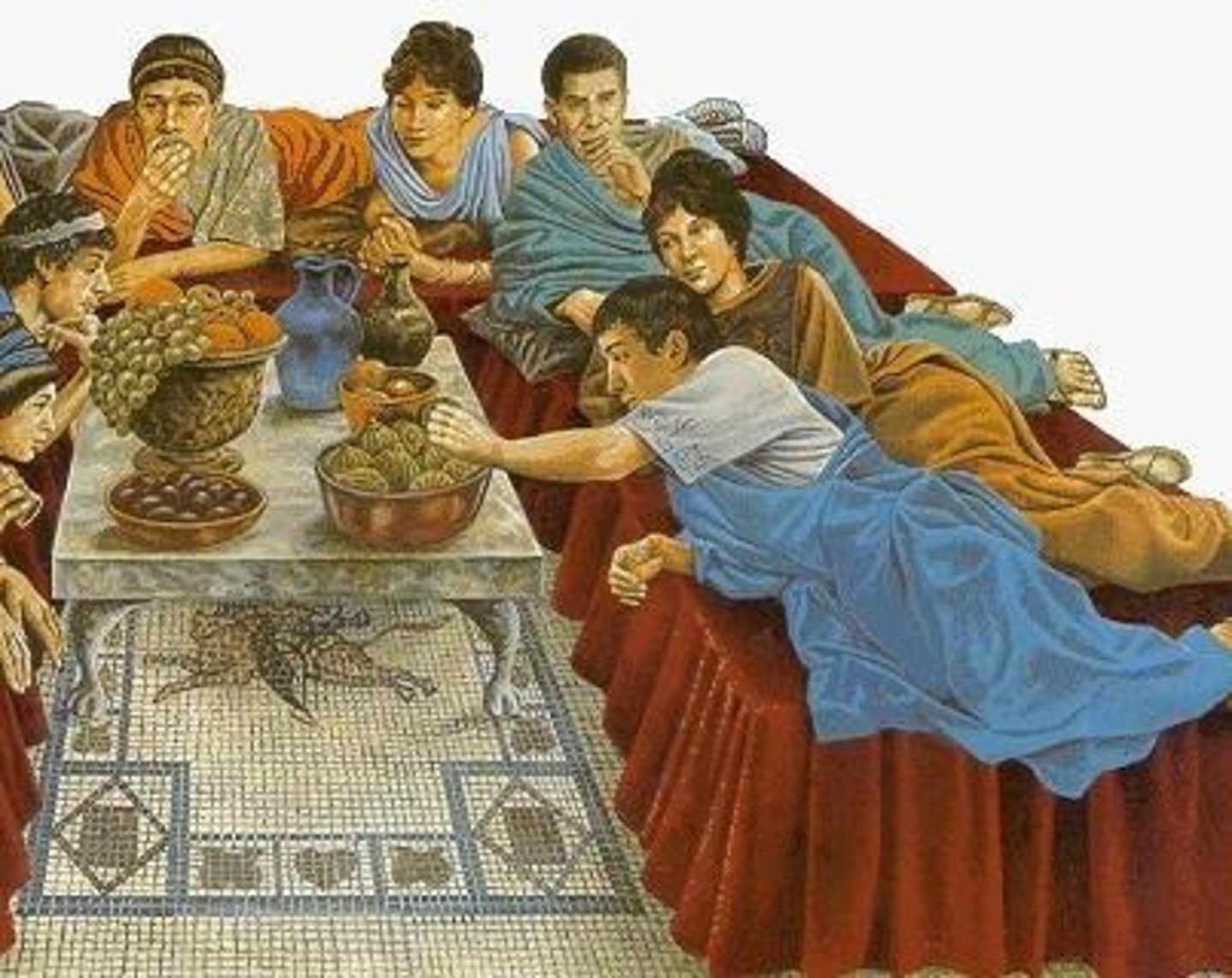
Stoicism
a belief created by the Greek philosopher Zeno that the universe operated according to reason, and that to live a good life you must live according to logos (natural law).
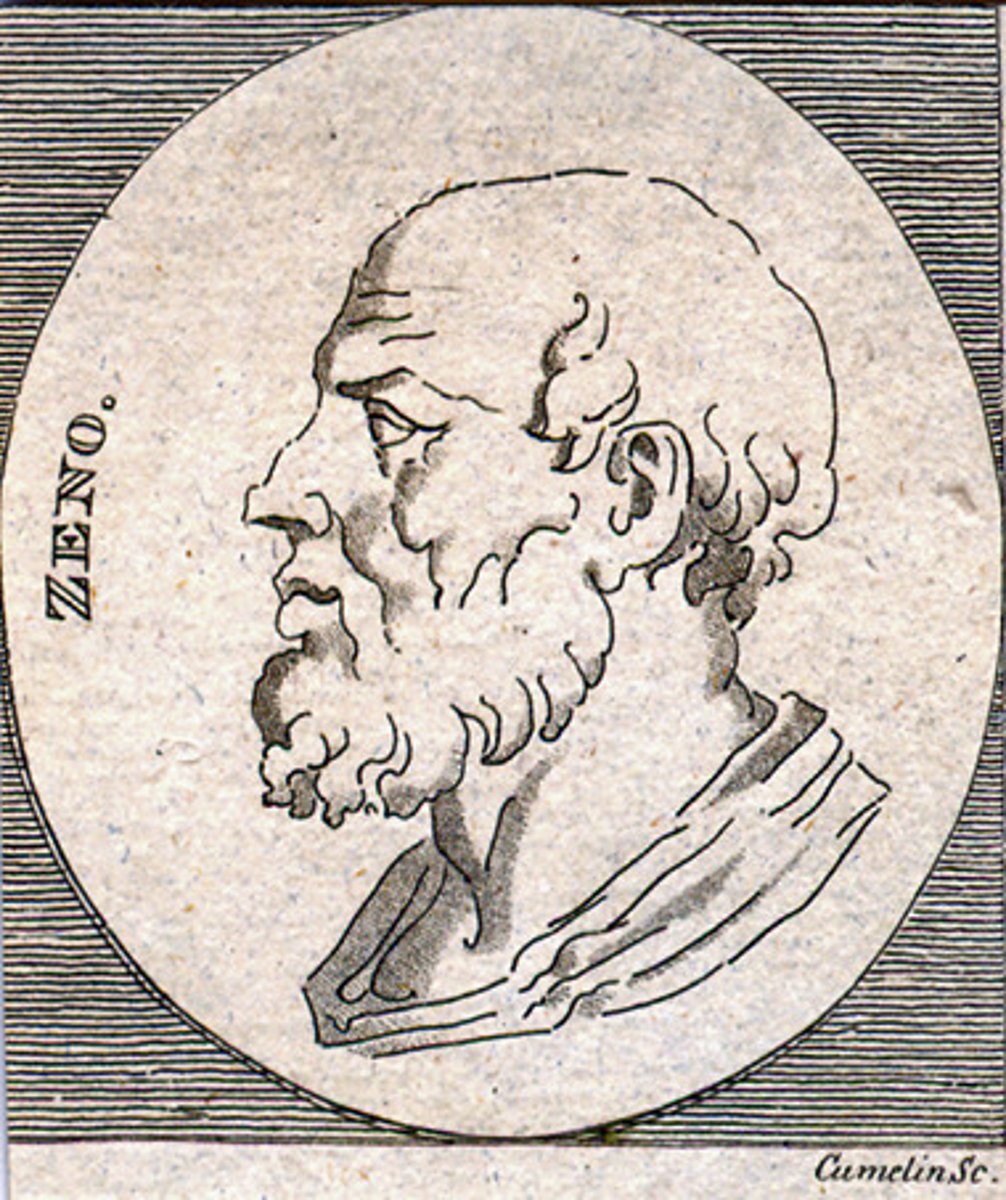
Archimedes
a Greek mathematician, physicist, engineer, astronomer, and inventor from the city of Syracuse in Sicily, Archimedes experimented with pulleys and levers.
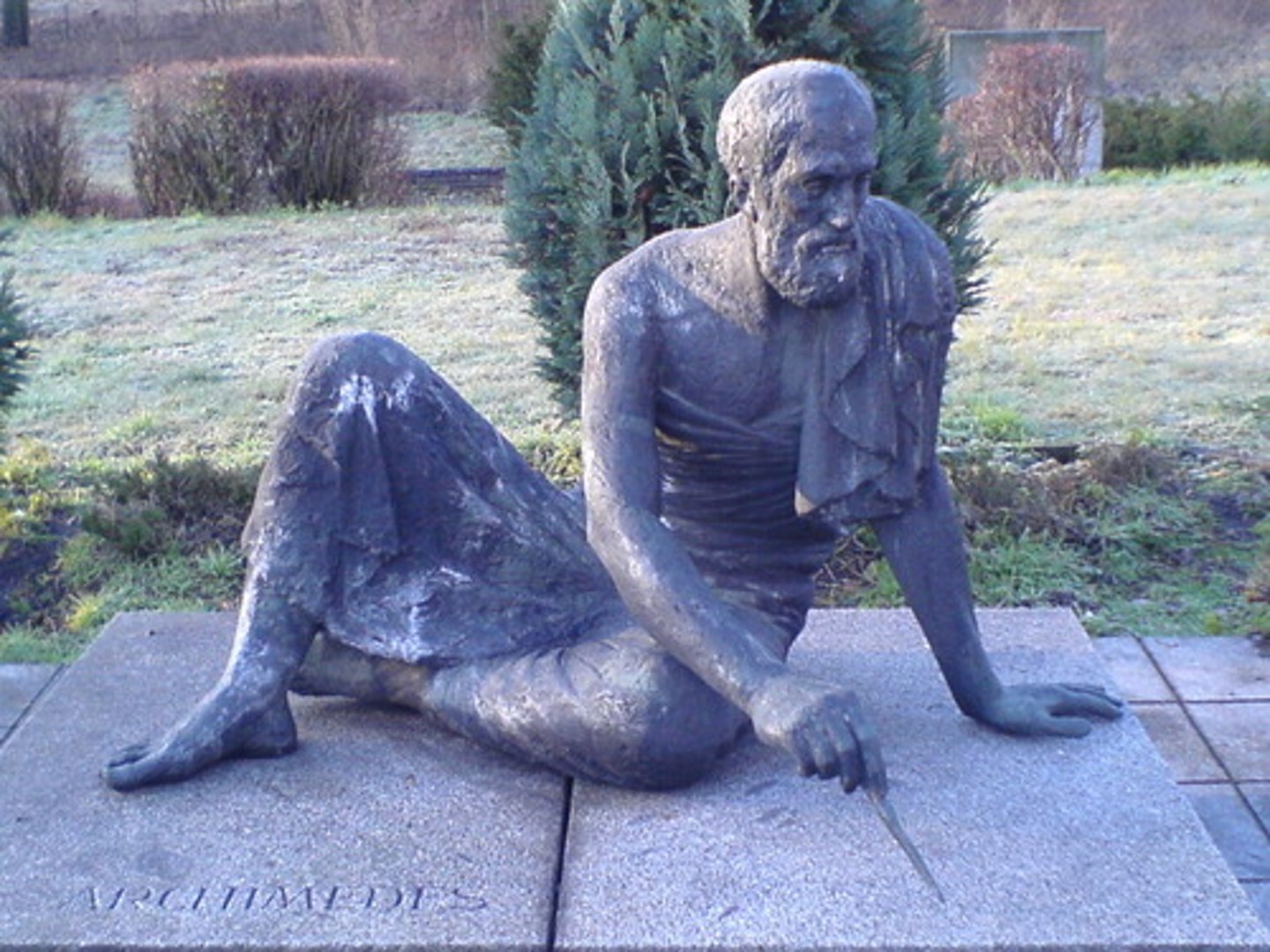
Etruscans
A civilization that was dominant in Northern and Central Italy before the Romans overtook them. Rome was still a small city when the Etruscans were big, and the Romans took a lot of ideas from their culture: the alphabet, Roman numerals, toga, arch, and vault.
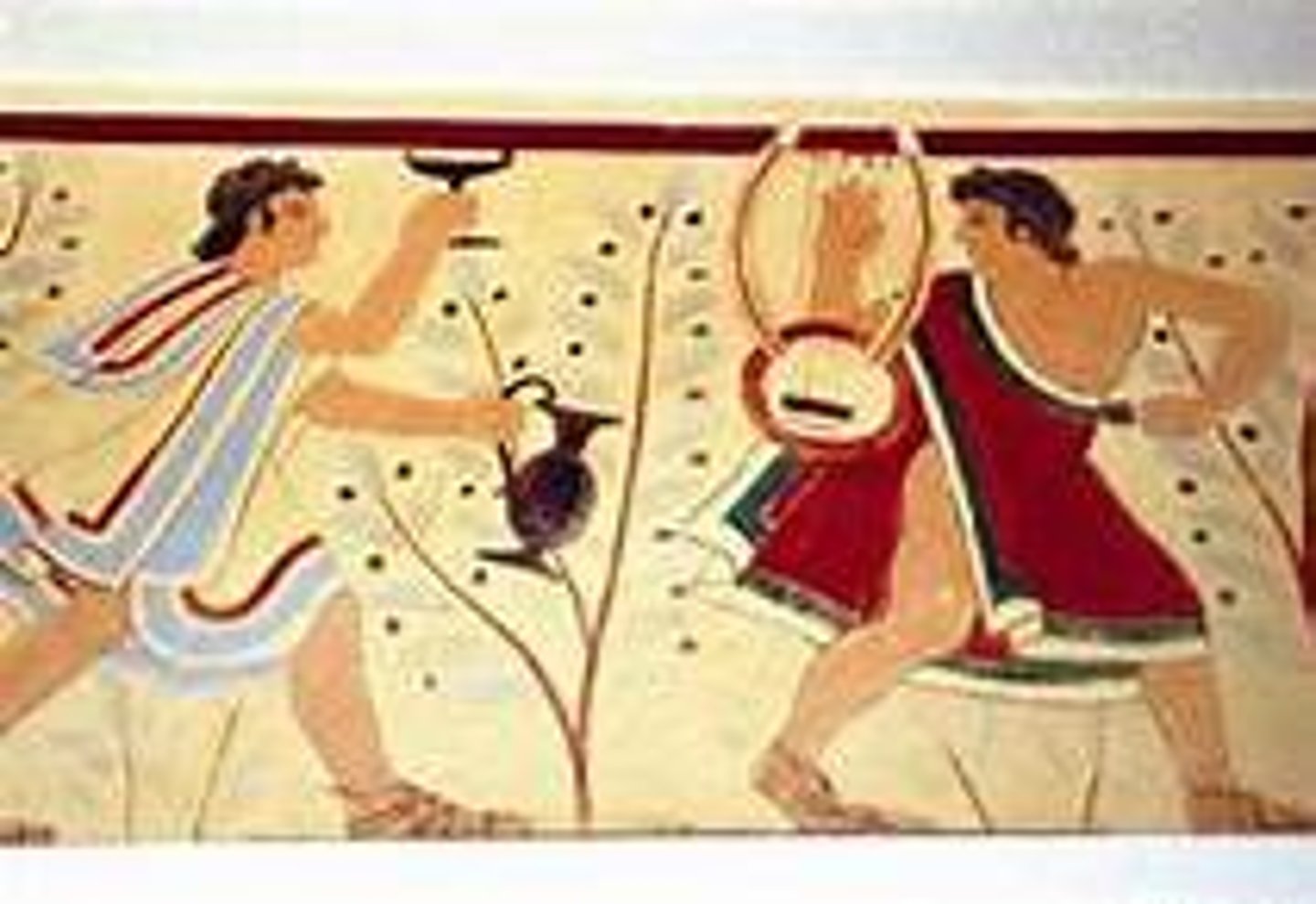
Patricians
The wealthy, hereditary aristocrats during the Roman era.
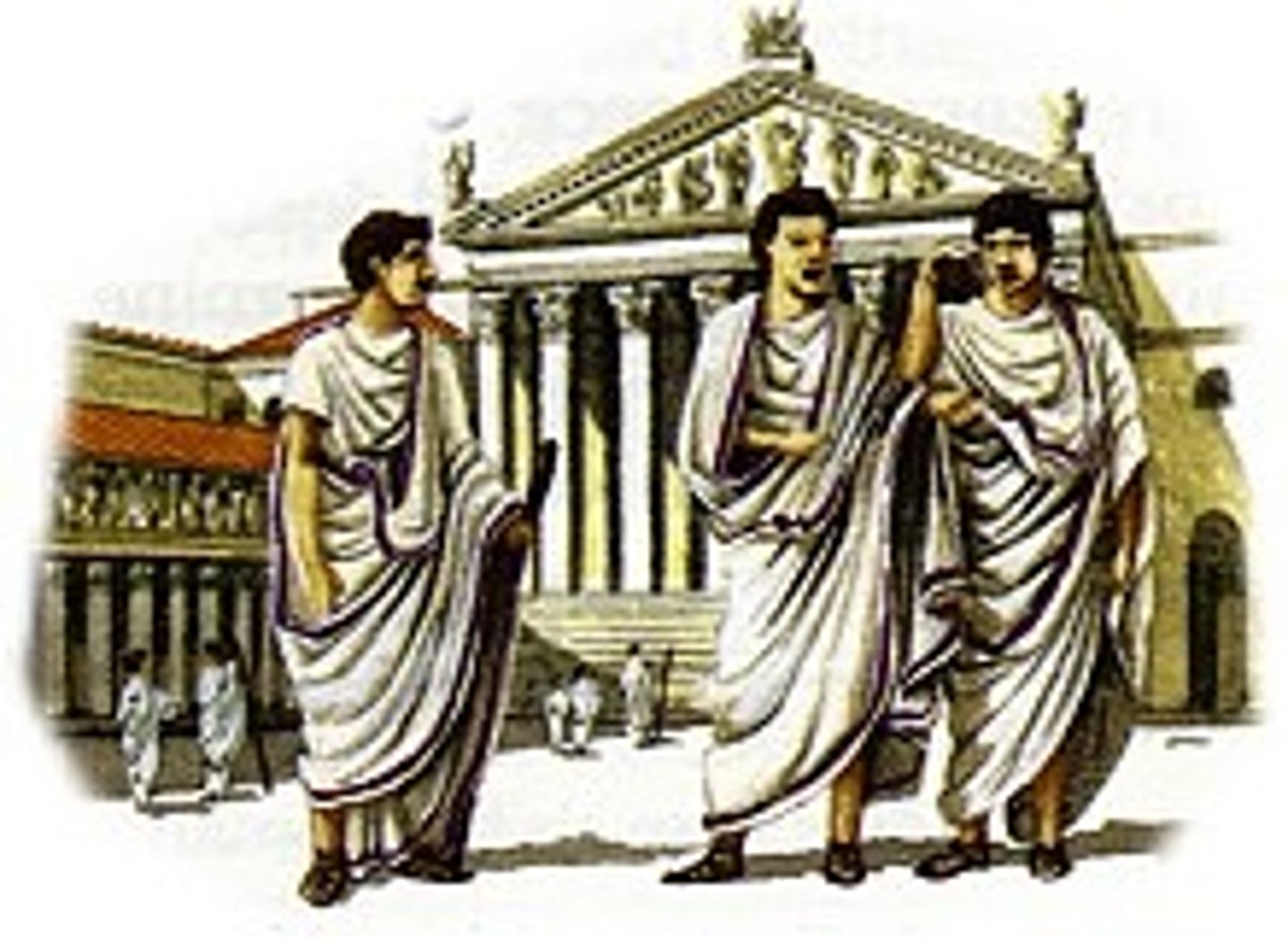
Centuriate Assembly
the chief popular assembly of the Roman Republic. It passed laws and elected the chief magistrates and the two consuls of Rome.
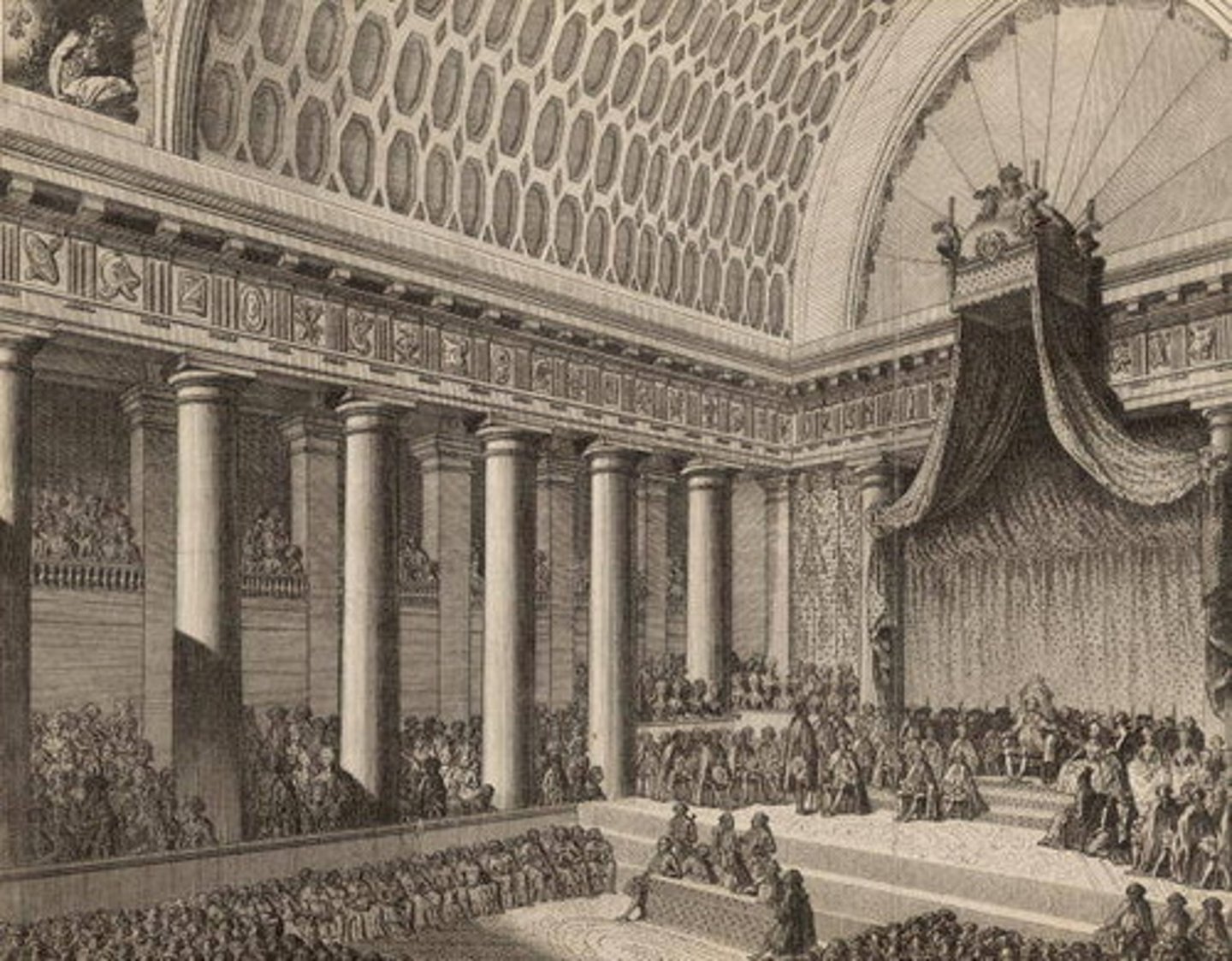
Consuls
Two officials from the patrician class were appointed each year of the Roman Republic to supervise the government and command the armies.
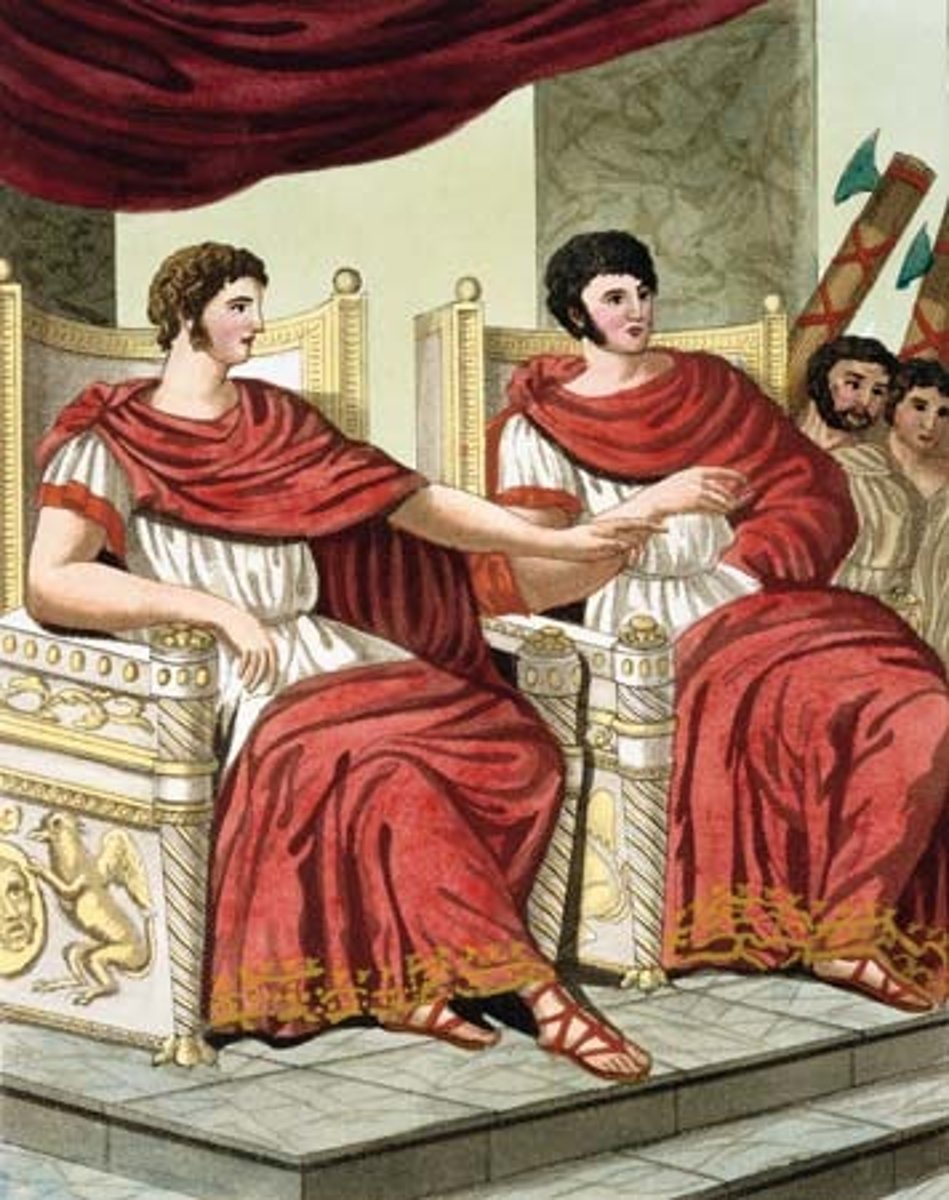
Plebeians
All non-land-owning, free men in Ancient Rome
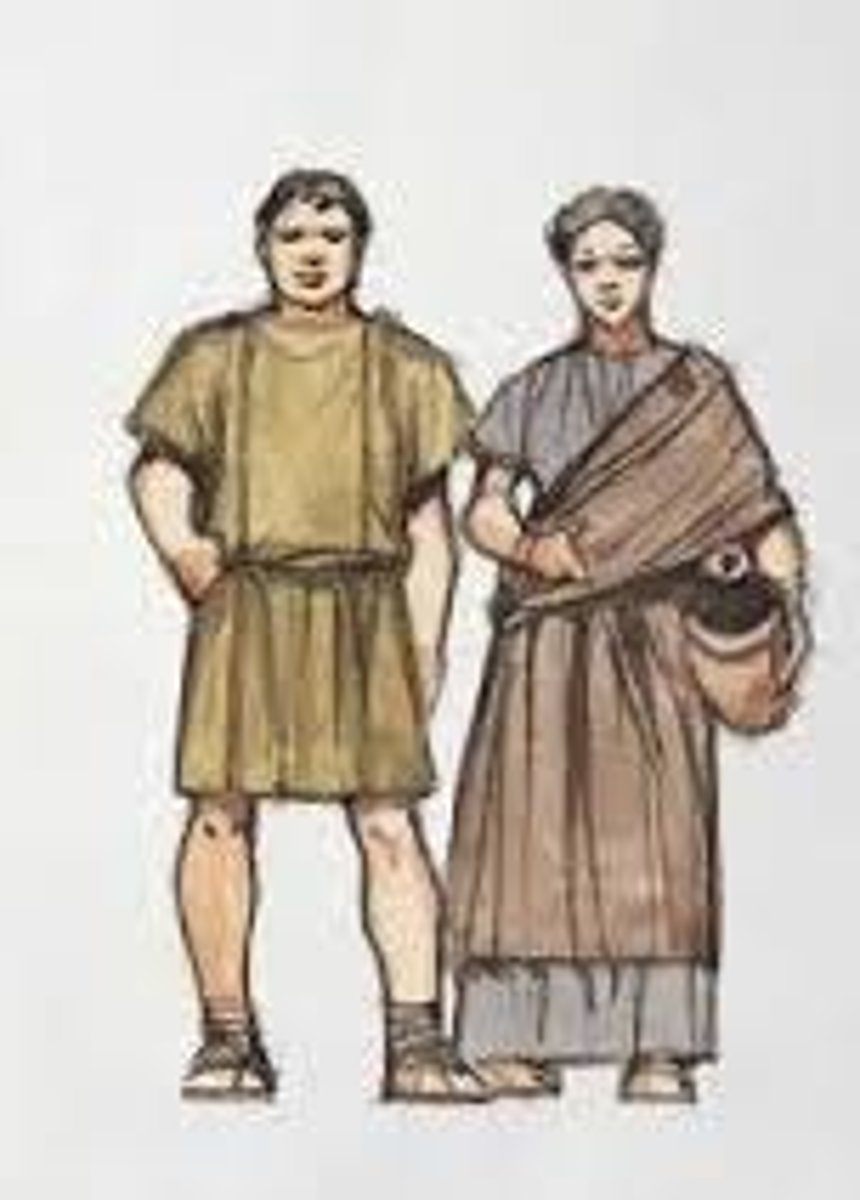
Tribal Assembly
AKA the Council of the Plebs; an assembly organized by plebeians that elected tribunes and made laws for common people. It was created after the "Struggle of the Orders" when the plebs went on strike in 494 BC.
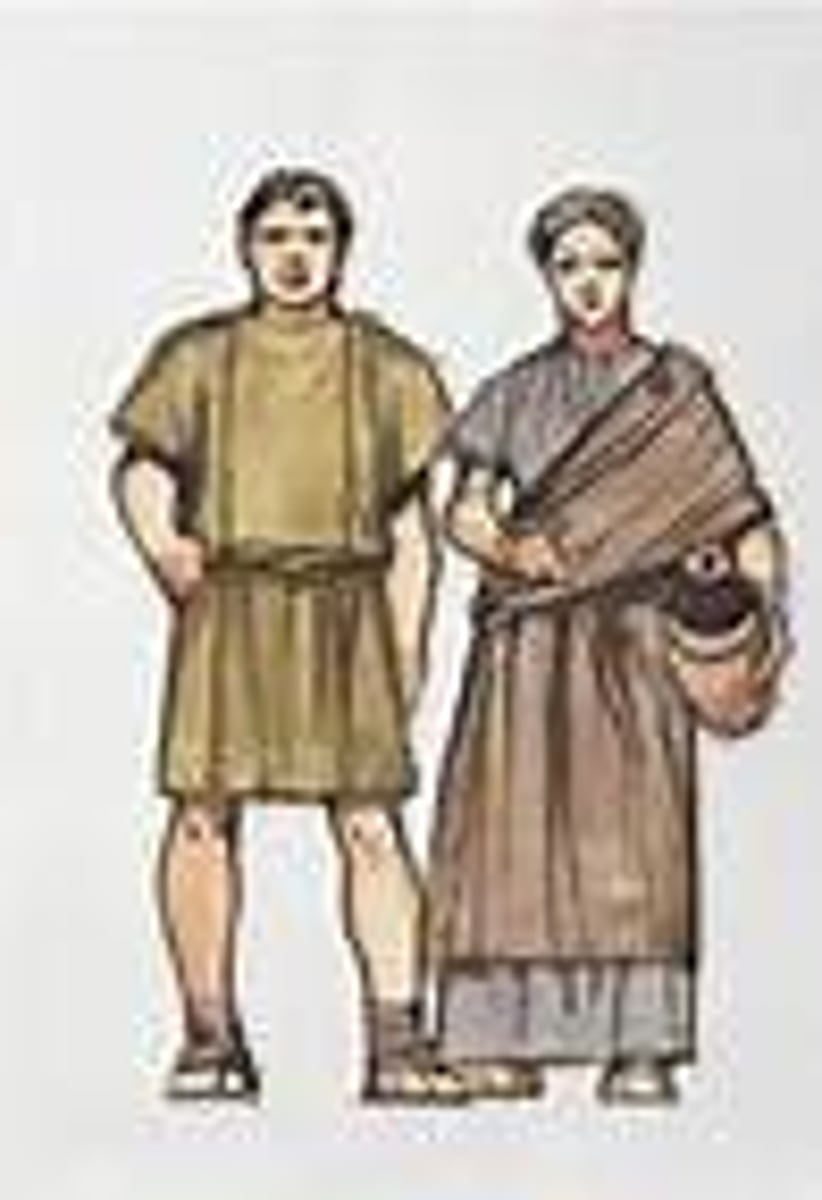
Tribunes
An officer of ancient Rome elected by the plebeians to protect their rights from arbitrary acts of the patrician magistrates.
Twelve Tables
Customary laws committed to writing on twelve tablets, they were adopted in 450 BC.
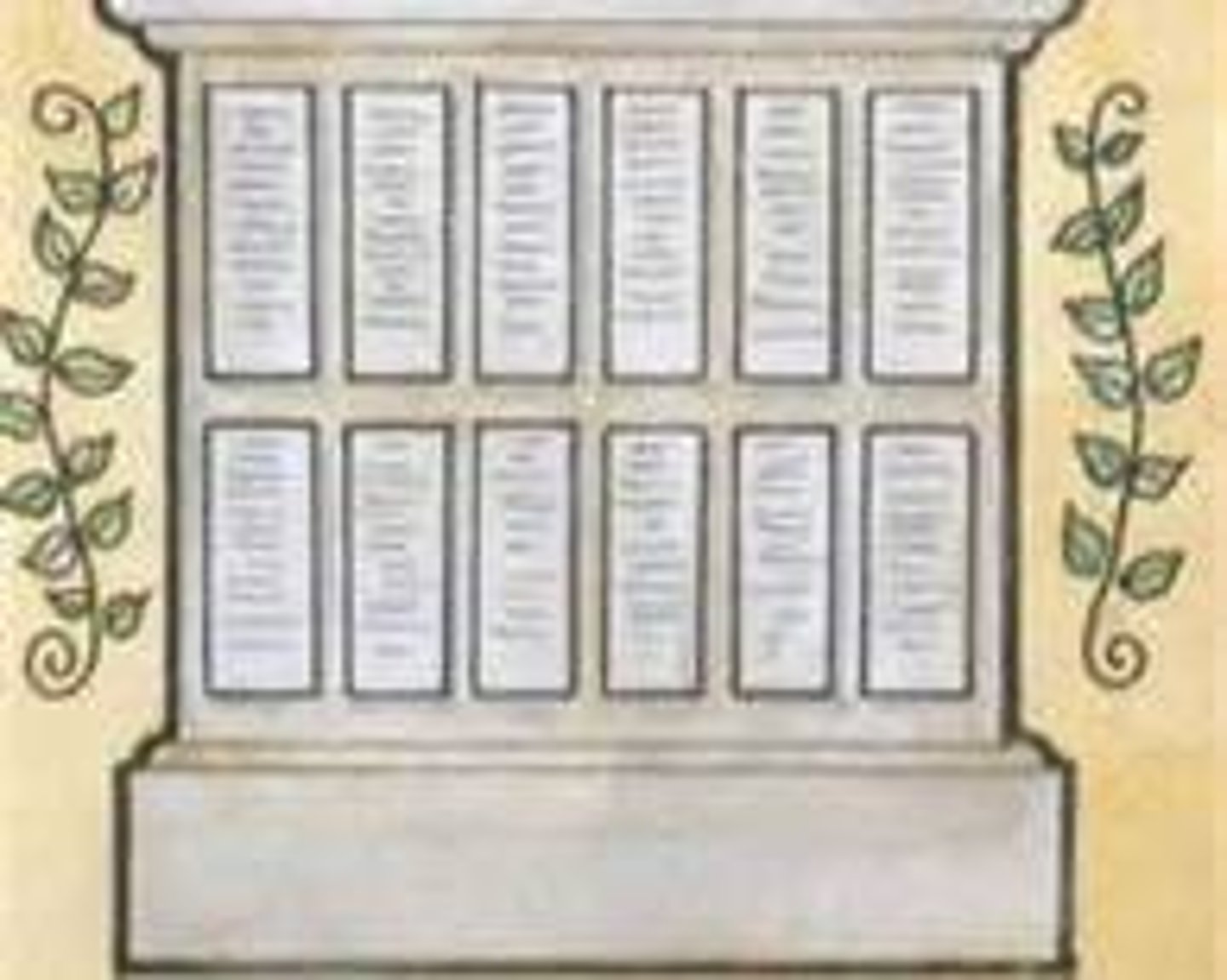
Punic Wars
A series of three wars between Rome and Carthage (264-146 B.C.); resulted in the destruction of Carthage and Rome's dominance over the western Mediterranean.
In the first Punic War, Rome got Sicily, in the Second, Rome got Spain, and in the third Punic War, Rome sacked Carthage.
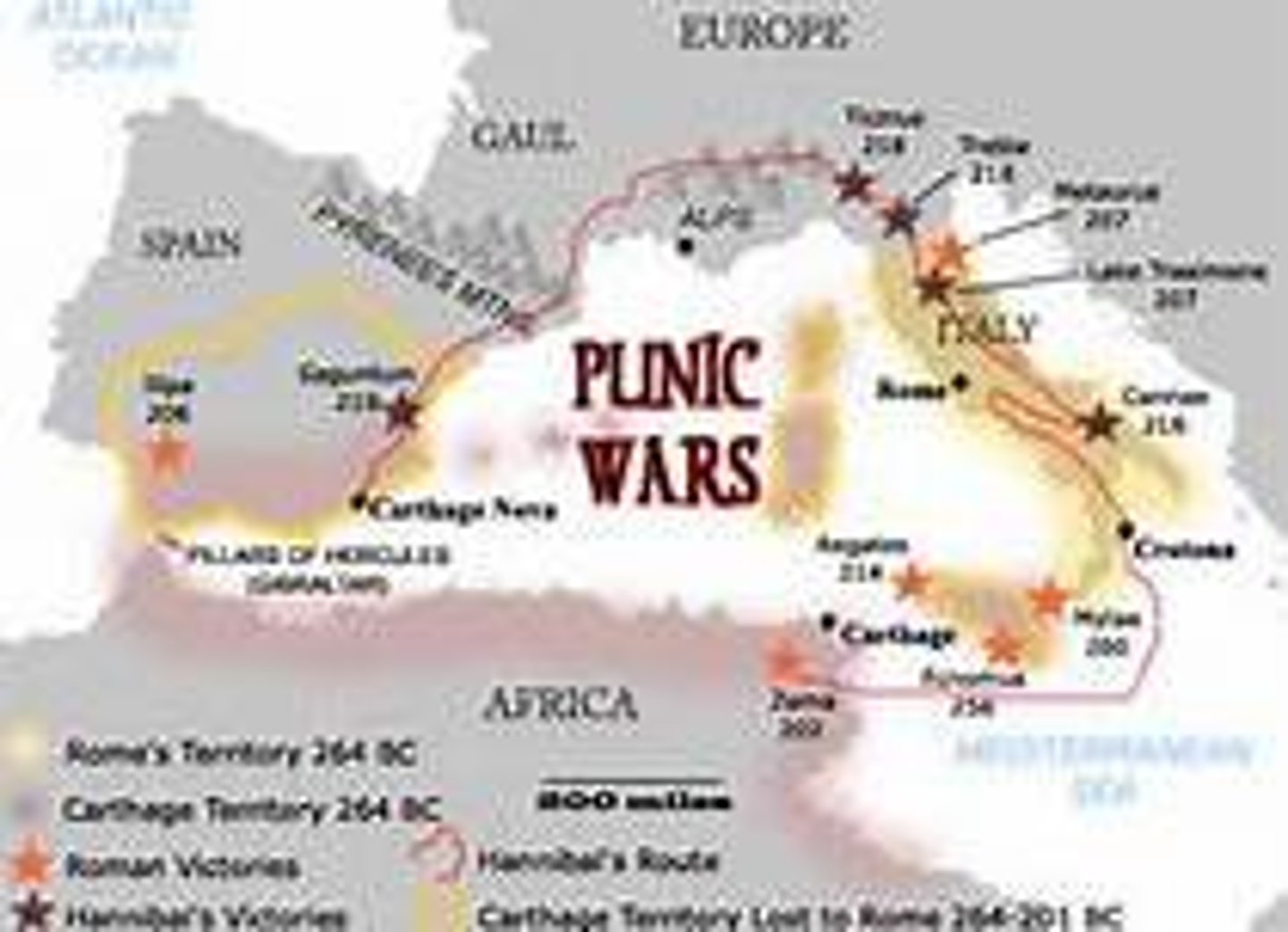
Hannibal
Carthaginian military commander who, in the Second Punic War, attempted a surprise attack on Rome, crossing the Alps with a large group of soldiers, horses, and elephants.
